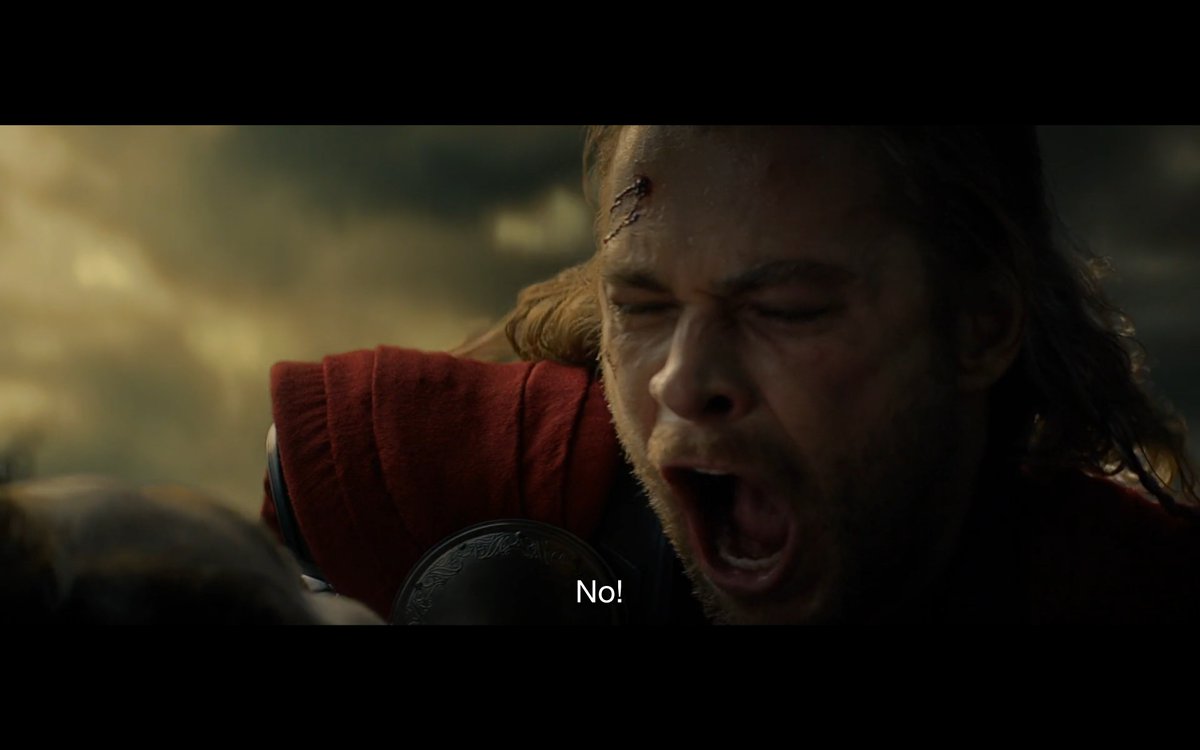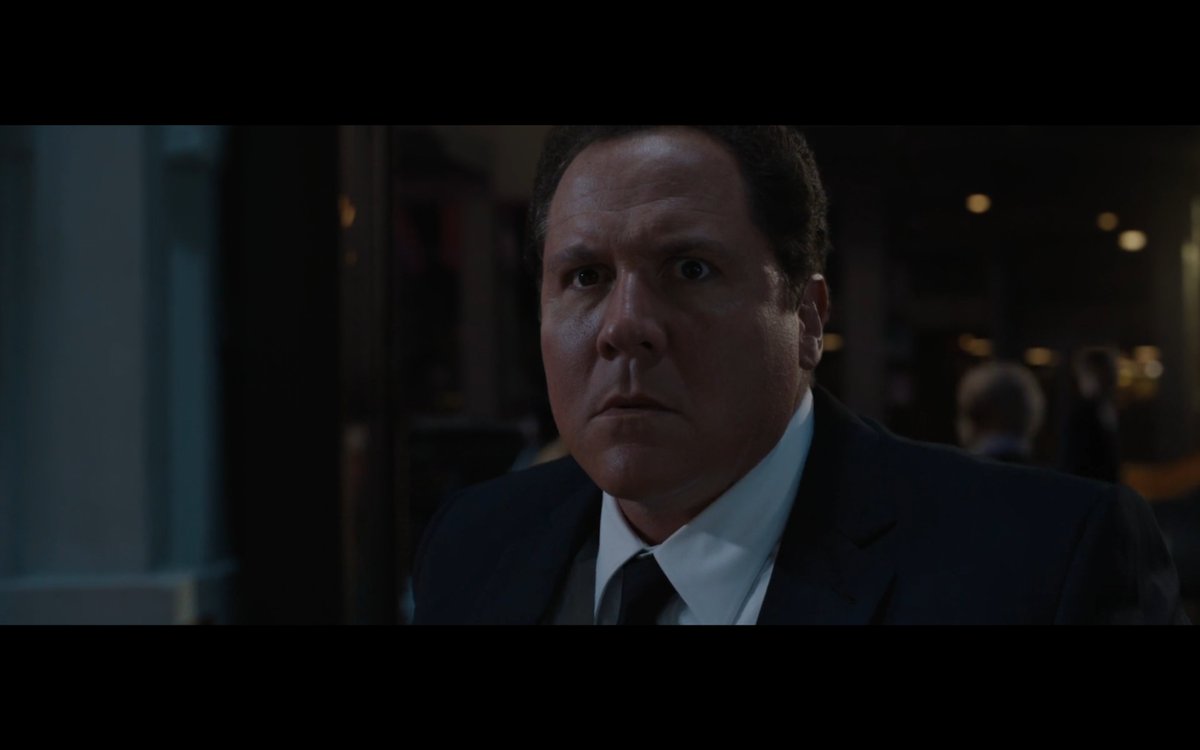I’m about to do a critical rewatch of all 23 Marvel movies (in chronological order) looking at negative patterns in how masculinity is presented. This is part of my neverending quest to be super popular with fans ;)
As I plan out my next dozen or so video essays deconstructing Hollywood manhood, I noticed that Marvel movies keep showing up as examples again and again. So I might as well put on a pot of coffee and rewatch them all again while taking detailed notes.
I’ve seen all the MCU movies before of course, most in the theater, but haven’t seen many of them more than once. I remember my favorite, by a country mile, was Ant-Man and the Wasp. You can probably guess the reasons why.
Some questions I always ask myself about male characters when watching media: How do they resolve conflicts? Are they ever vulnerable? If so, do they openly express it and to whom? How do they behave in romantic relationships? Do they ever bond with other men? If so, over what?
Since the MCU movies are about superheroes, we also need to be asking questions about power and public accountability, especially as it relates to militarism, unilateral action, and the United States. Under what circumstances is vigilantism or state violence framed as justified?
I’m starting with Captain America: The First Avenger, which was released in 2012 but largely takes place in the 1940s. I’m rewatching these in (mostly) chronological order because I want to focus on how each male character arc progresses over time.
You could easily write a whole dissertation just on the first Captain America movie but since this is twitter I’ll keep it brief. I’m especially struck by the confused messaging around hypermasculinity in this film. Like a lot of the MCU the writers seem to want it both ways.
At first it seems like the message is going to be “what really counts is what’s in a man’s heart,” but that's undermined by the fact that Steve can’t be a true hero who's respected by his peers until AFTER he becomes a literal super soldier and proves himself on the battlefield.
This is reinforced when the film denigrates all the other ways men helped in the struggle against fascism. They basically mock the idea of factory work, salvaging metal, and morale boosting as being for women and children. Only fighting on the battlefield can make you a real man.
Steve Rogers' other defining characteristic is he’s super polite, in an idealized 1940s kinda way. Aside from some inappropriate jealousy around Peggy, he's generally respectful of others. But as we’ll see later on, politeness does not a positive example of masculinity make.
Captain America will return to this thread soon but now it’s time to watch the MCU introduce their resident lovable sexist arms dealing billionaire in the first Iron Man movie from 2008.
Tony Stark treats Pepper Potts like garbage even when he’s being “nice” to her. Yes, I know he becomes less of a dick over the course of many films but she should have quit and left well before that. Don’t let people treat you badly in the hopes that they’ll eventually change.
There’s a whole lot of “Don’t do this very cool thing!” going on in the way the production chooses to portray Tony’s playboy lifestyle in this movie. It’s a major pet-peeve of mine when filmmakers do this with their wealthy chauvinist characters.
The messages in Iron Man relating to weapons manufacturing and the US military are confused, to put it mildly. Again we see the MCU writers wanting to have it both ways.
At first it seems the film is going for a decent message. Tony sees his weaponry used to terrorize people and decides to stop making weapons of war. Ok, cool. But then he turns HIMSELF into a weapon. He embeds weapons of war in his suit and uses them to kill a bunch of bad guys.
It’s remarkable how far this movie bends over backwards to portray the US military in a positive light, even after they try to shoot our hero out of the sky. Gotta preserve that partnership to get access to military locations and equipment. Plus cross-promotional branding deals.
Turns out that arms dealing is bad because Tony can’t trust that his weapons will only be used by the good and virtuous US military. Middle eastern terrorists might get ahold of them! So the solution is for Tony to personally use and control the most powerful weapon himself.
Lastly, there’s a scene near the end where Jeff Bridges gives his villainous speech about how Stark weapons in "the right hands” can be used to bring order to the world. The filmmakers don’t seem to realize he could just as well be describing Tony’s own use of the Iron Man suit. 



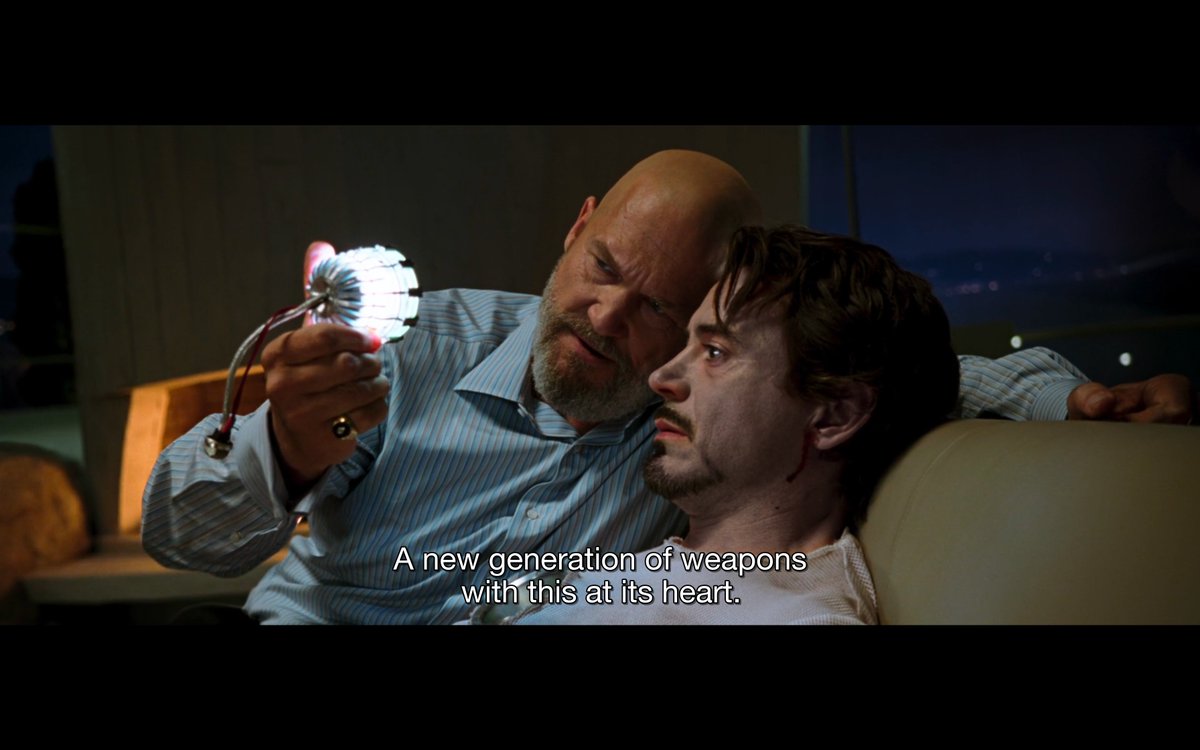
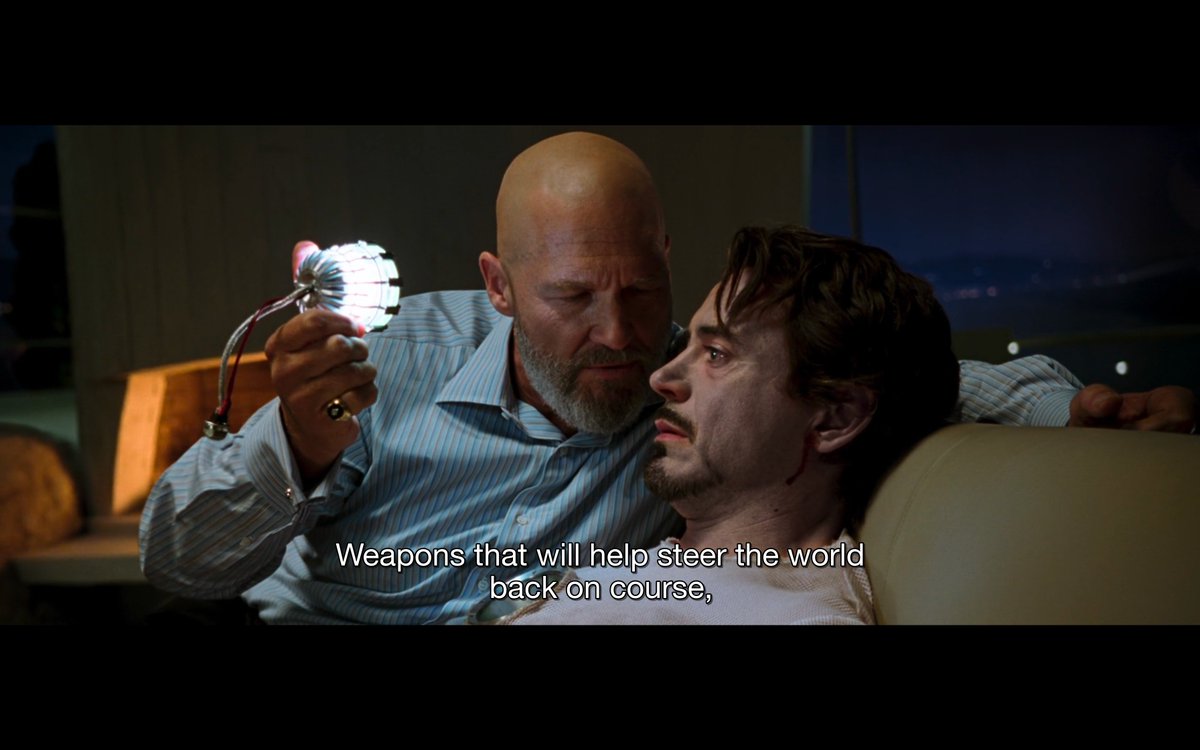
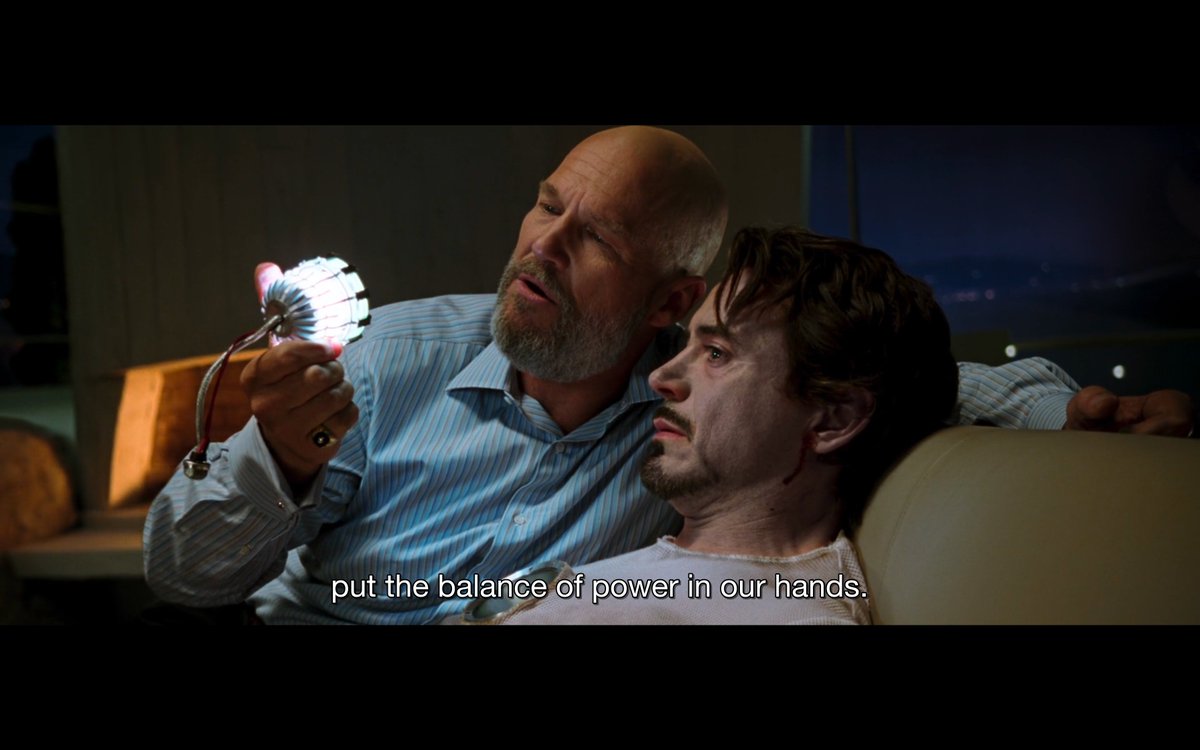
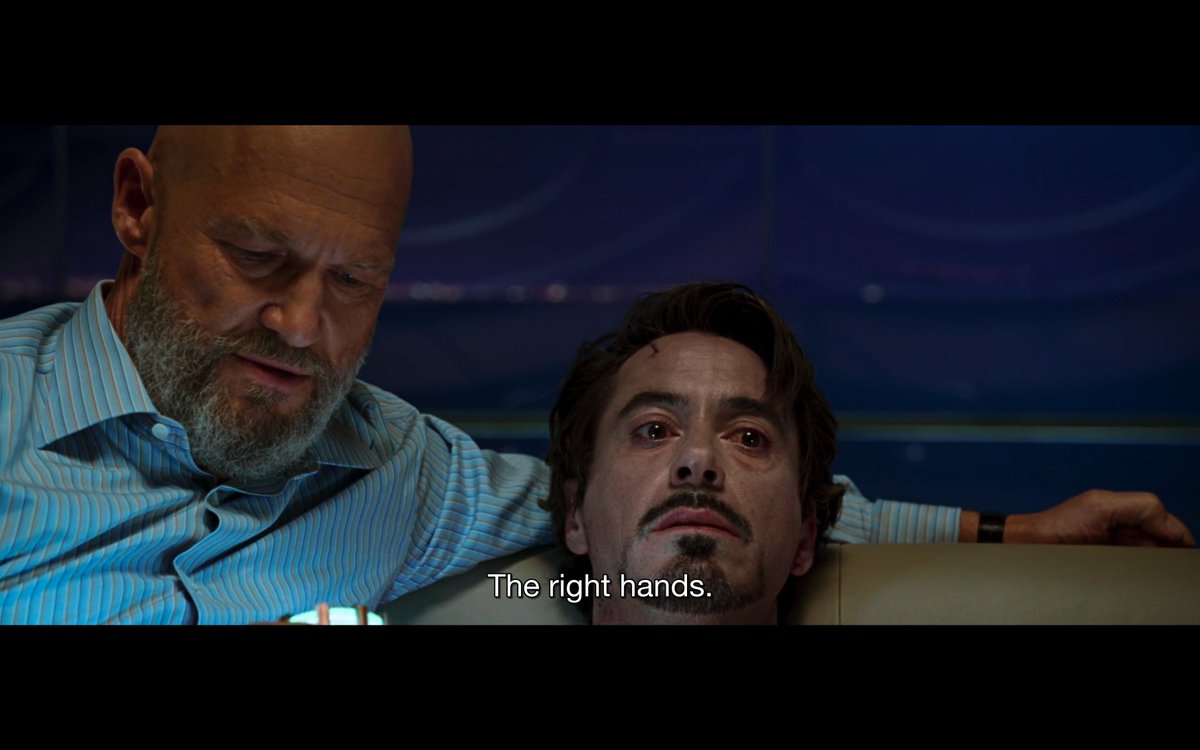
There’s obviously a whole lot more to say about Tony Stark and his behavior but now it’s time for Iron Man 2 from 2010. This is the one where Tony makes a "don’t drop the soap” prison rape joke.
*sigh*
*sigh*
I’m reading this as I continue my 23 film MCU rewatch. The book was written back in 1993 but it’s still relevant and a useful companion piece for deconstructing manhood according to Marvel. 
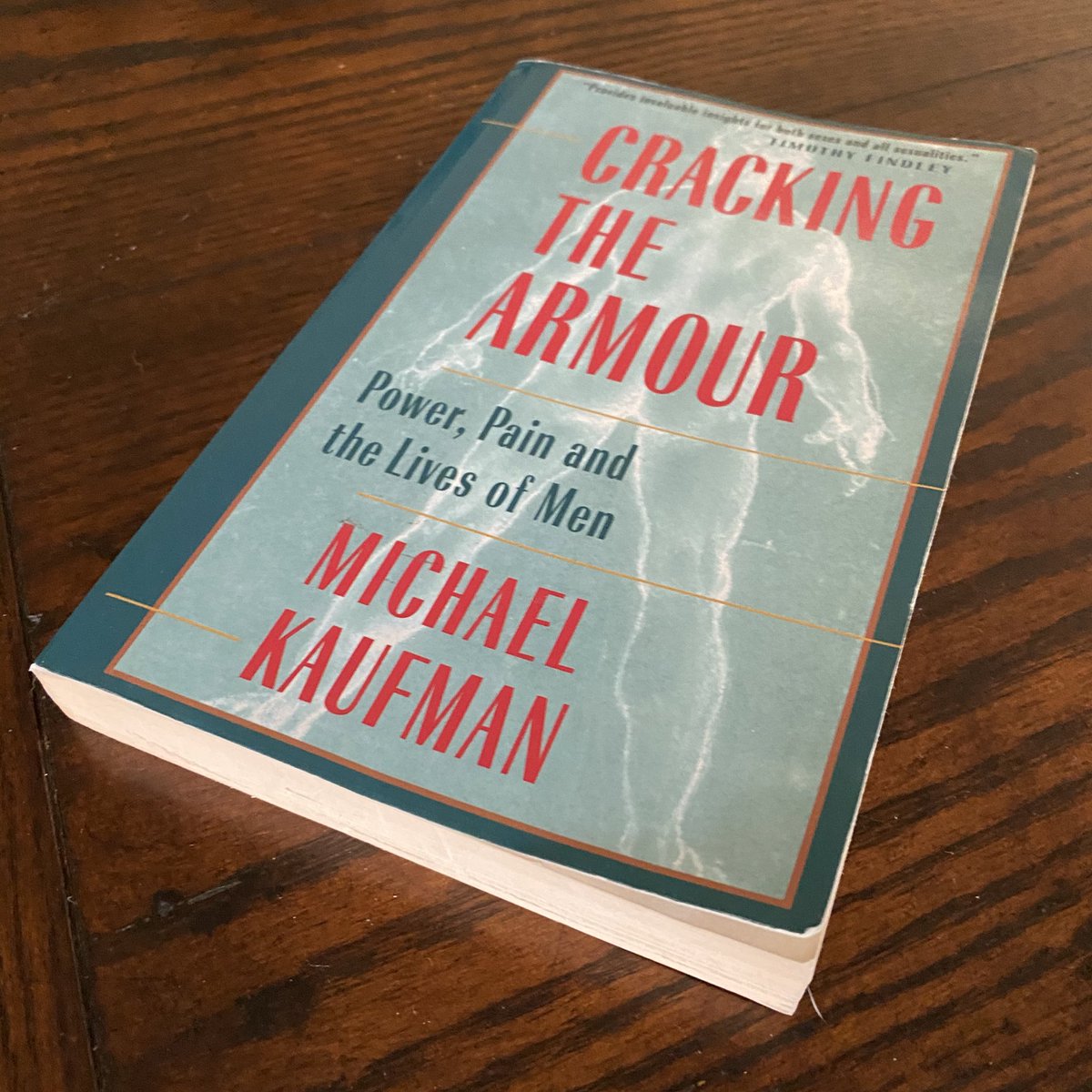
Iron Man 2 (2010) directed by Jon Favreau is where the MCU really starts to coalesce into what can be seen as a coherent ideology, both in terms of its politics and its concepts of heroic masculinity. The themes embedded here can be followed all the way to End Game in 2019.
I have 3+ pages of notes from my re-watch of Iron Man 2 so I won't post all my observations here but I will quickly list some highlights.
Iron Man 2 spotlights the MCU’s love affair with guns and gun culture. Odd for a franchise that A) is about superpowers and B) started with tacit criticism of weapons manufacturing. Even when bad guy Justin Hammer is showcasing an arsenal for War Machine, guns are framed as cool. 
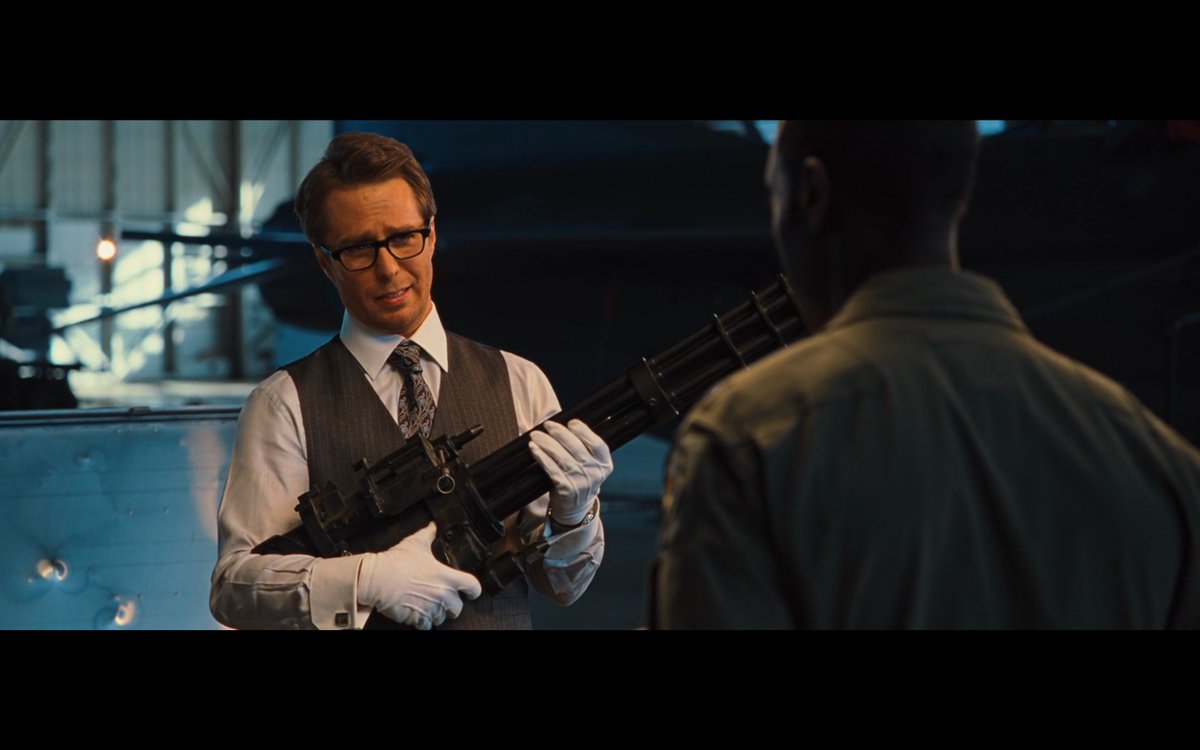
In Iron Man 2 we start to see the MCU’s disdain for the idea of public oversight or accountability for what are really just paramilitary vigilantes with superpowers. Senator Stern is framed as duplicitous and roundly mocked by the film for holding public hearings on the matter. 
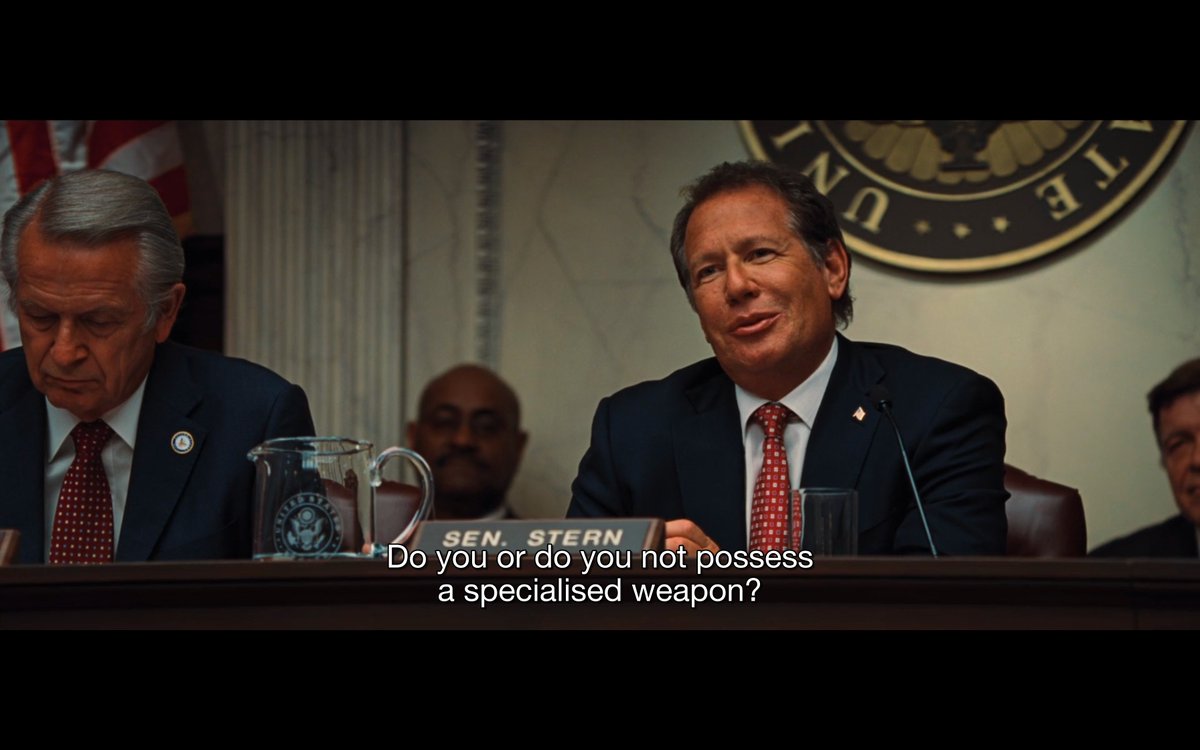
But the MCU is careful to reserve its distain only for the civilian side of government (I.E. the democratic side). Generally speaking the US military is shown in a positive light, even when they steal an Iron Man suit from Tony and create "War Machine" piloted by Col. Rhodes. 
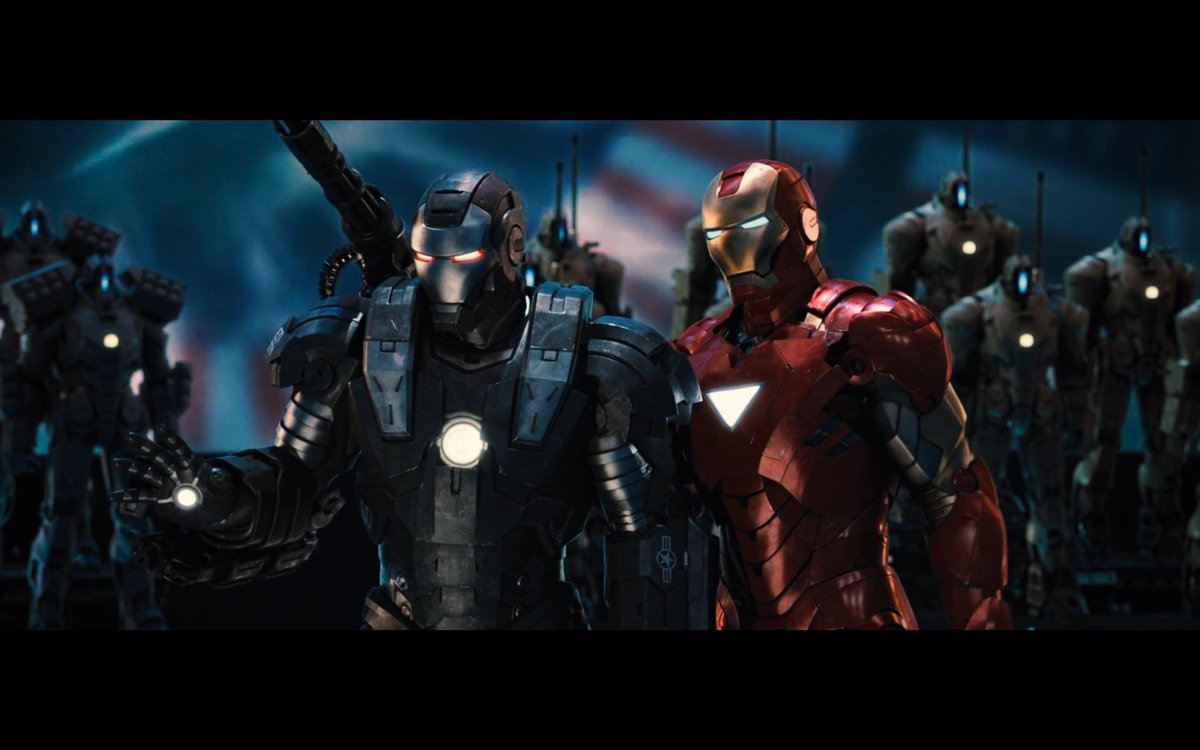
The question of public accountability for superheroes will become a central theme later in the MCU (sorta-kinda) but even then it ends up splitting hairs and delivering wishy-washy messaging at best. But I’m getting ahead of myself.
When it comes to depictions of male vulnerability, Iron Man 2 sets the pattern that we’ll see in a dozen MCU films to come. Tony is struggling with his own mortality and we see a handful of vulnerable moments but this ONLY happens in private. He hides his feelings from others.
This is a classic bit of cinematic sleight of hand because we, as the audience, see male heroes experience moments of vulnerability but they rarely share those feelings with other characters or ask for help. If they do share, it’s usually after they've "solved it" on their own.
Iron Man 2 also gives us our first of many fights between the male heroes. Basically all problems in the MCU are resolved via violence, even interpersonal ones. Tony is spiraling so Rhodes stages an intervention but because these are tough guys it takes the form of face punching. 
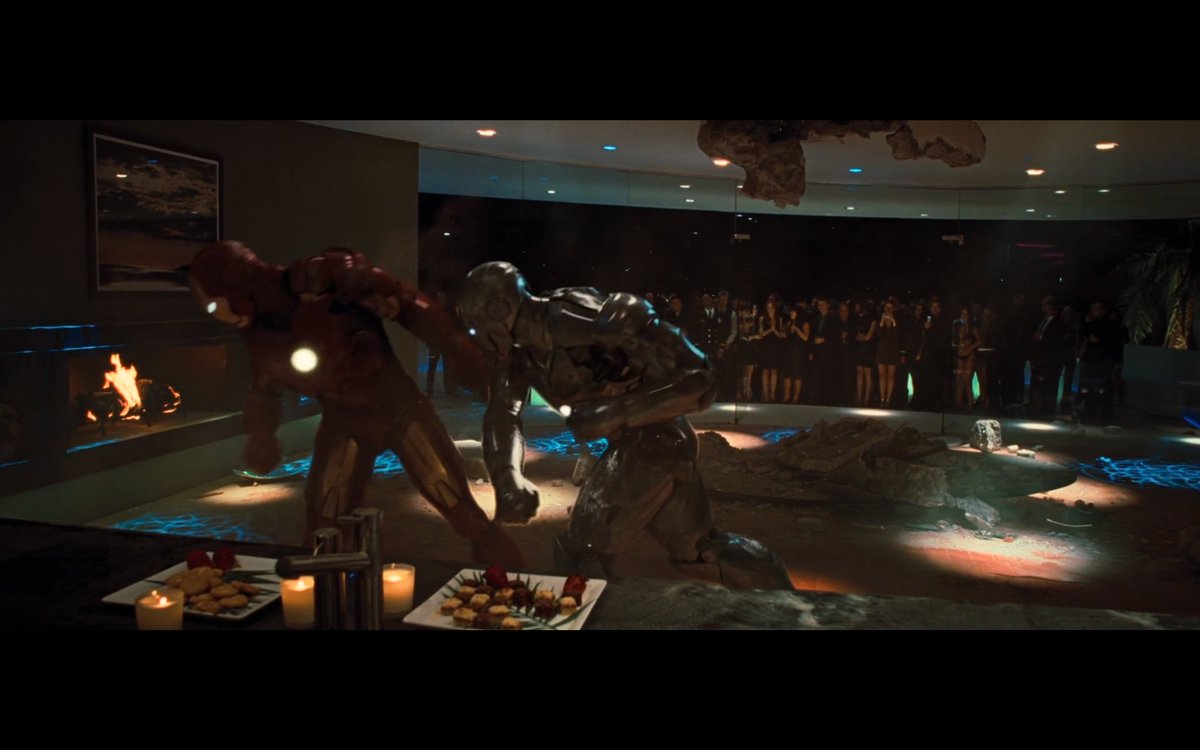
Iron Man 2 introduces the MCU’s first female superhero in Black Widow and wastes no time in having Tony, Happy, and especially the camera ogle her. This behavior is lampshaded in the dialogue but it's ultimately played off as harmless, just "guys being guys." 


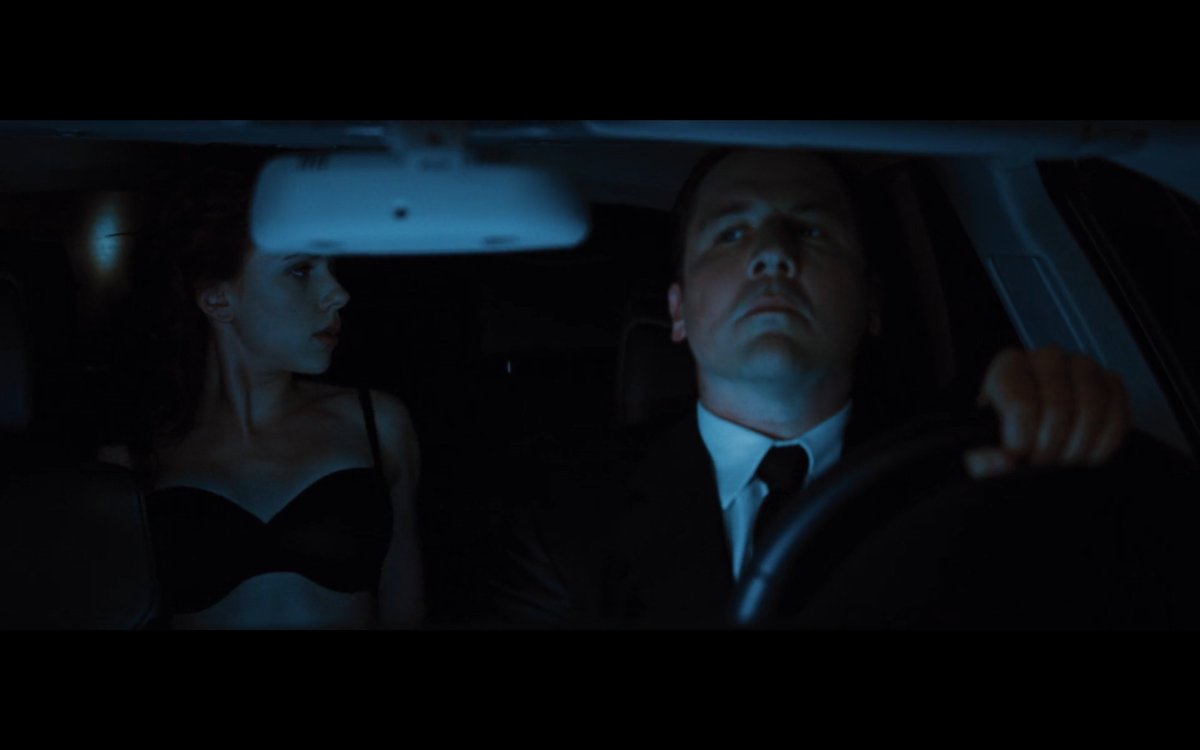
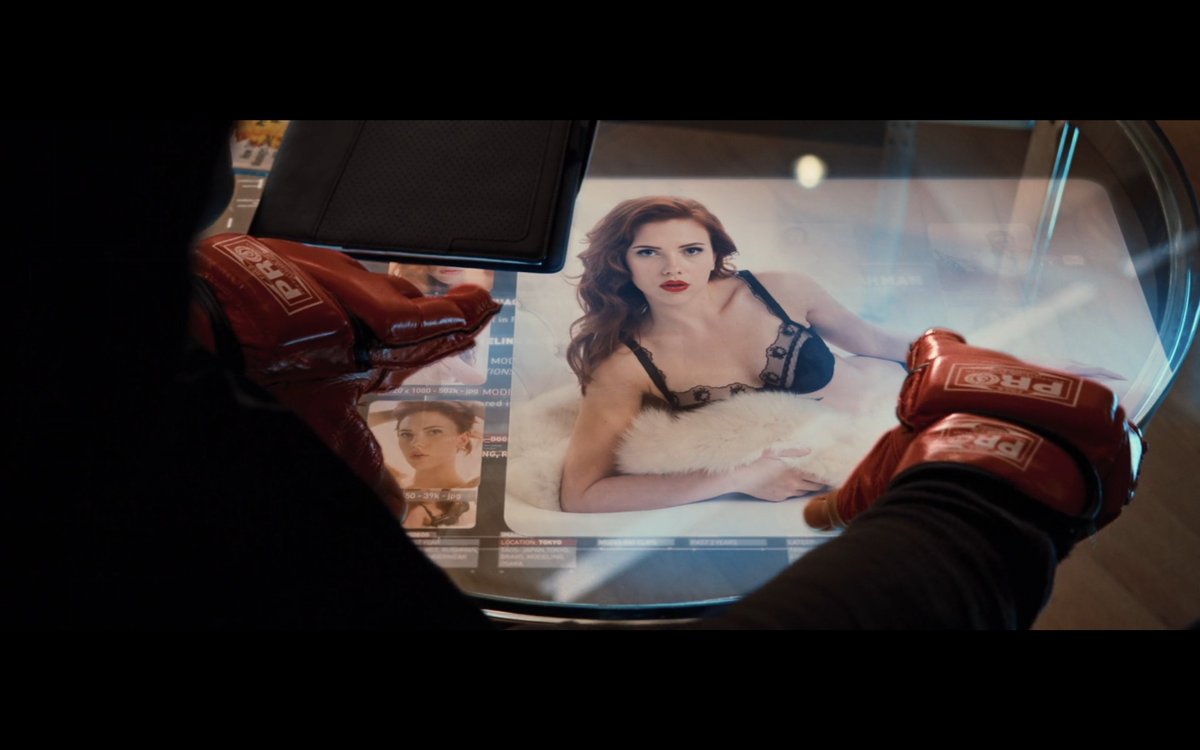
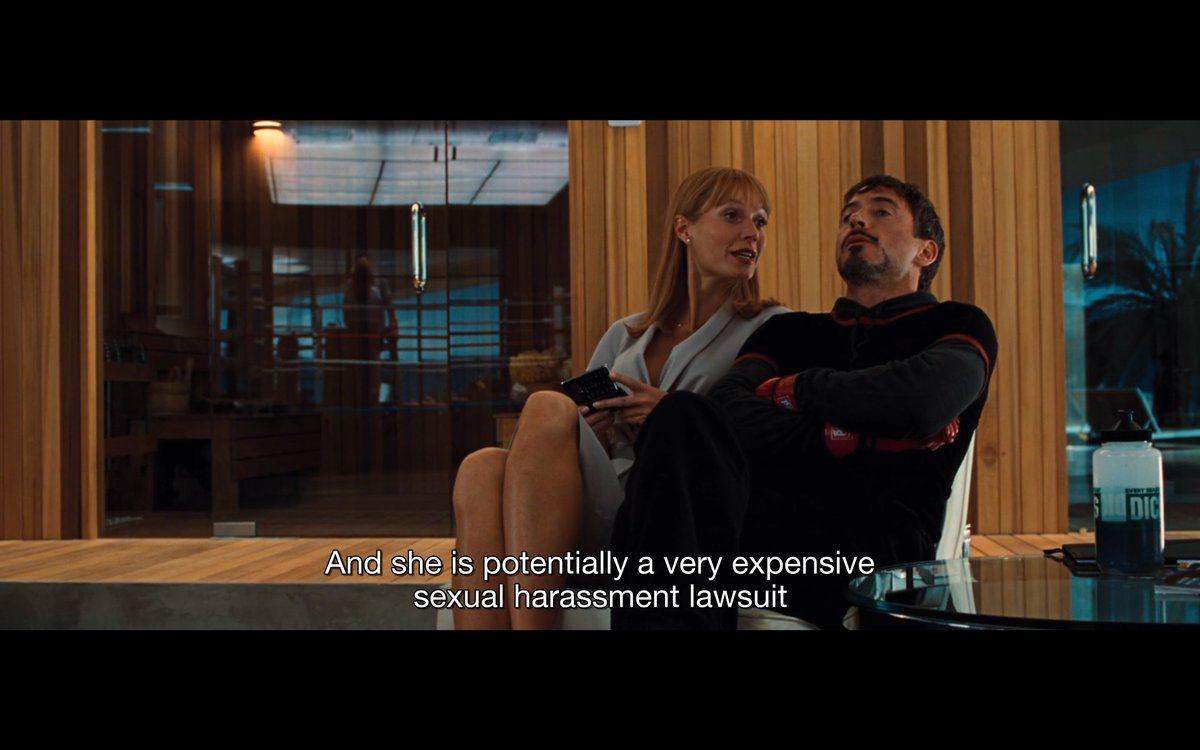
I know I'm spending a lot of time on Iron Man 2 but as I said it really sets the tone for the MCU as a whole. For example, it gives us the first (of many) butt shots of a female hero. It wouldn't make it any better, but you won't see men framed this gratuitously by the camera. 
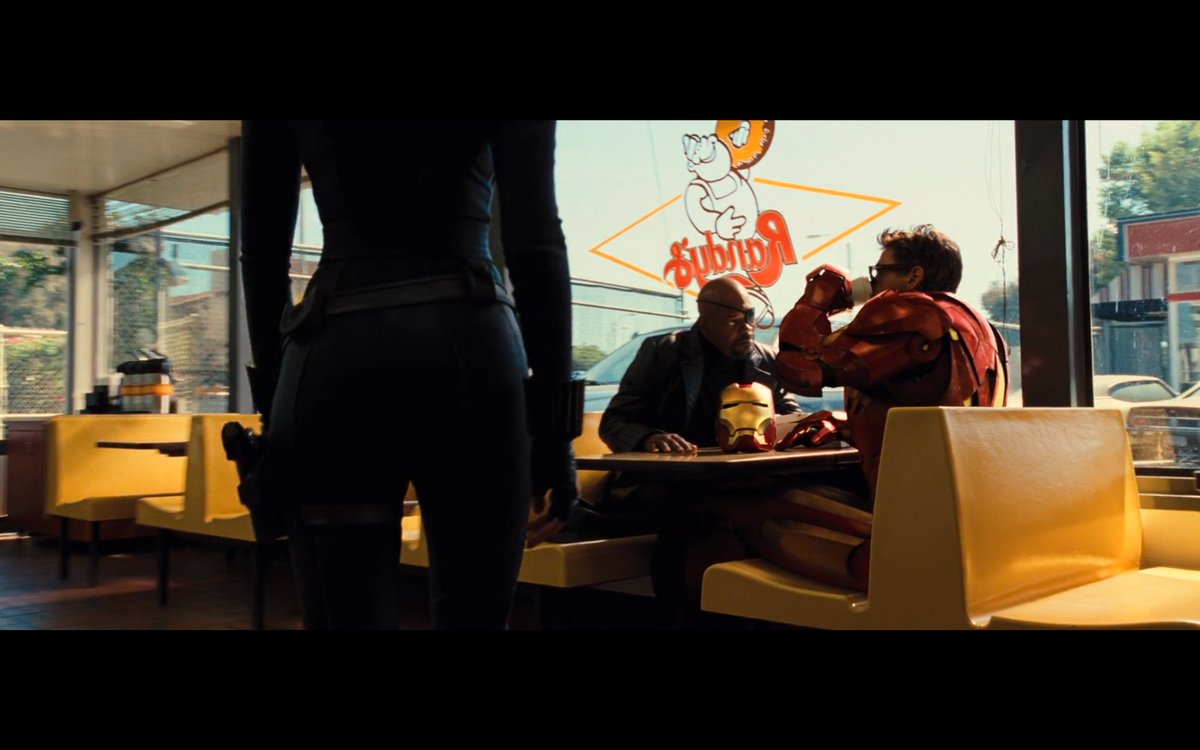
Another trend we see in Iron Man 2 has to do with how male friendships are depicted in the MCU. Tony and Rhodes mend their relationship and bond by the end of the movie but not through communication or mutual emotional support. Instead it's through a joint exercise in violence. 
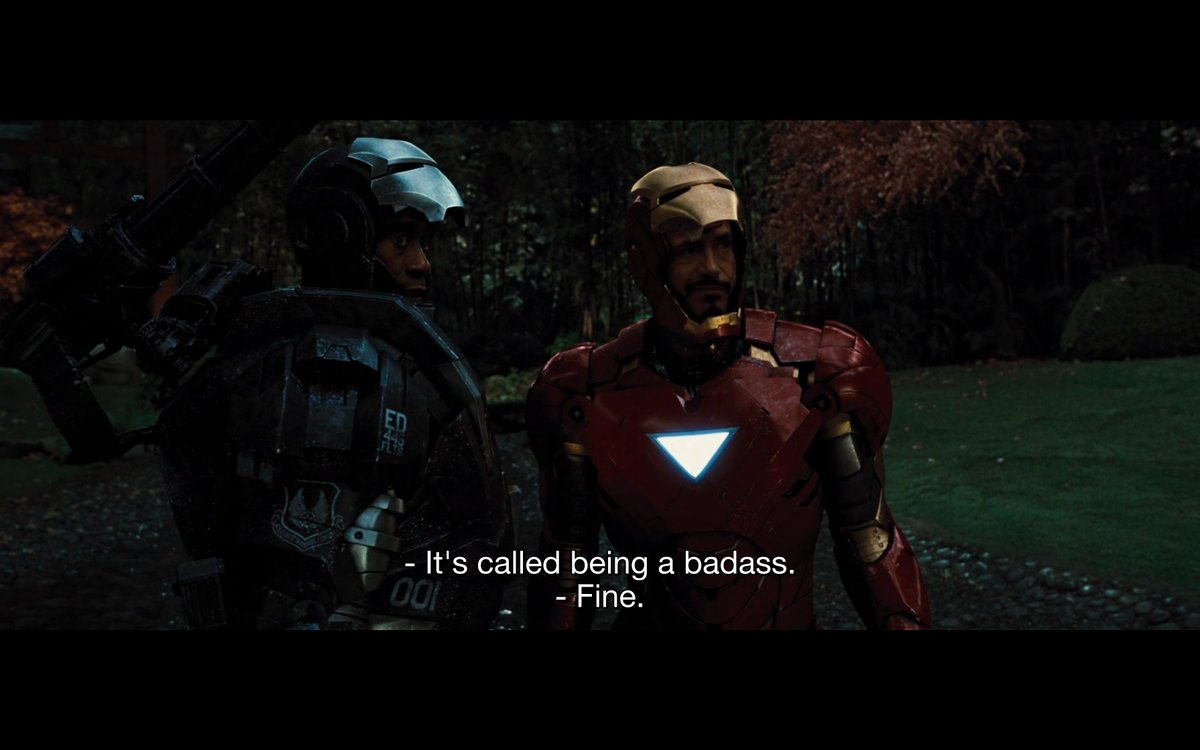
Admittedly this is a relatively minor aside but I hate that Tony treats his robot helper in an abusive way and then the robot makes sad pitiful sounds and movements in response and it's all supposed to be hilarious. 
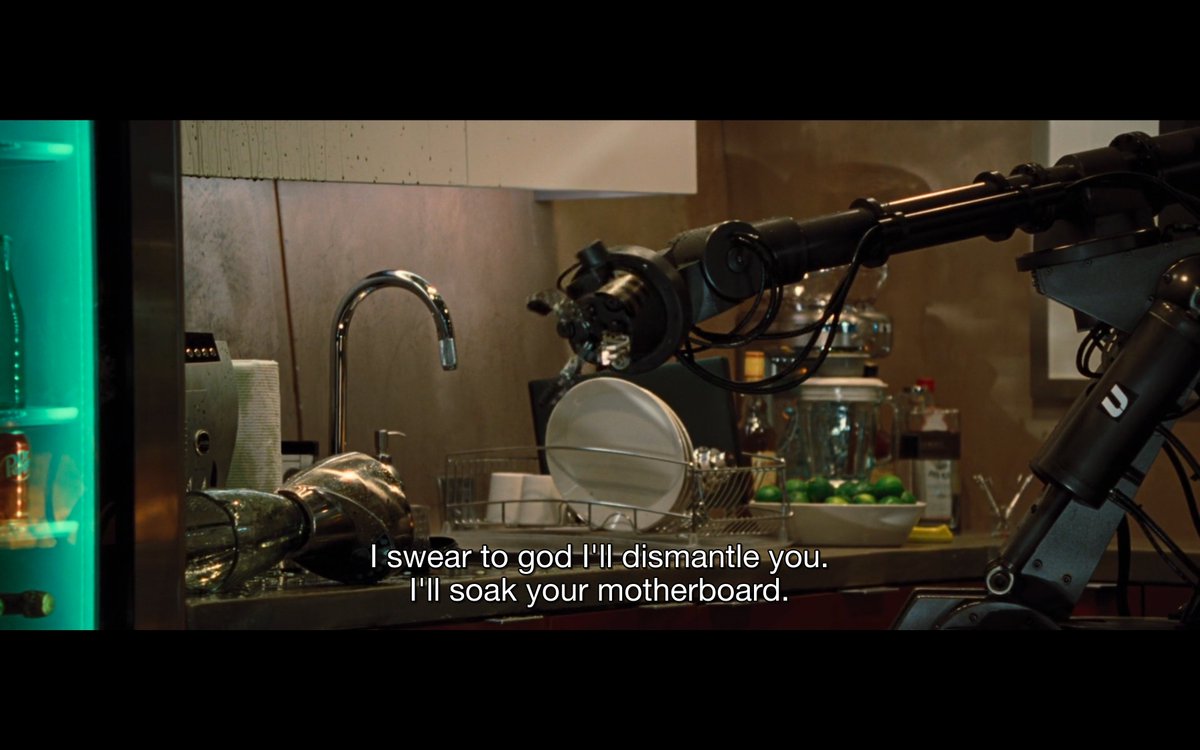
If there was any doubt about how the MCU views billionaires, Iron Man 2 features an Elon Musk cameo. In these movies the world doesn't need public institutions or a functioning civil society, it just needs "great men" to fix everything for us (after they break it.) 
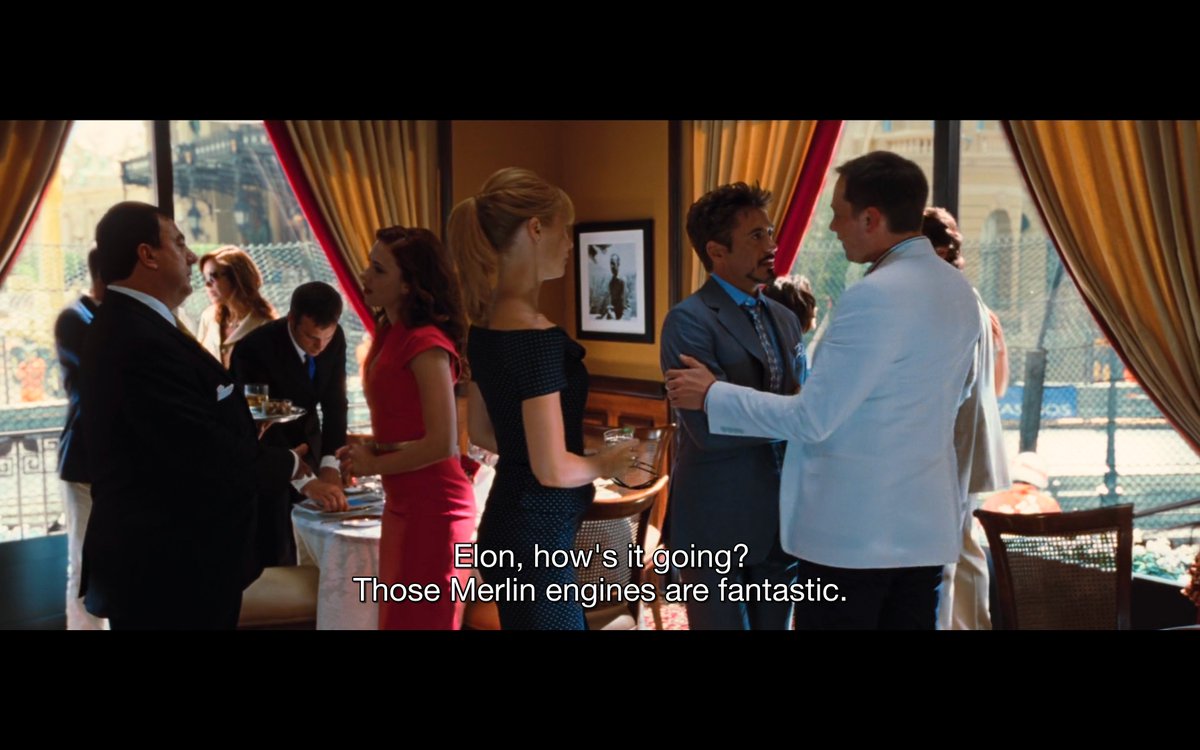
Let's not forget this scene where Tony and Pepper mock Justin Hammer's masculinity by shaming an investigative journalist for having slept with Tony in the previous film. Having Pepper join in on the shaming is especially ugly. It’s all played for laughs of course. 

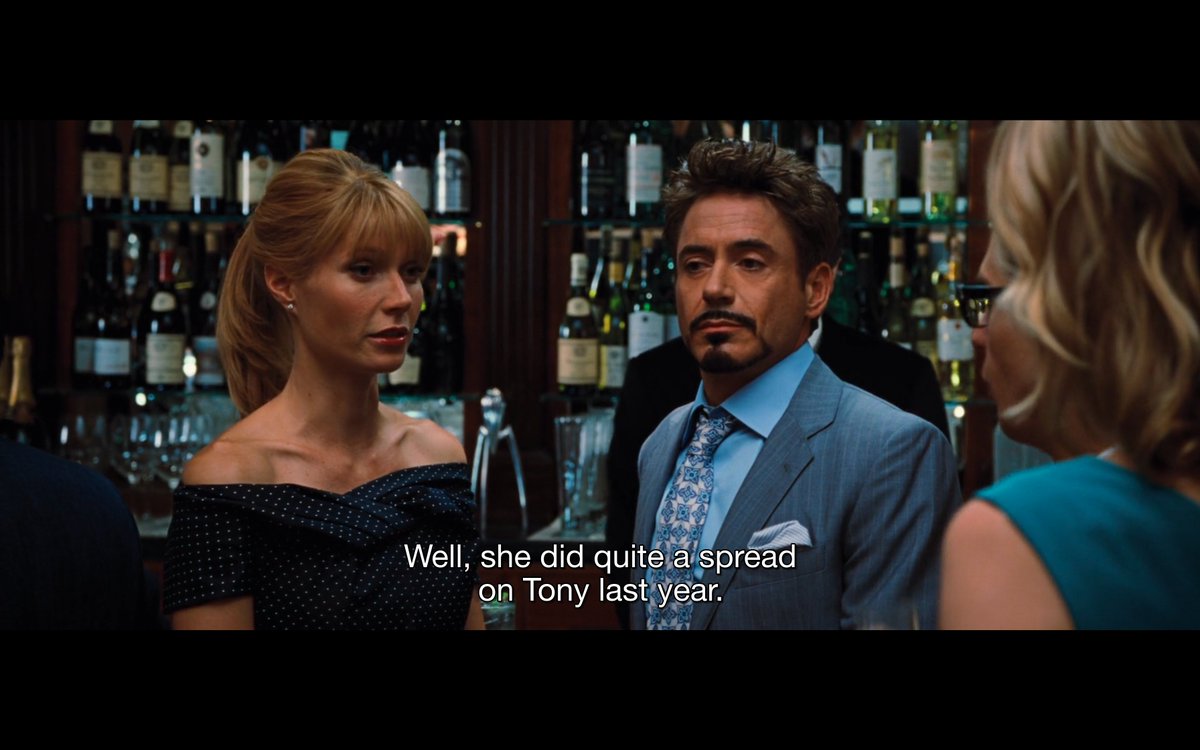
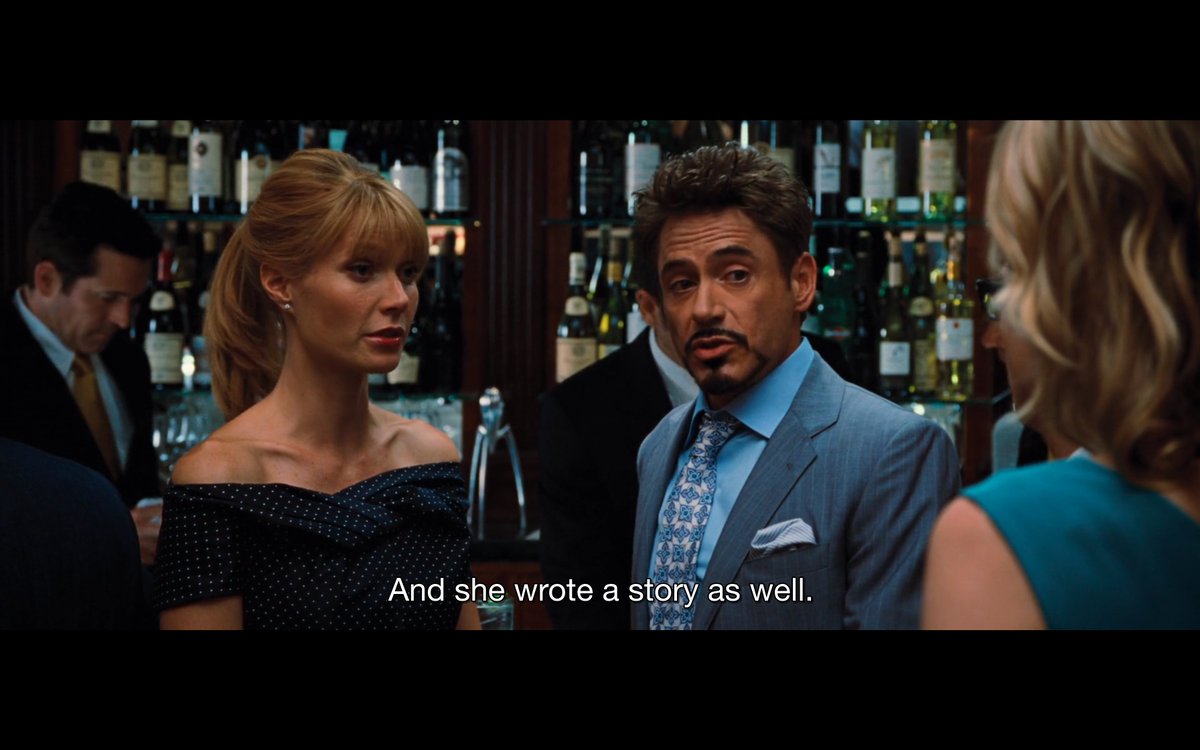
Anyway there’s a lot more to discuss in Iron Man 2 (especially as it relates to the confused framing of Tony’s recklessness, his arrogance, and his continued terrible treatment of Pepper) but we’ll return to all that in later movies.
Now it’s time for The Incredible Hulk (2008). This is an odd one because it feels so different in tone from the rest of the MCU.
Before we go any further, I just want to reiterate that I'm not here to review these movies. That is to say, I'm not interested in telling you if they are "good" or "bad" cinema. I'm doing a critical investigation of sociological themes and messages embedded in the MCU.
The Hulk is one of the most troubling MCU characters in terms of the masculinity messaging. He's a thoughtful mild-mannered man who transforms into a violent monster whenever he gets upset. After his rampages he turns back into a "nice guy" who isn't responsible for his actions. 

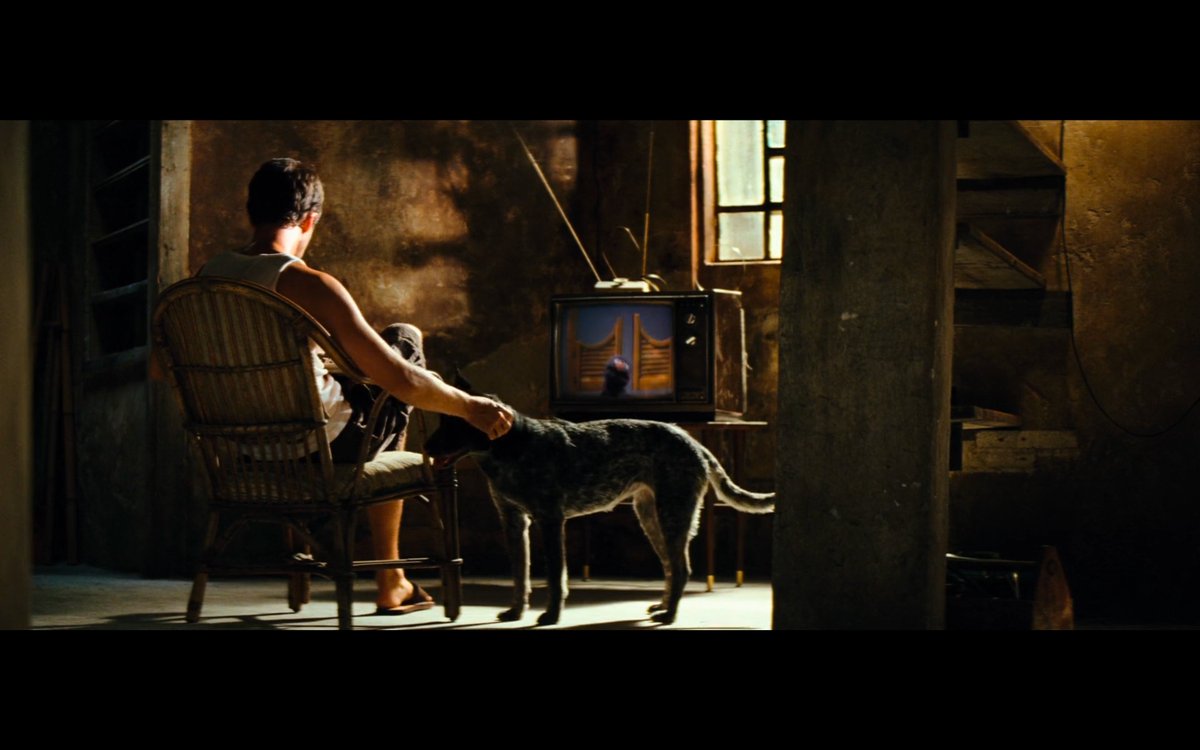

It'd be one thing if The Incredible Hulk was just about a man learning how to manage his anger. But that's not the story. This movie is about a man who learns to "aim" his violent rage in the appropriate direction. Male rage is framed as useful and even necessary to defeat evil. 

Bruce Banner, for his part, wants to find a cure for his Hulk side and feels remorse after each violent rampage. This framing reflects what's referred to as the cycle of abuse wherein abusers will express regret after an attack before doing it again later. en.wikipedia.org/wiki/Cycle_of_…
The narrative choice to have a "special woman" be the only one who can calm The Hulk's violent rage is particularly disturbing. A common misconception is that women can fix men's anger or violence with their love. In reality, those closest to abusers bear the brunt of their rage. 
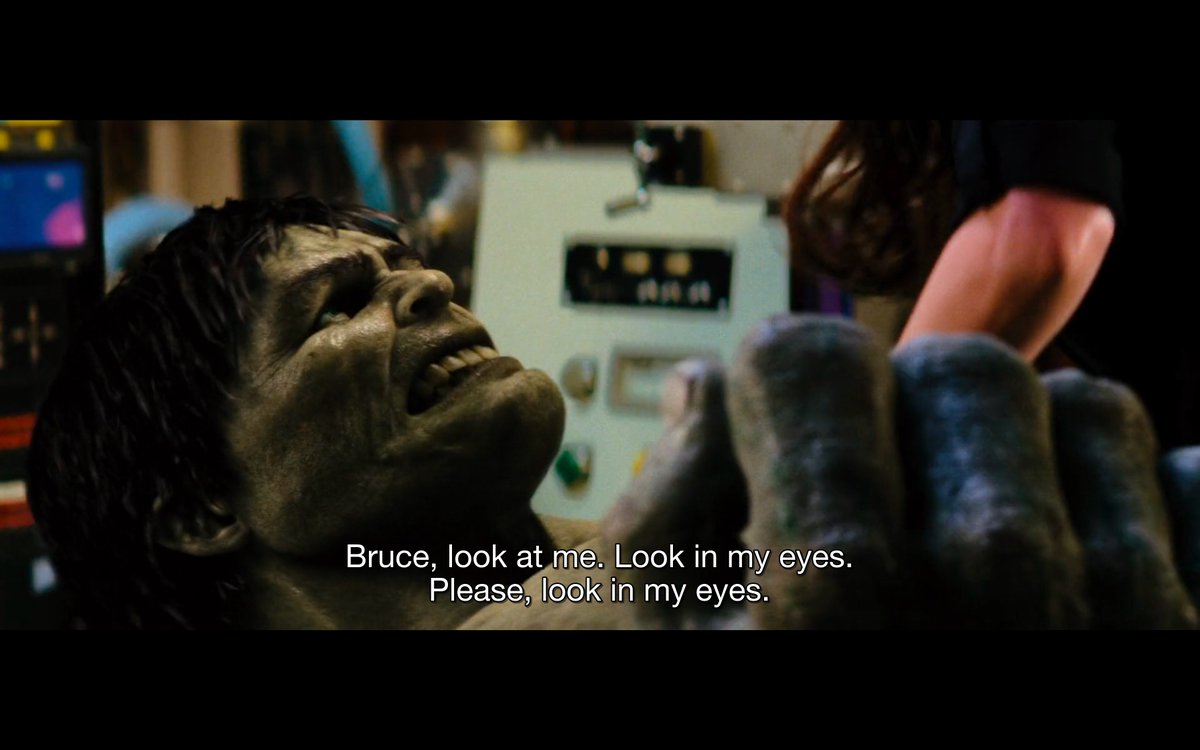
In the last shot of The Incredible Hulk we see Banner going it alone again and trying to fix himself in isolation without anyone else’s help. This is framed as good and noble but honestly what he really needs is a therapist. We very rarely see men in therapy in Hollywood movies. 
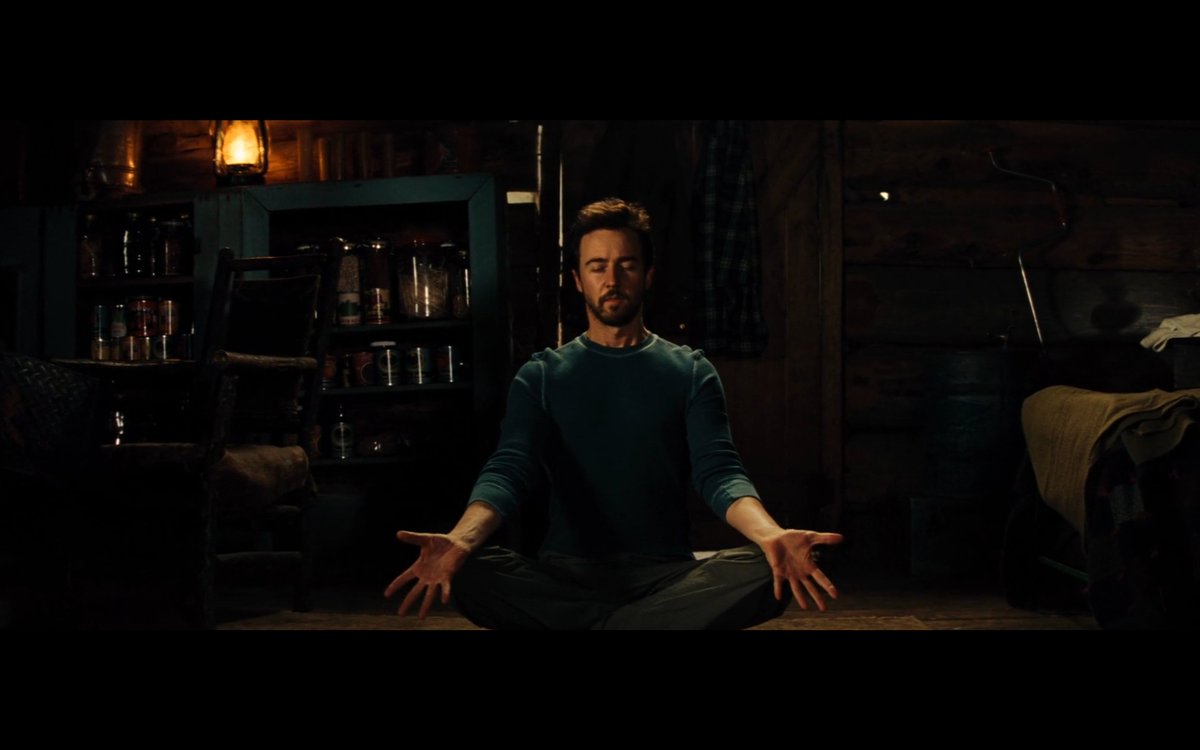
A final note on The Incredible Hulk, I think this is the only MCU movie where the US Military is depicted in a negative light. I’m gonna guess Marvel hadn’t cemented their long-term partnership with the US Department of Defense back in 2007. Plus this one was filmed in Canada.
We’ll return to The Hulk again later but I’ll leave it with these quotes from bell hooks fantastic book “The Will to Change.” She’s talking about The Incredible Hulk TV show here, which ran from 1978 to 1982, but I think her analysis could be applied to the MCU Hulk as well. 

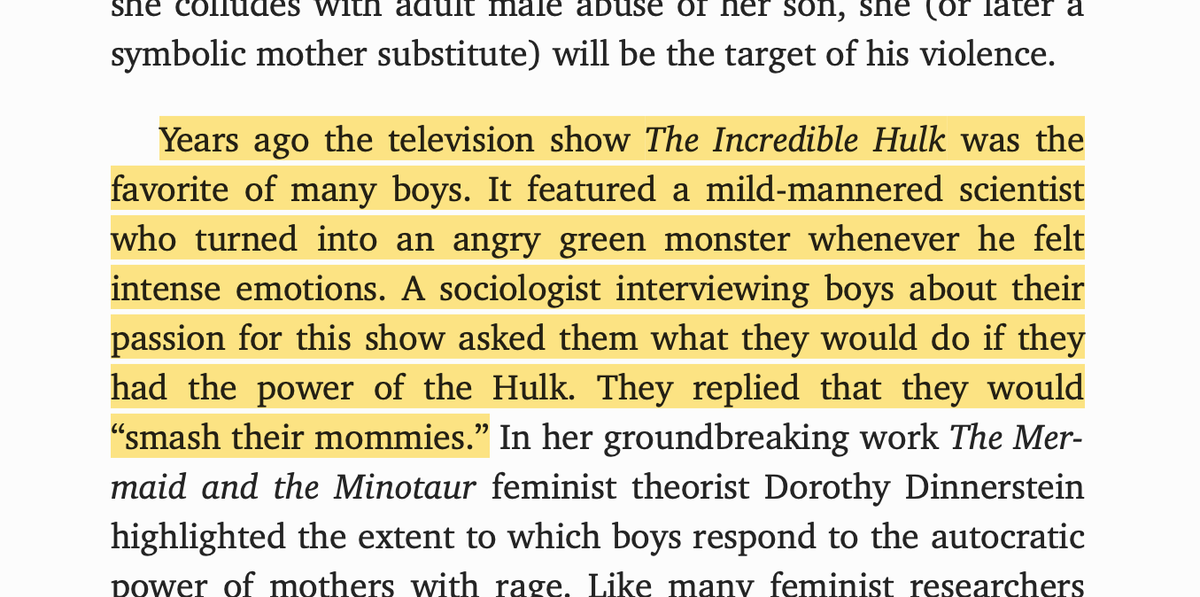

Next up we have Chris Hemsworth in Thor (2011)
The story of the 1st Thor movie is pretty standard stuff. An arrogant, selfish, and entitled prince must be humbled by having his station and power taken away until he learns his lesson, thus proving he's wise enough to rule. It's all about earning the right to wield power. 
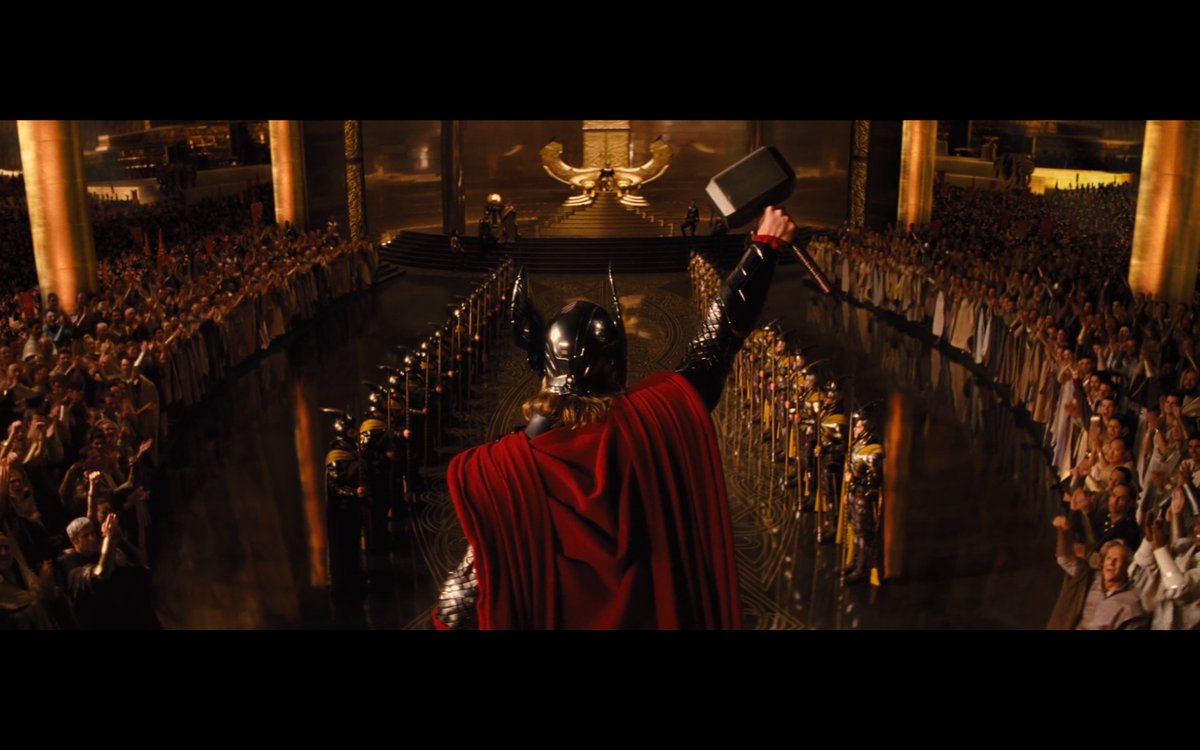
Odin introduces Thor’s hammer as something that can either be "a weapon to destroy" or "a tool to built" but it’s just used as a weapon to bash people's heads in like 99% of the time in these movies. 
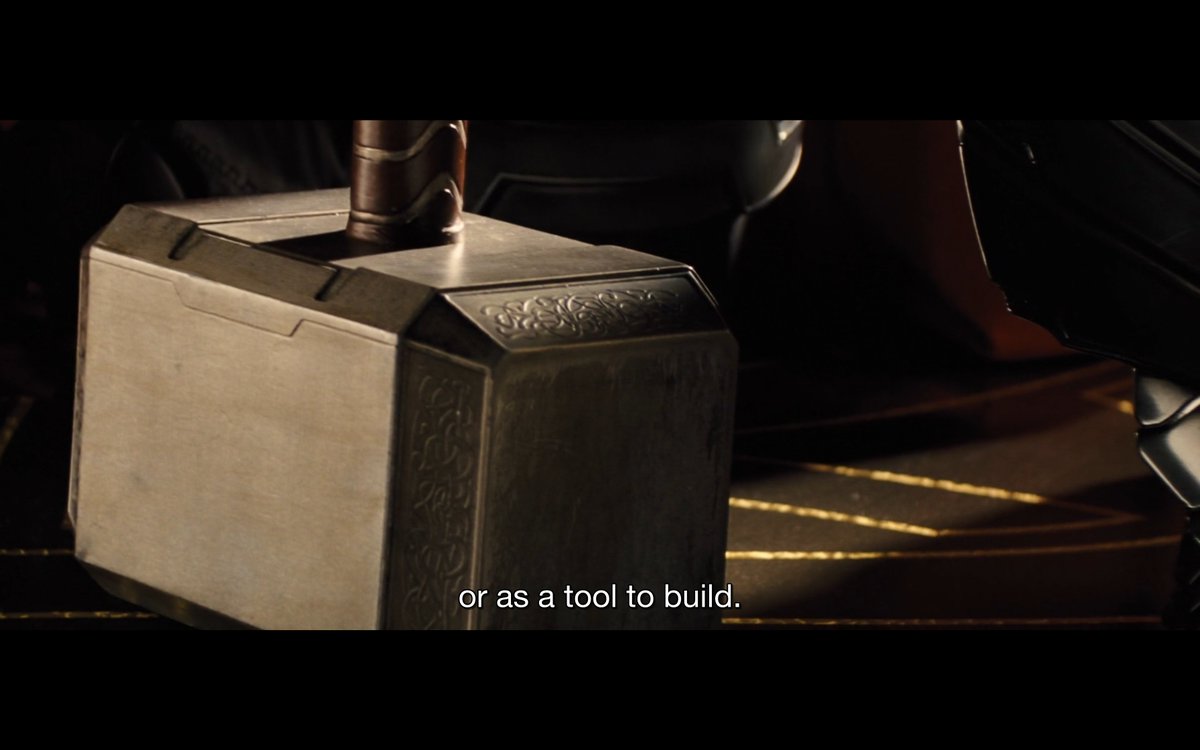
It strikes me that this scene in the 1st Thor movie where Odin explains his philosophy on the use of force doubles as both the message of the movie and as an ideology of the larger MCU. Essentially "don’t strike first but always be ready to utterly dominate any challenger." 

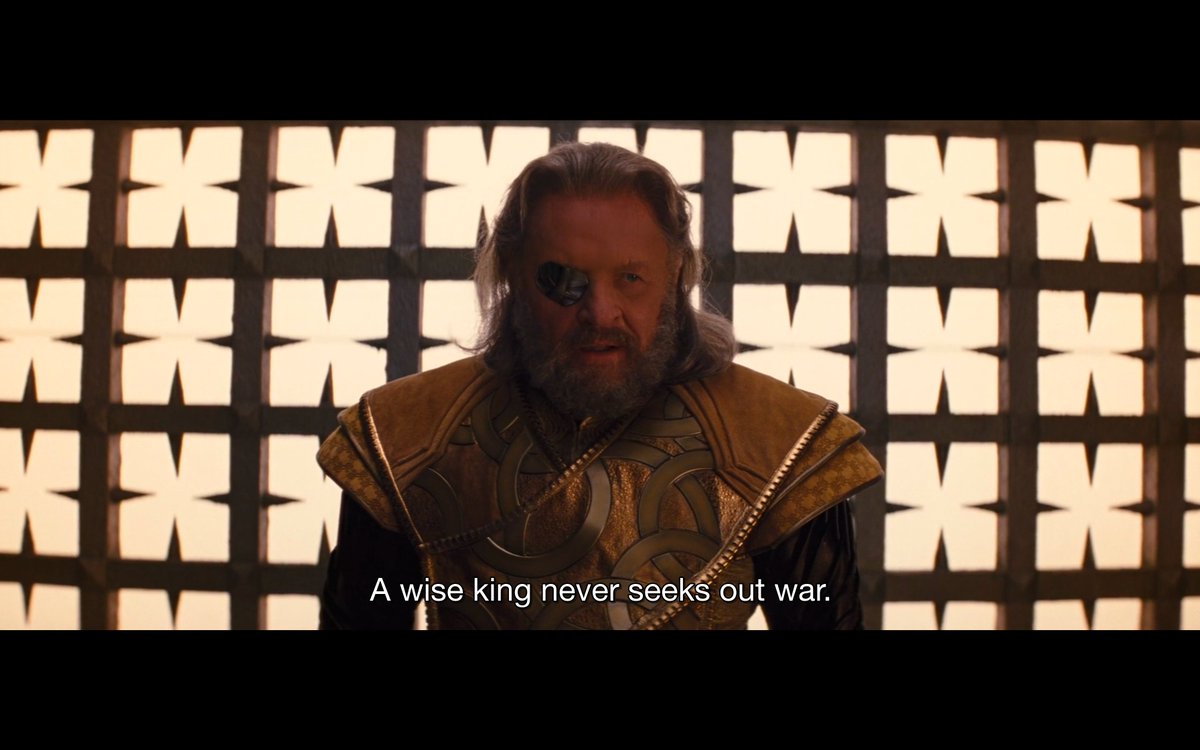
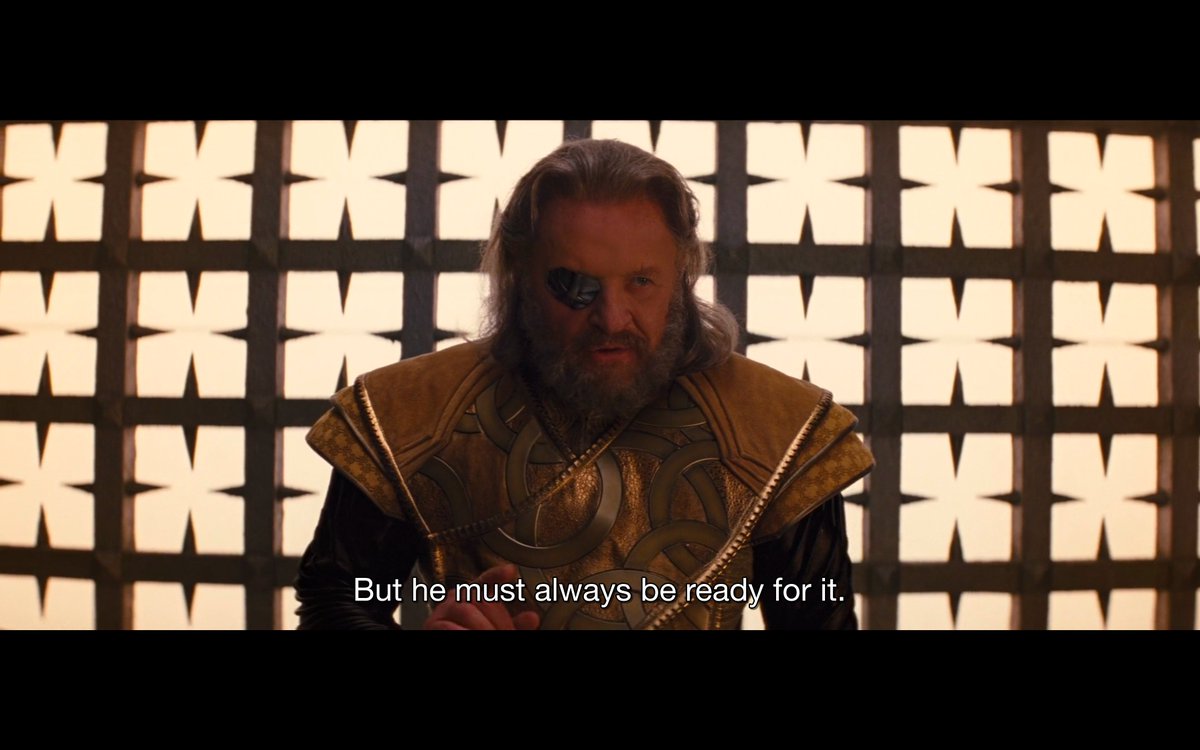
Notice the ultimate message of Thor (and the MCU more generally) isn't that no one should be given the authority to engage in the unilateral use of force. Rather the message is that only "truly great men" should be given the authority to engage in the unilateral use of force.
It’s important to note here that the four main Phase One superheroes (Captain America, Iron Man, The Hulk, and Thor) are all framed as living embodiments of weapons of mass destruction. They are even explicitly described as such at various points in the dialogue.
The problem, we are told by the MCU, isn’t weapons of mass destruction. The problem is weapons of mass destruction in the "wrong hands." In the "right hands" those weapons can be tools of peace. Sound familiar? It's a perfect distillation of US military/nuclear policy.
So how do we know which men are truly great? So great they should be entrusted with the authority to engage in vigilante violence whenever they see fit? According to Marvel the answer is heroic suicide. Great men in the MCU all choose to sacrifice themselves for the greater good. 

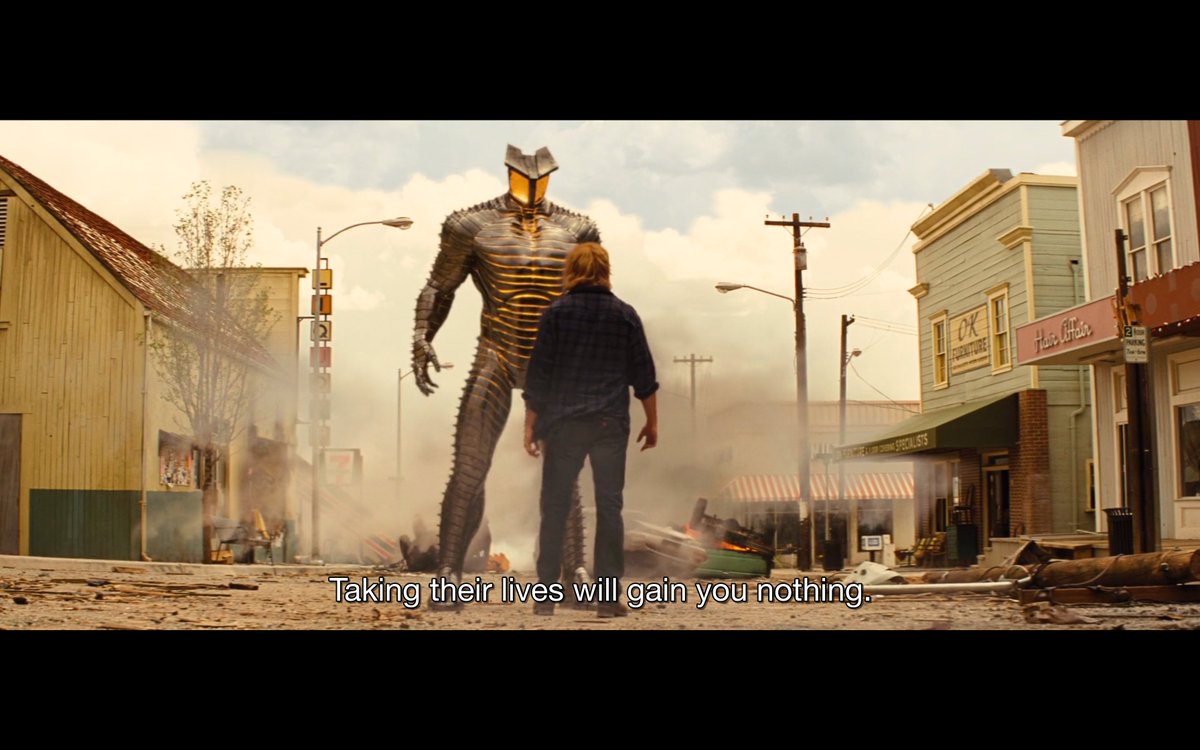
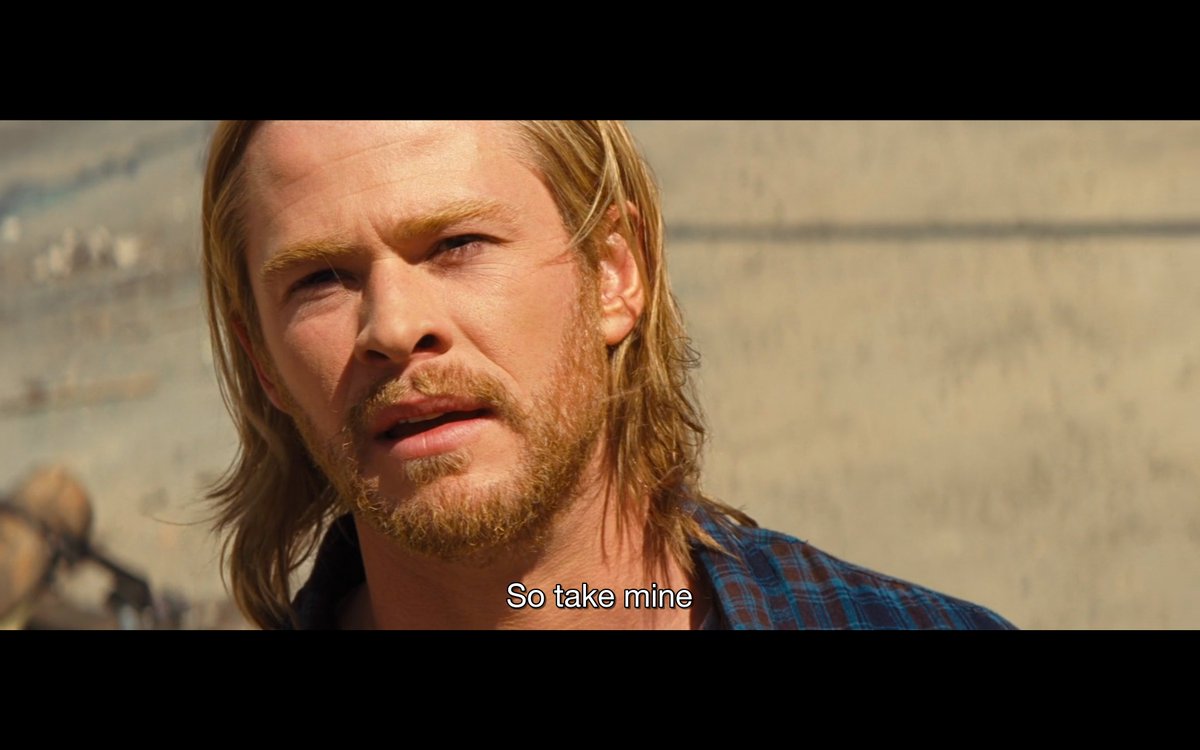
Each MCU hero is given an elaborate scenario wherein they choose to sacrifice themselves. Thor gives himself up to The Destroyer. Steve goes down with the Valkyrie. Banner jumps out of a helicopter. Tony flies a nuke into the wormhole in Avengers…but I’m skipping ahead again. 



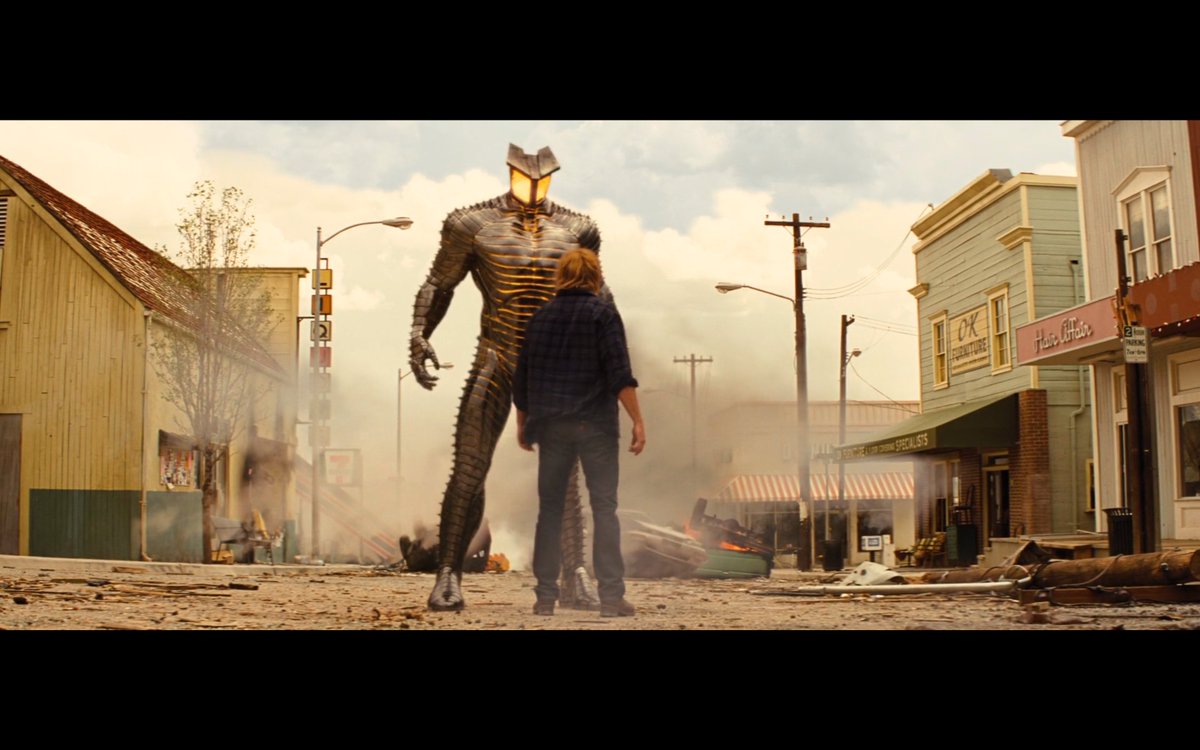
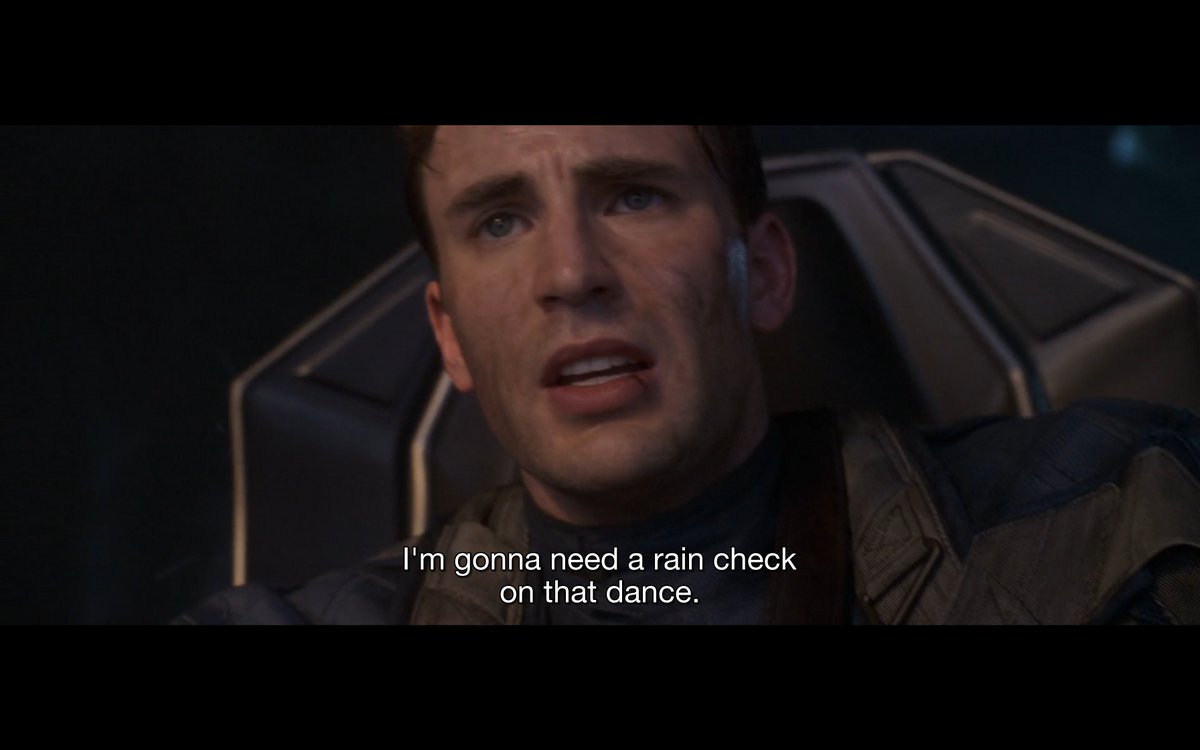
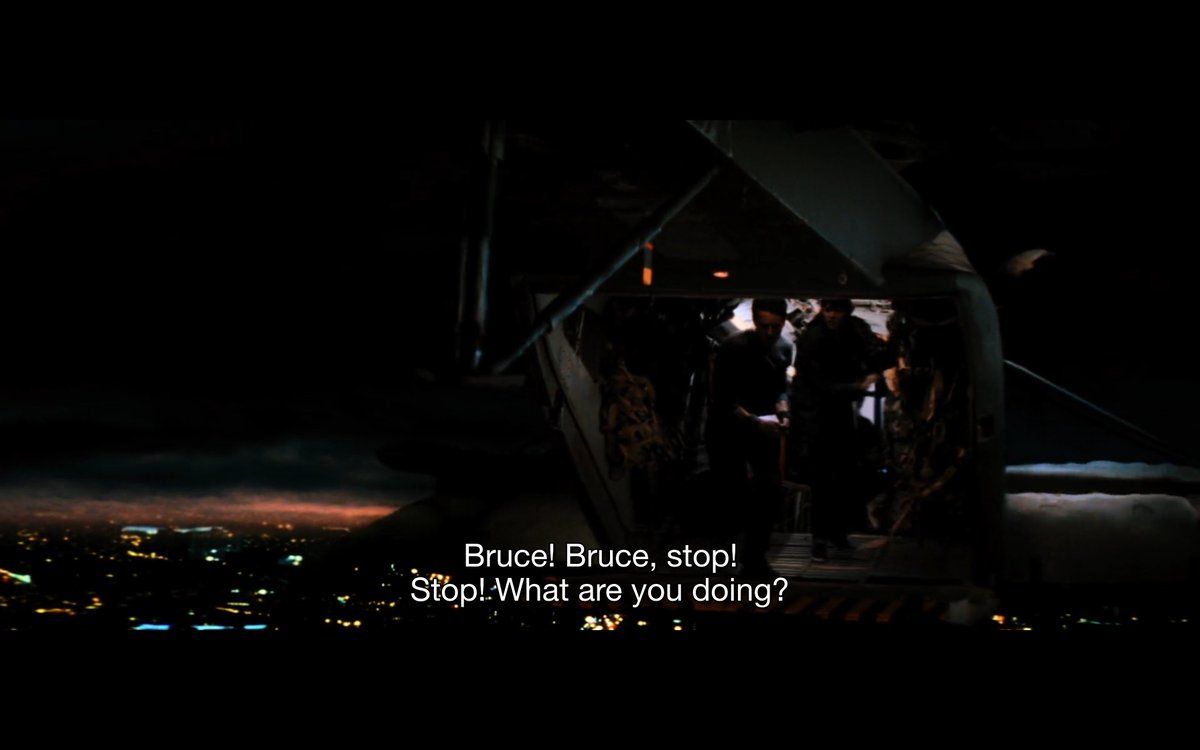
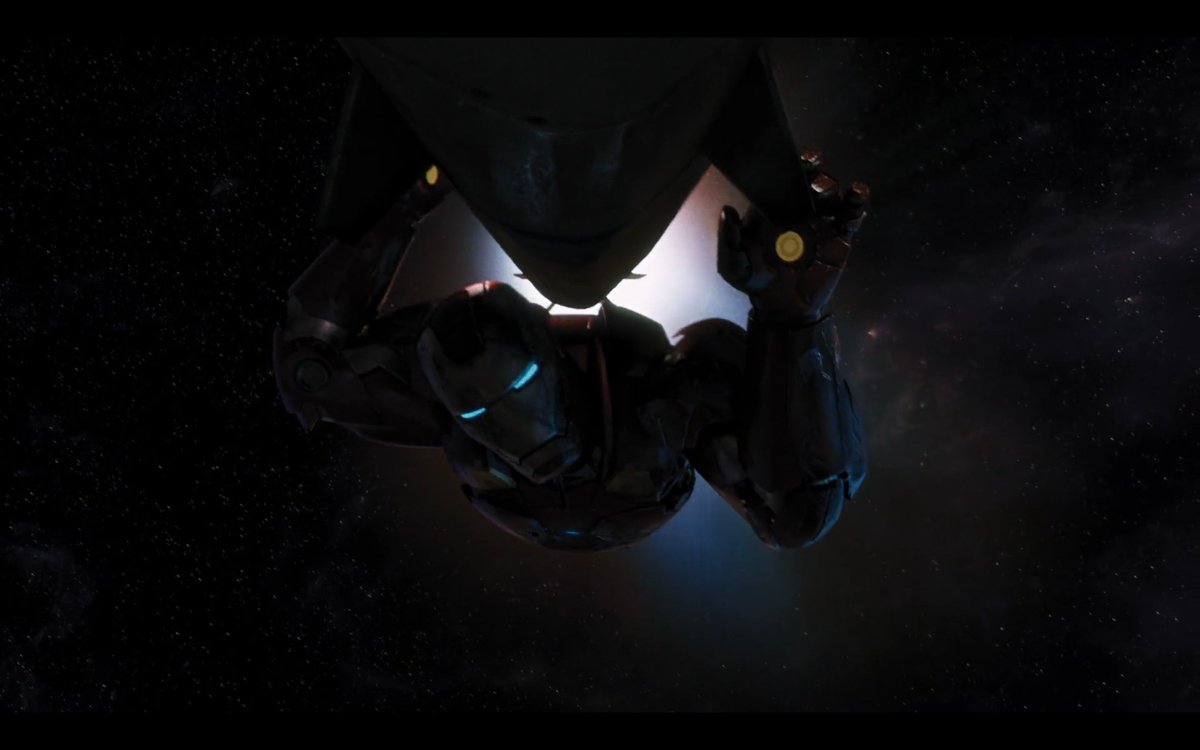
Of course because these are Hollywood movies, the heroic self-sacrifice doesn’t actually kill these men. Instead it proves they deserve their power. And the act of sacrificial violence only makes them stronger and more powerful. (At least until the very end of their story arcs). 
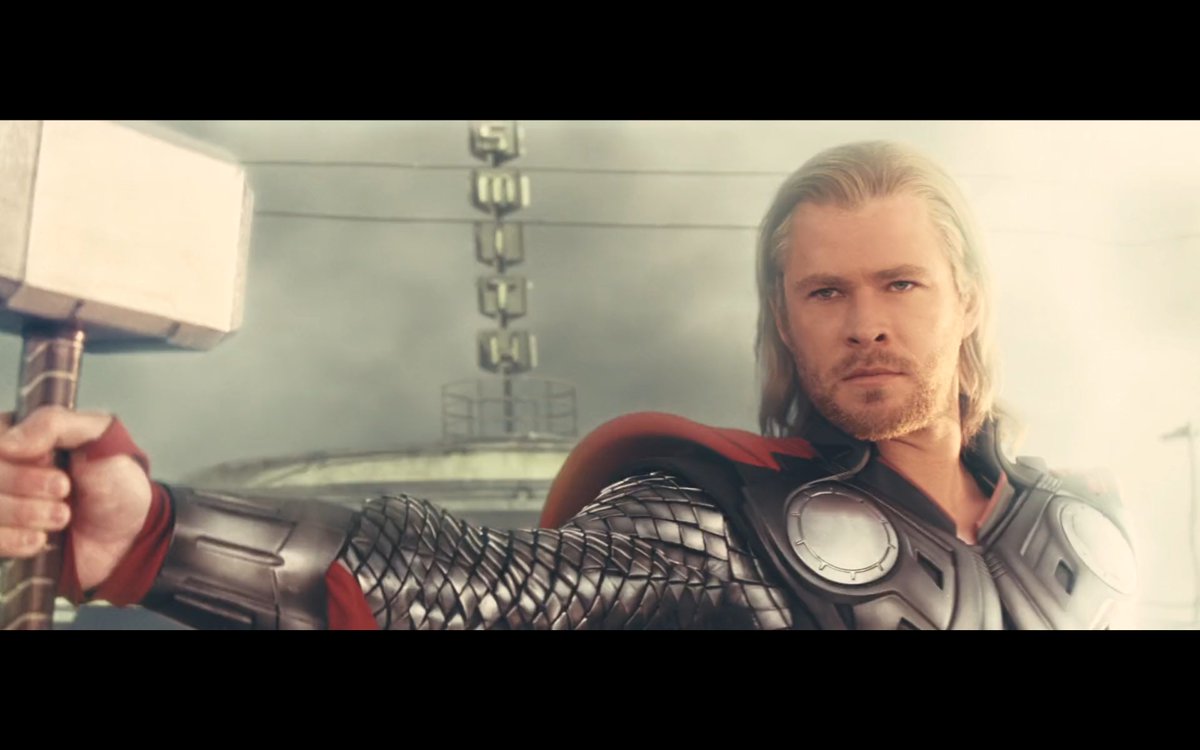
To be clear, I'm not discounting all heroic sacrifice storylines but I do think we need to consider the implications of so closely tying men's value, worth, and masculinity to one spectacular moment of suicidal violence. In the MCU there's no other way to be a true hero.
I'm doing a bad job of keeping these notes brief, huh? Anyway there will be ample opportunity for us to discuss Thor, as well as the heroic sacrifice, moving forward. Speaking of, it’s time for Joss Whedon’s blockbuster The Avengers (2012).
Oh one last note on Thor. This throwaway joke glorifying men drinking to excess and getting into brawls caught my eye because it comes directly AFTER Thor supposedly learns his lesson about heroic responsibility. But drunken bar fights are just harmless male bonding, I guess? 
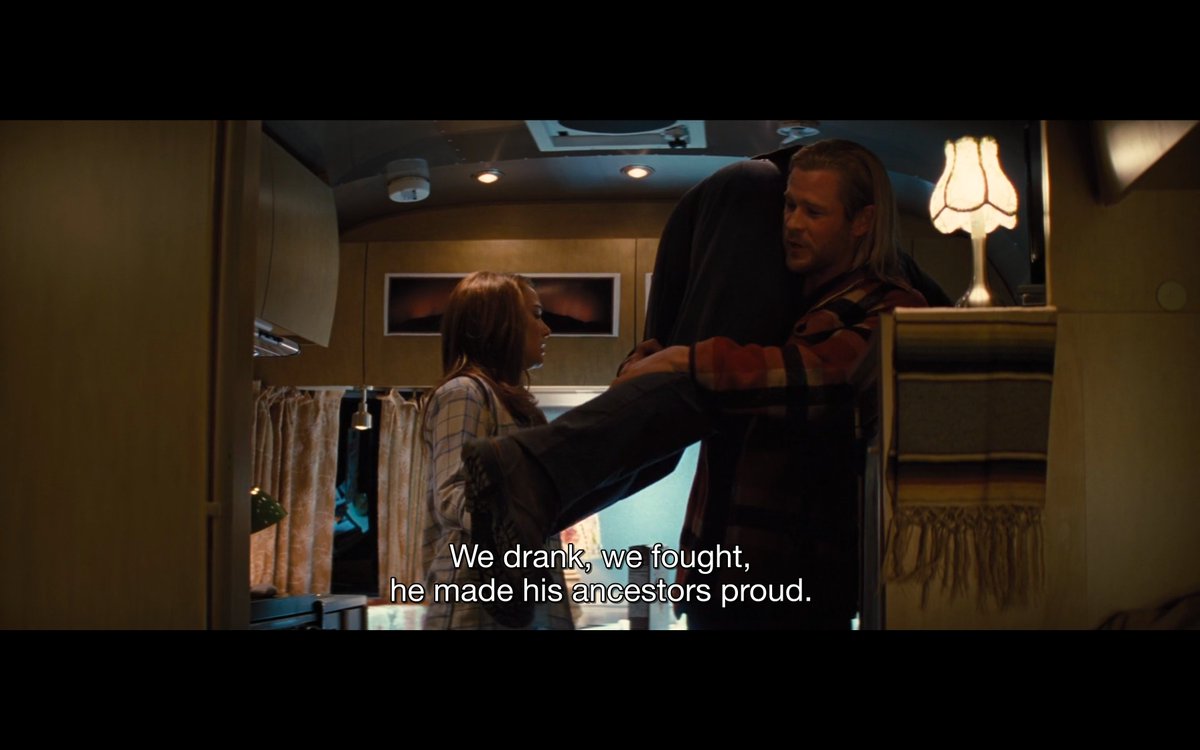
Took a little break from my MCU re-watch but now it's time for The Avengers (2012). Like Iron Man 2, this movie is pivotal in setting the stage for the rest of what's now called "The Infinity Saga” in terms of both politics and masculinity. In other words, I have A LOT of notes. 
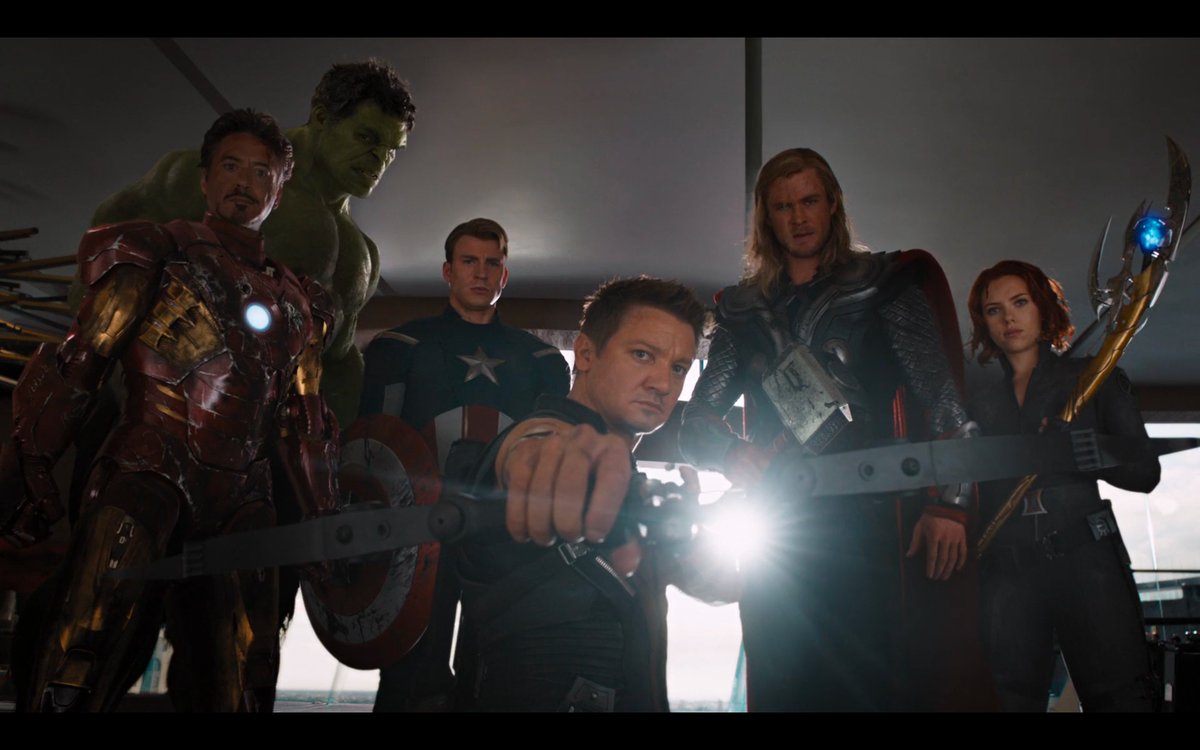
The always charming Mark Ruffalo replaces Edward Norton as The Hulk. The casting change is accompanied by a distinct change in tone from the more menacing version in Incredible Hulk to this more fun humorous take on the character in The Avengers.
Banner now refers to the Hulk persona as “the other guy,” which works to distance himself from responsibility for his fits of violent rage. Though not framed as such, it’s an unsettling mirror of how real-life abusers often dissociate from or rationalize their own behavior. 

Despite the humorous tone, there’s a seriously jolting moment in The Avengers where Banner admits to being suicidal (and acting on the impulse) but the line is just used to win an argument. The MCU never really returns to this again, which seems irresponsible to say the least. 
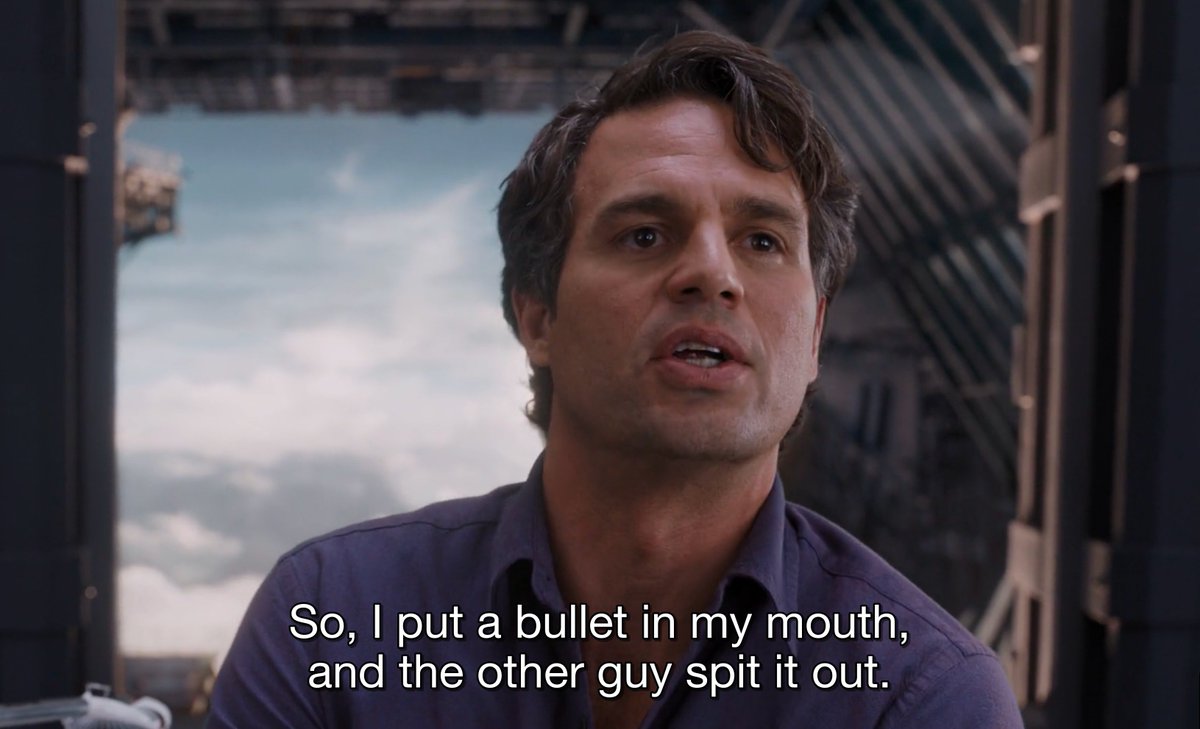
Again if the story was just about Banner learning to control his anger issues (which manifest metaphorically as The Hulk) that would be one thing but in the MCU The Hulk side is the hero. His violent rage is framed as cool, as useful, and worse as *necessary* to save the world. 

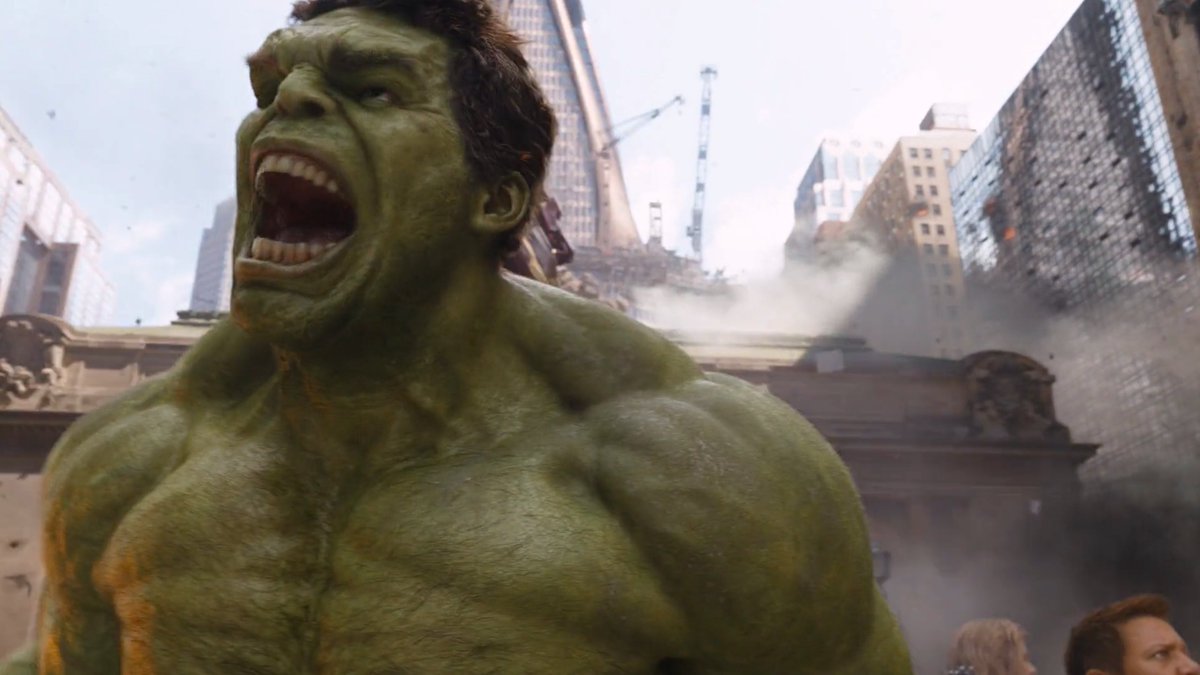

Remember when I said essentially everything in the MCU is solved with violence? Well, it’s taken to extremes in The Avengers. So your best friend has been brainwashed by an Infinity Stone? Don’t worry, it’s nothing a little blunt force trauma to the head can’t fix. 
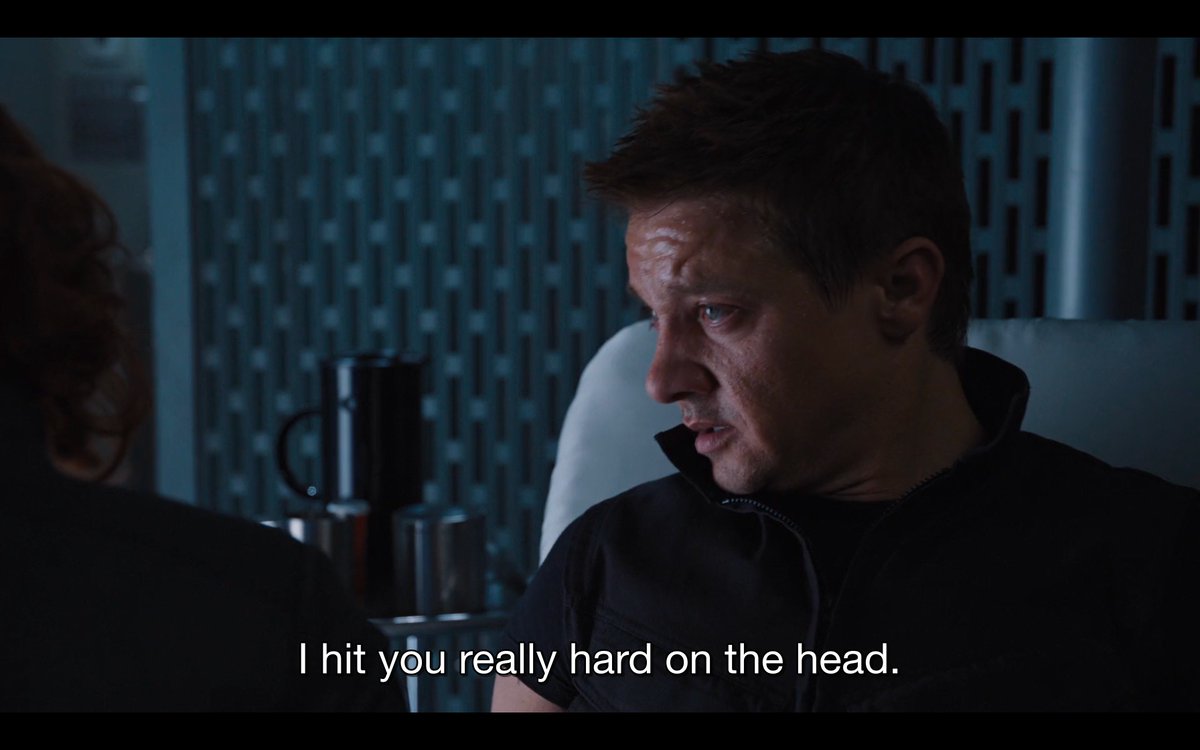
That’s right, the narrative solution to mind control in the MCU is the same as it is for a broken copy machine at the office. Hit it really hard and hope the internal mechanisms realign. This is famously how the human brain works. 
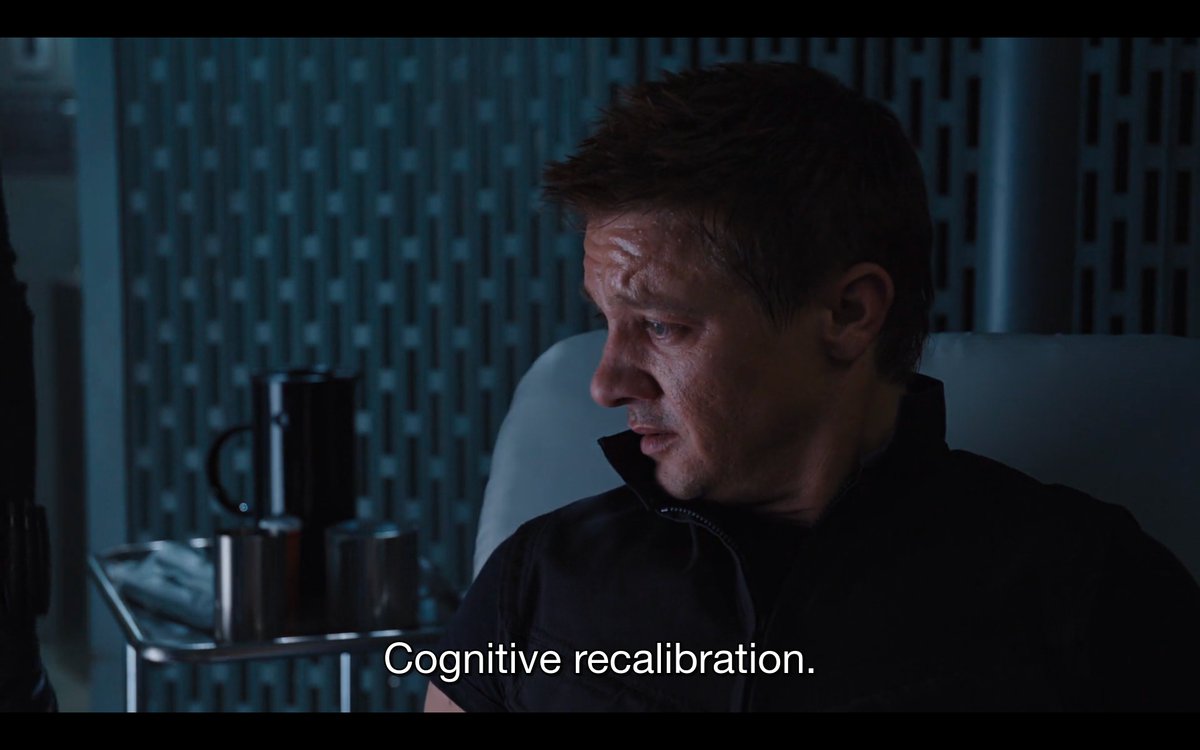
Most of the time Captain America fights with his shield or fists but in The Avengers we briefly see him using a modern assault rifle. The scene reads like another advertisement for real firearms. We've seen this trend with guns before in the MCU and we'll see it again. 

Normal humans in the MCU (who aren't super, per se) use guns to try to match strength with super beings. Coulson uses a futuristic firearm. Natasha, Clint, and Maria use Glocks. Fury uses an RPG etc. Guns continue to be framed as both badass and an effective way to project power. 


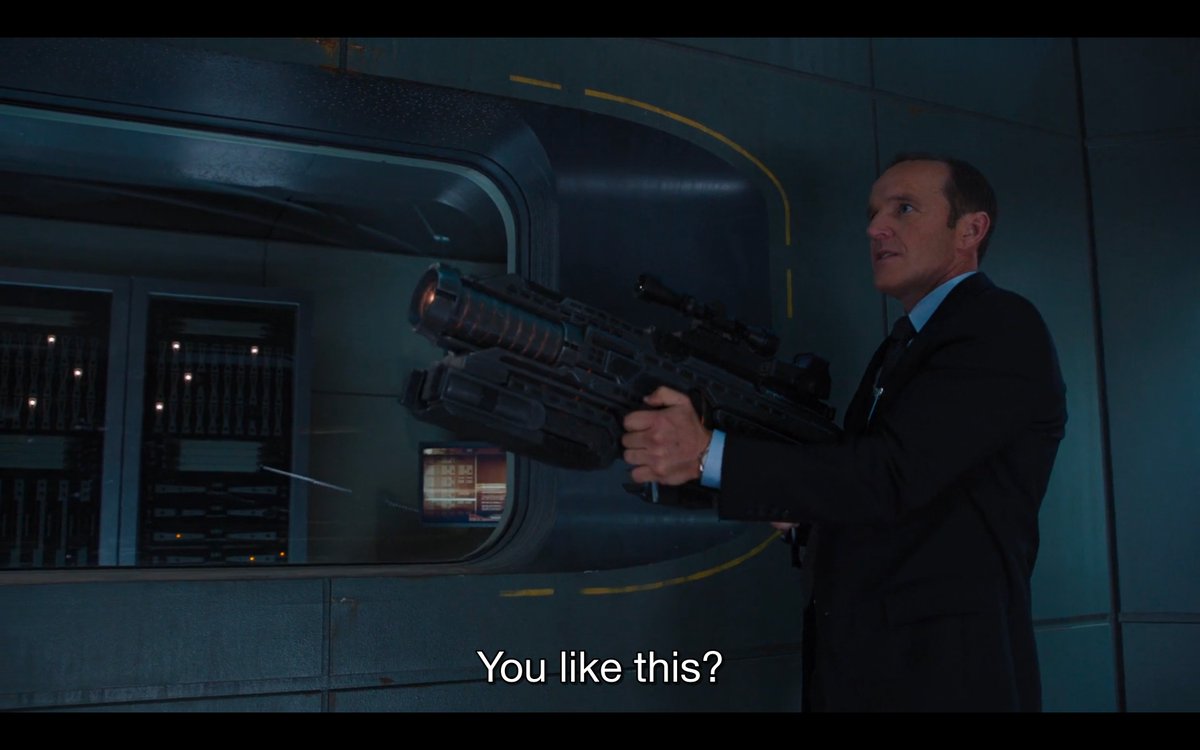
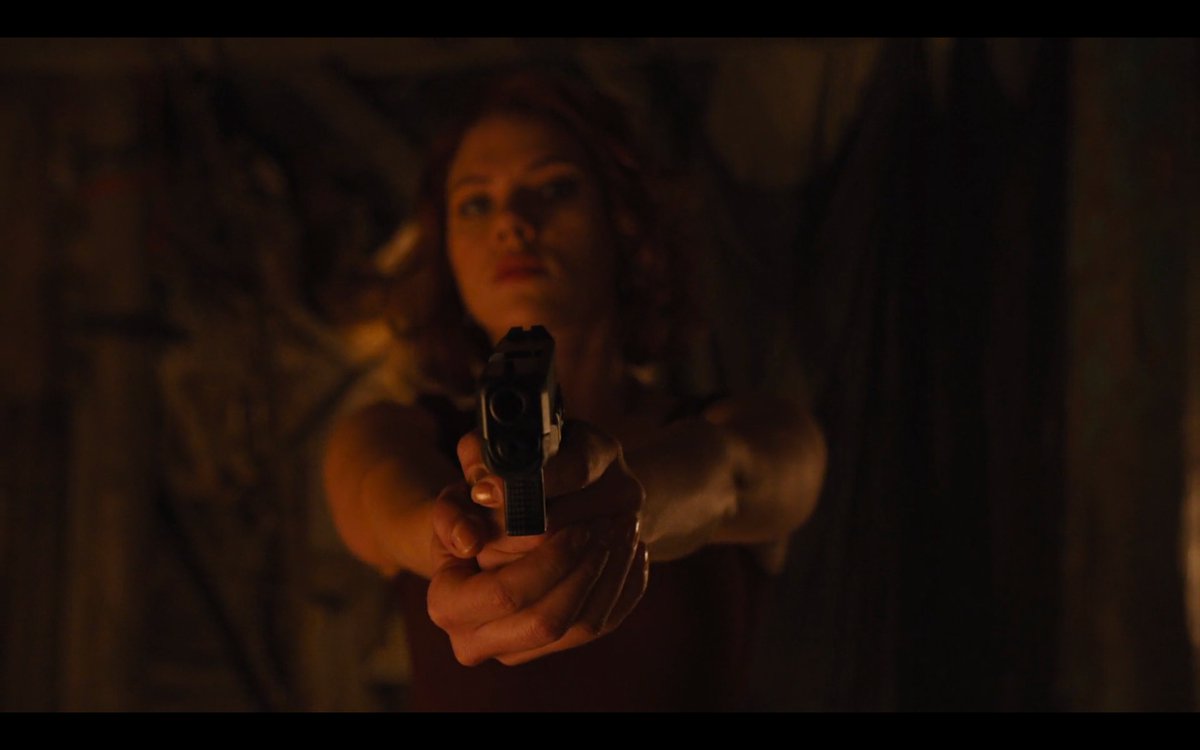
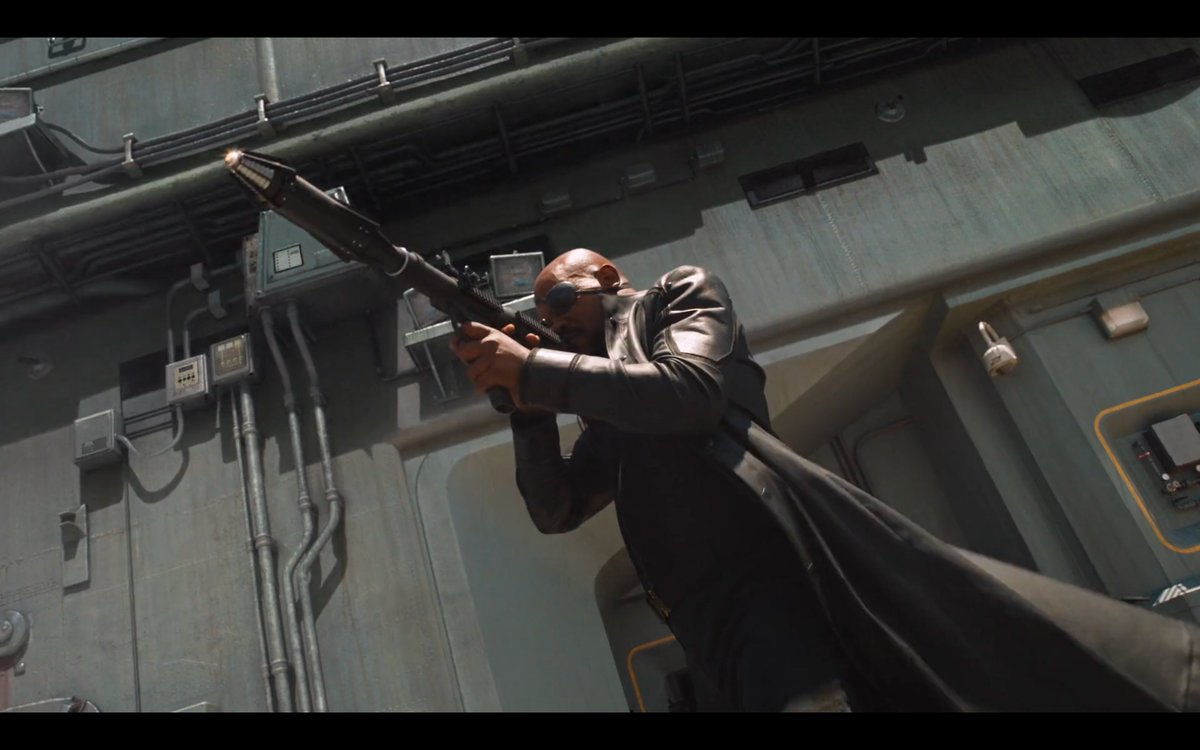
Of course, most superheroes don’t need to carry guns because they ARE weapons personified. As I’ve said before, MCU heroes are written as direct metaphors for weapons of mass destruction. And The Avengers movie doubles down on that narrative framing.
SHIELD is building alien-powered WMDs as "deterrents" to protect earth from galactic threats. There’s an argument over this but the core premise isn’t questioned because the writers have created a universe where the imminent threat is real. 
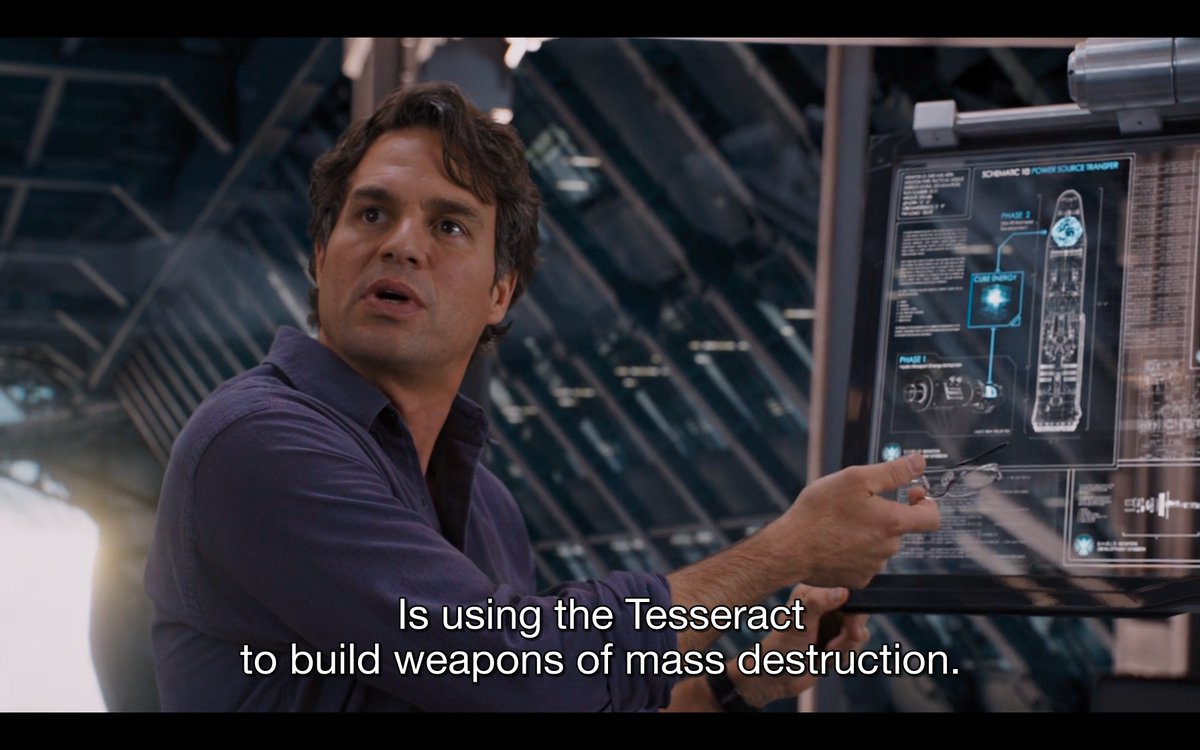
Fury continues to channel Donald Rumsfeld in talking about alien “unknown unknowns” in a galaxy brimming with imminent threats. The film’s ultimate solution is that The Avengers themselves will fill the role of WMDs by becoming deterrents in a galactic superhuman arms race. 
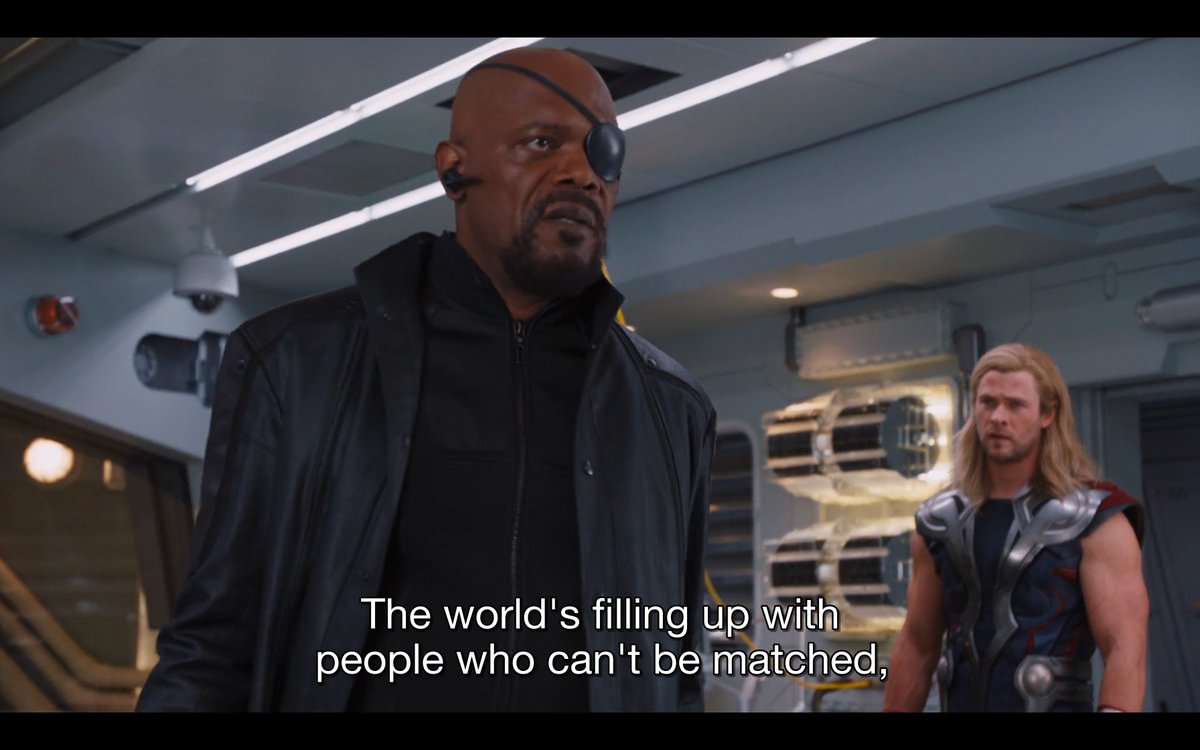
Parallels to the real-life "War on Terror" and 9/11 in The Avengers are striking and undeniable. The rationalizations and justifications for a new forever war are essentially the same but instead of foreign terrorists from the Middle East, it's alien terrorists from outer space.
SHIELD is a US government agency shown to operate an omnipresent surveillance apparatus capable of spying on any device connected to the internet. It's a massive invasion of privacy that's presented as necessary to stop the unique threat posed by super bad guys. Sound familiar? 

The MCU desperately needs their own Edward @Snowden 
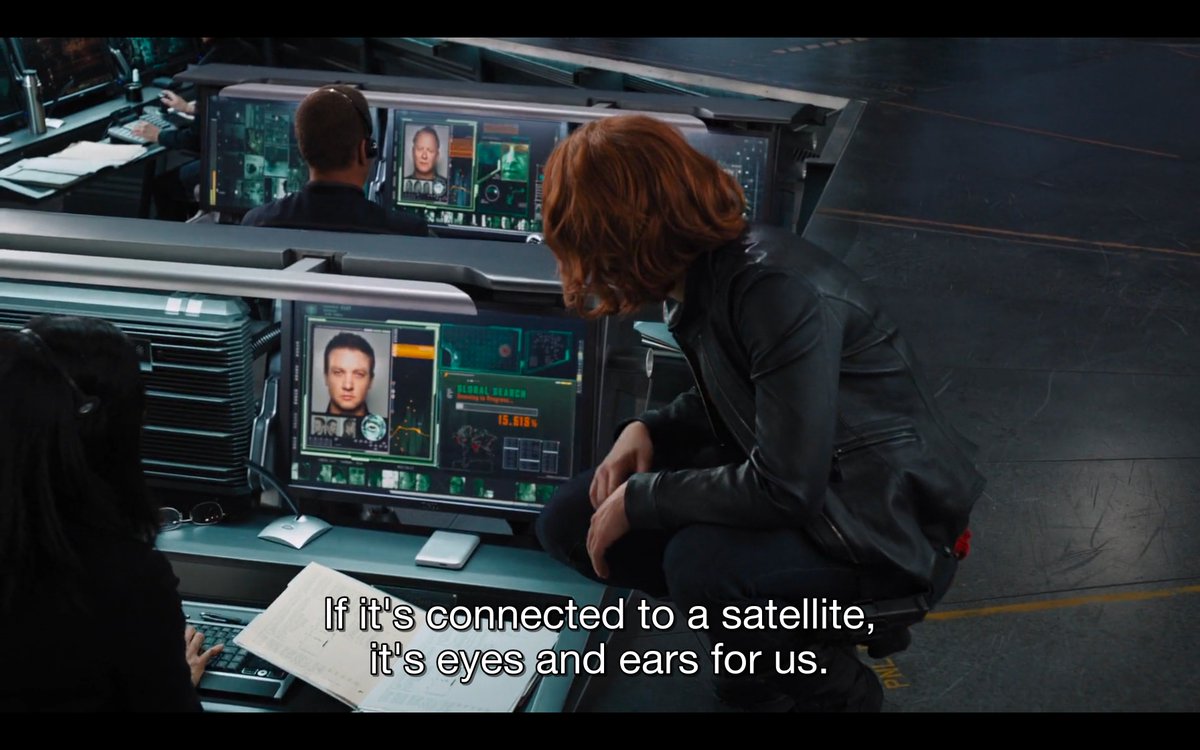
The Avengers was released in May 2012. One year later, Edward Snowden blew the whistle on PRISM, a mass surveillance program designed to harvest citizen data. Jumping ahead, MCU writers didn't learn anything from that scandal because Spider-Man is using mass spying tech in 2019. 

I’m getting way ahead of myself but just like WMDs, the ultimate MCU message seems to be that mass surveillance tech is good but only in the right hands. The “right hands” being unaccountable private individuals (like a tech billionaire) with good hearts and good intentions.
This is a very telling scene in illuminating how power and authority are presented in the MCU. Captain America gives orders to a bunch of NYC cops. They don’t recognize his authority because officially he doesn’t have any... 

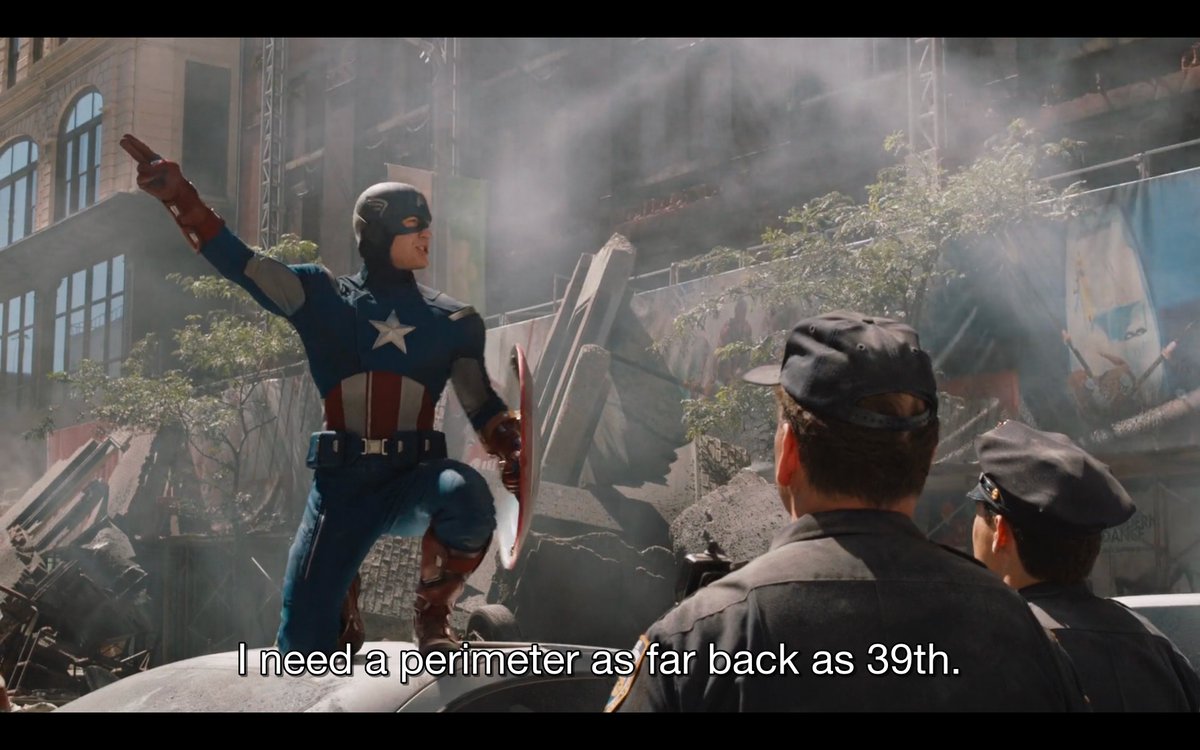
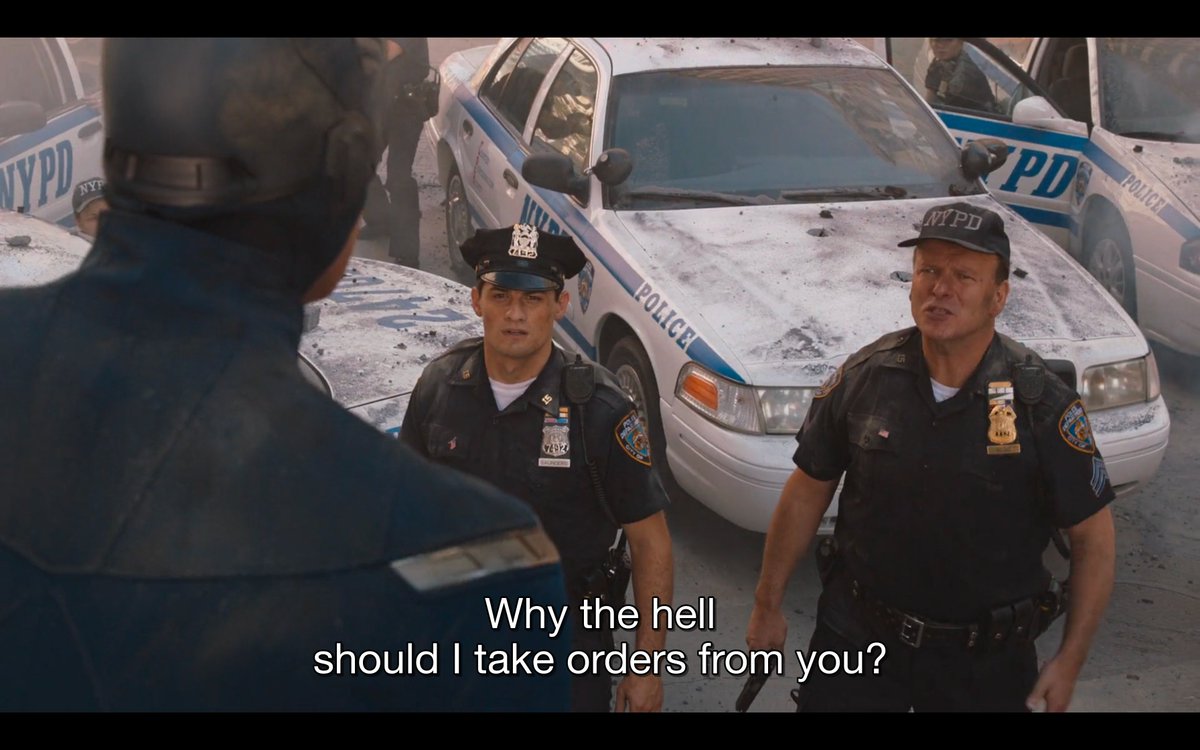
...But then Captain America single handedly takes down a bunch of aliens in front of them. Seeing this, the cops suddenly follow his orders to the letter. The message couldn’t be clearer: masculine violence and swift acts of domination are what grant men authority in the MCU. 

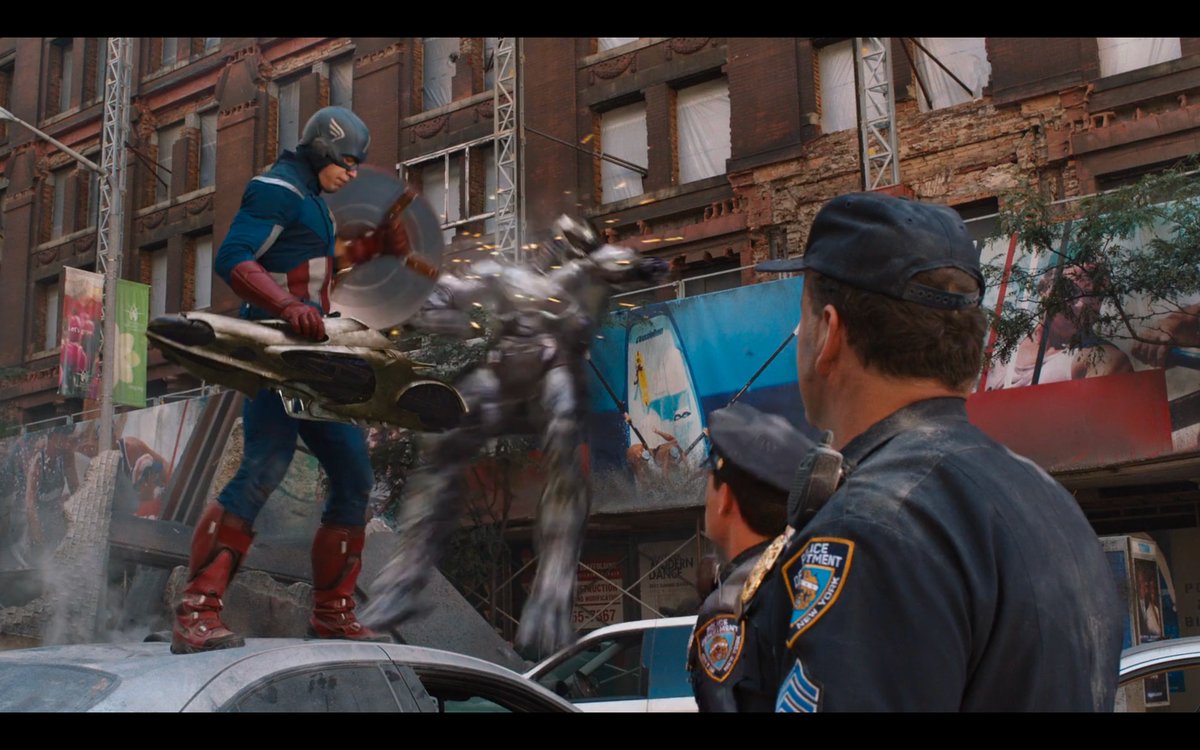
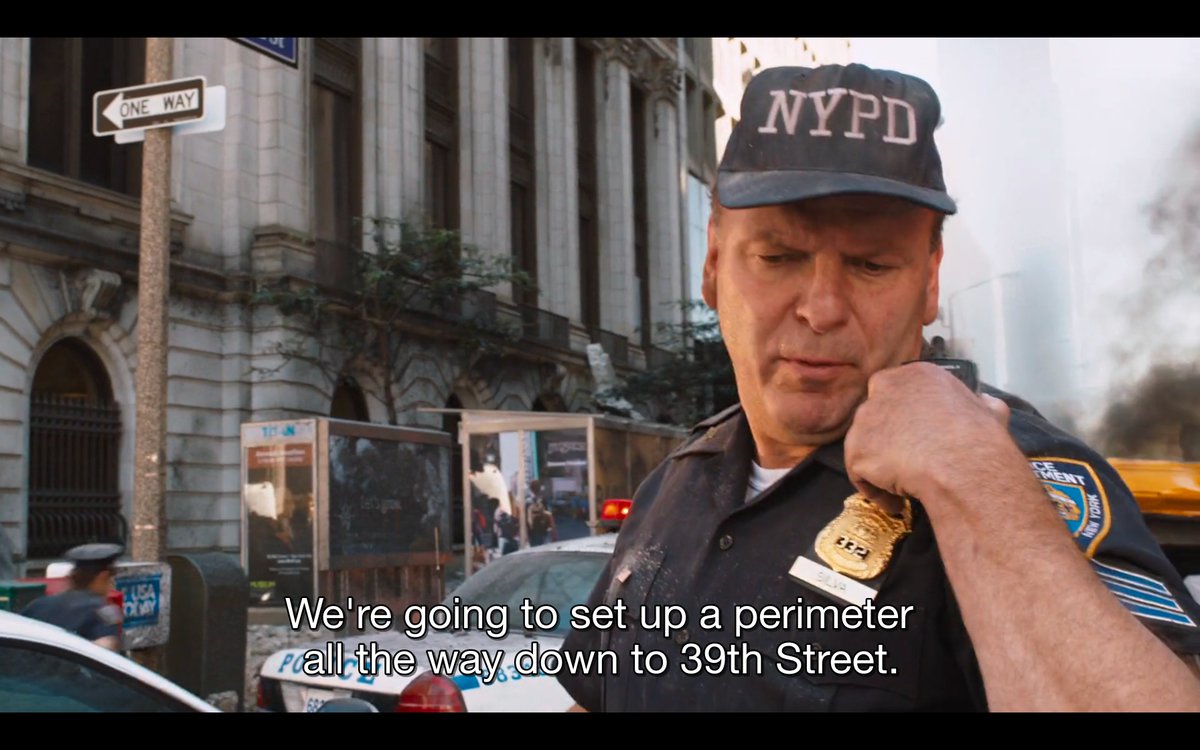
There are terms for systems where authority is granted to the strongest or most violent individuals outside of institutional structures that could (theoretically at least) hold decision makers accountable. Democracy is not one of those terms. We’ll keep returning to this point.
Throughout the MCU power and authority are legitimated via acts of violence and domination (against bad guys) and not by any democratic or institutional means. But what about public accountability for authority? Again, the very idea is dismissed as absurd, corrupt, or evil. 
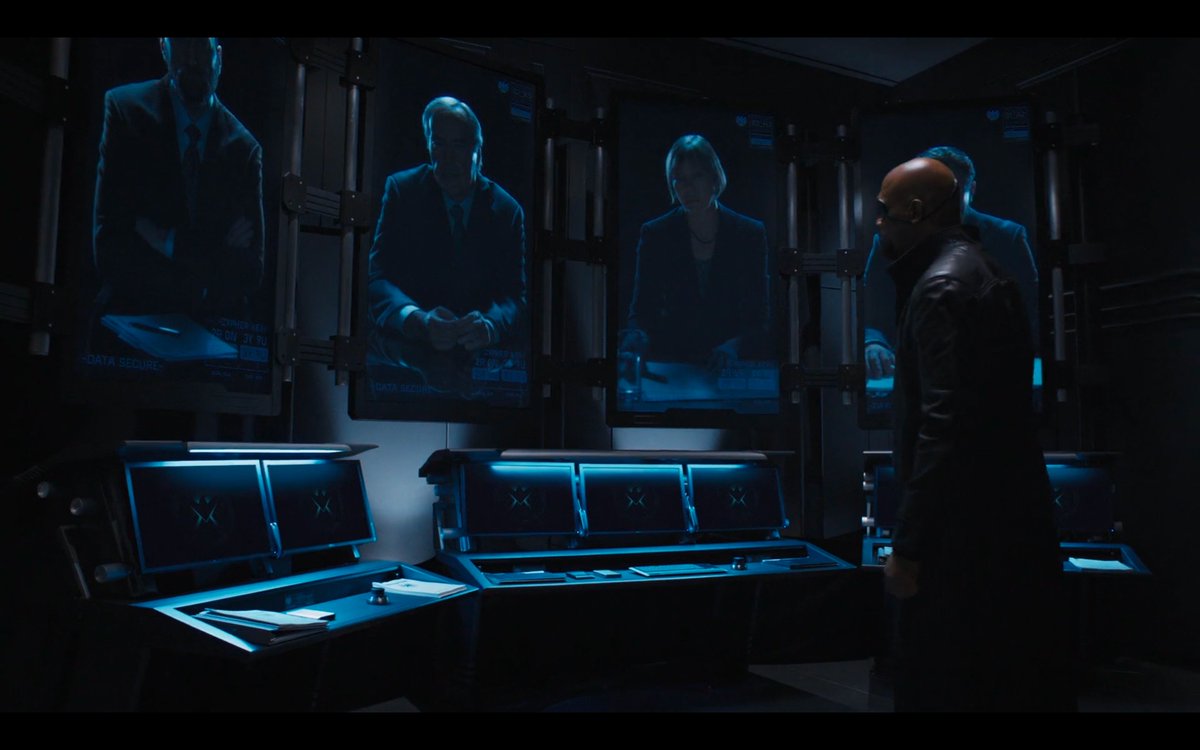
Elected officials absurdly blame The Avengers for the destruction of NYC and call for investigations. Those in an oversight position for SHIELD are evil shadowy bureaucrats who tried to nuke NYC. The pattern continues: only unaccountable "great men" can be trusted with authority. 

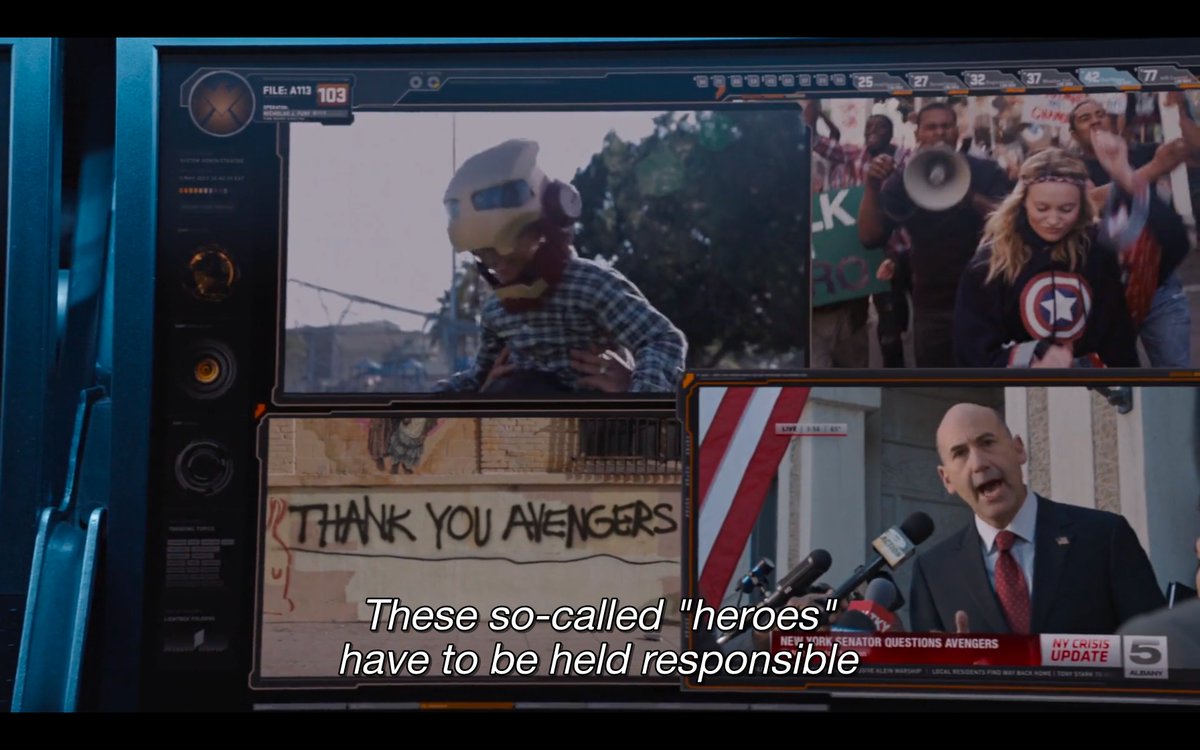
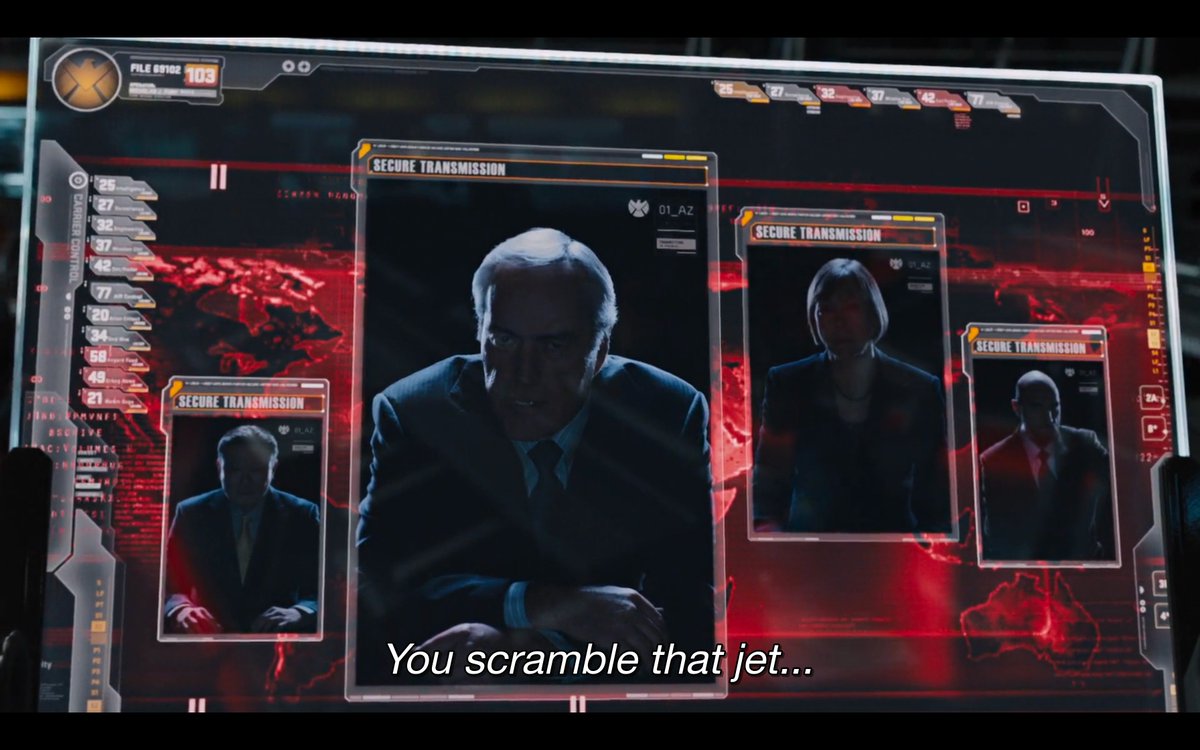
I want to circle back to the representation of masculinity and male relationships in The Avengers because there’s a lot going on and almost none of it is good. Truly supportive male friendships are rare in movies. And when we do see them, they’re often forged in violence. 
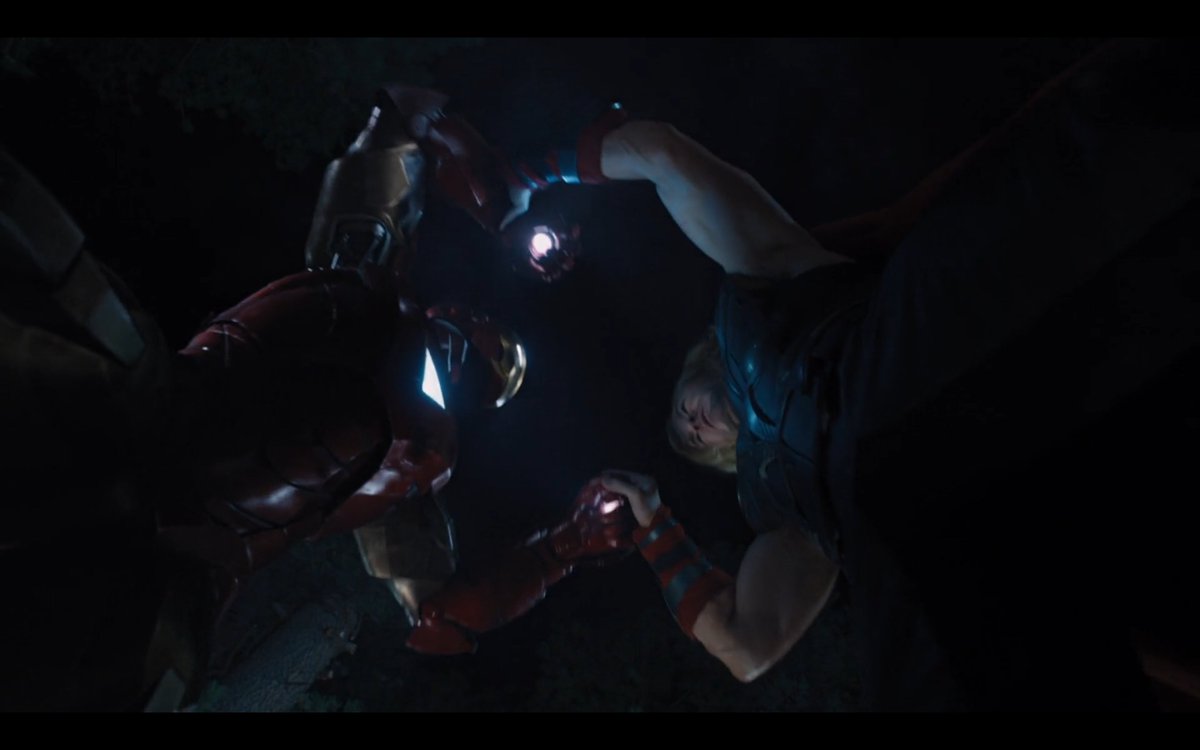
We're treated to a lot of macho posturing and dick measuring, especially between Iron Man and Captain America. The toxic behavior is lampshaded with a *wink* so audiences can keep enjoying it. Lampshading machismo is a staple Whedon writing trick that'll get worse in the sequel. 

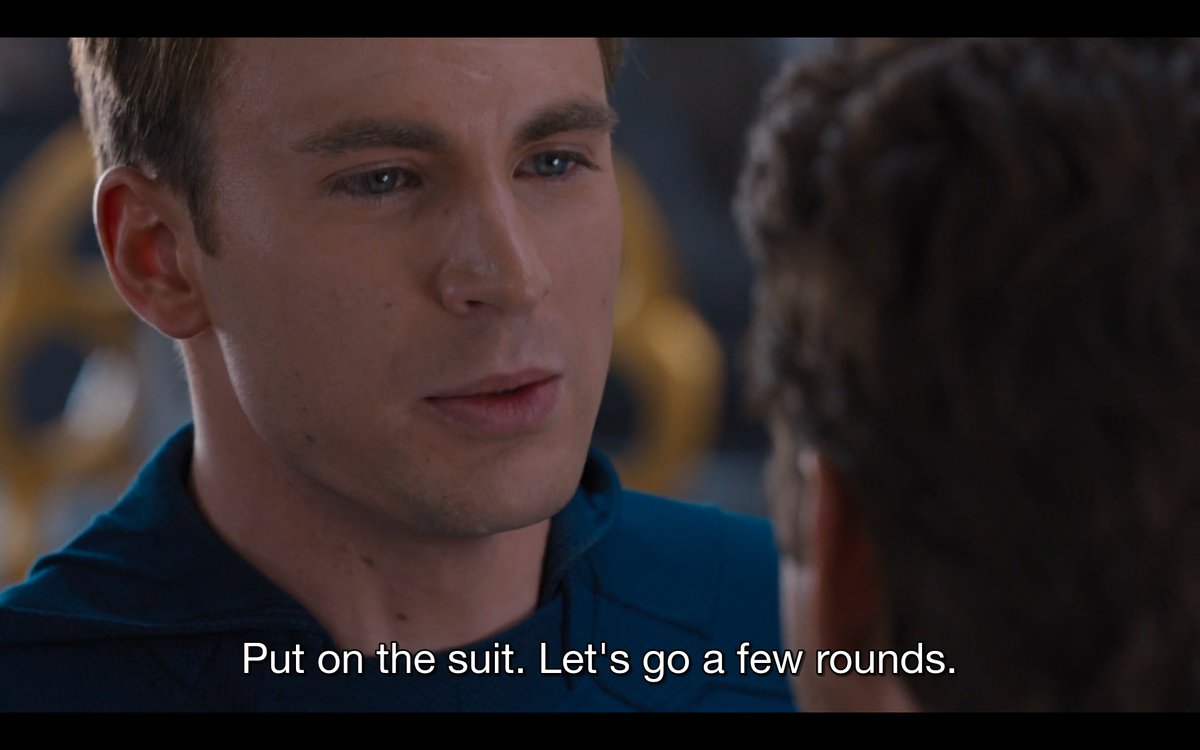

Once again we see interpersonal violence between men framed both as conflict resolution and also as the default form of male bonding. Physical fights are how these men learn to respect one another. And respect of strength is a prerequisite for friendship in the MCU. 
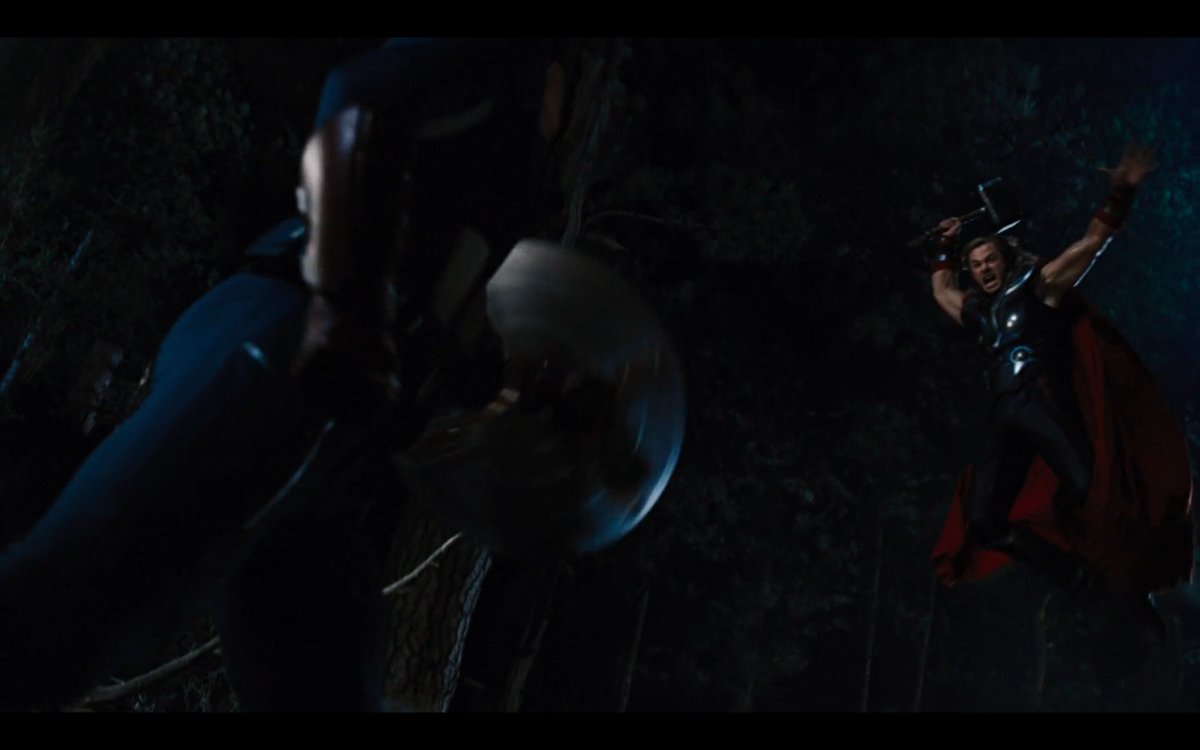
The Hulk goes on what’s meant to be a scary rampage but Thor gives a little smirk of approval while fighting him. Thor appreciates Hulk's raw display of physical power and enjoys going toe-to-toe with it. That smile mirrors how the audience is supposed to feel about this fight. 

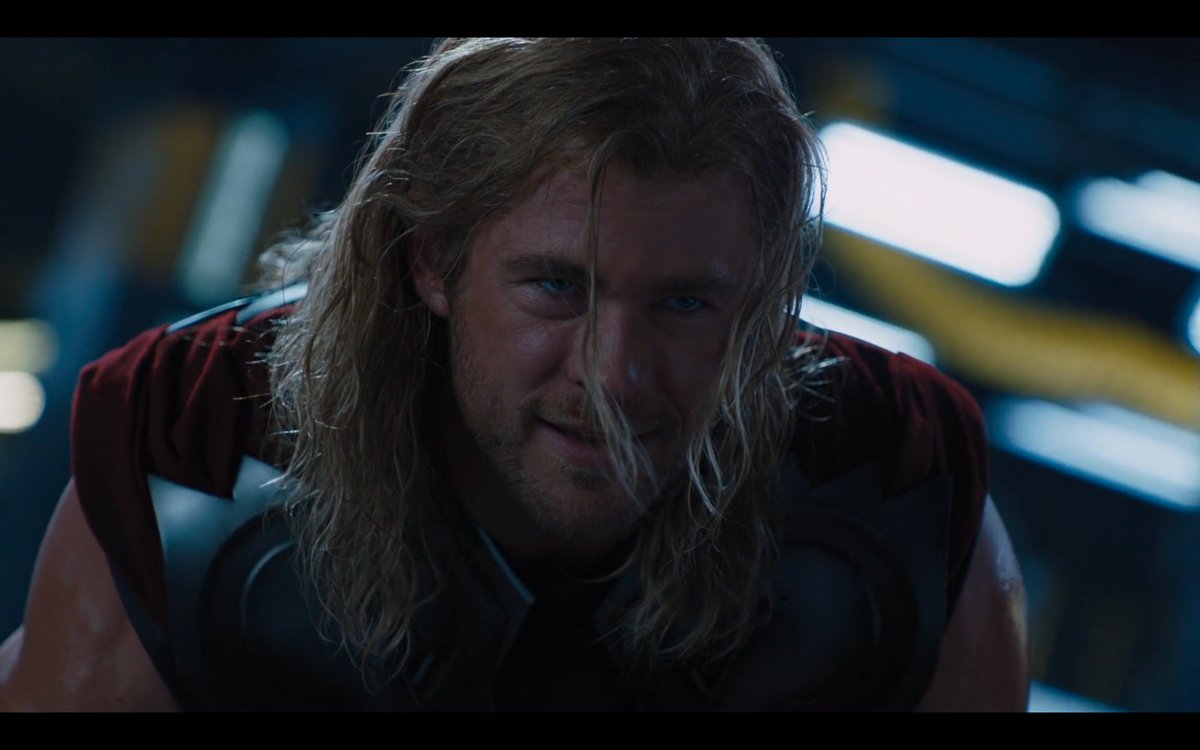
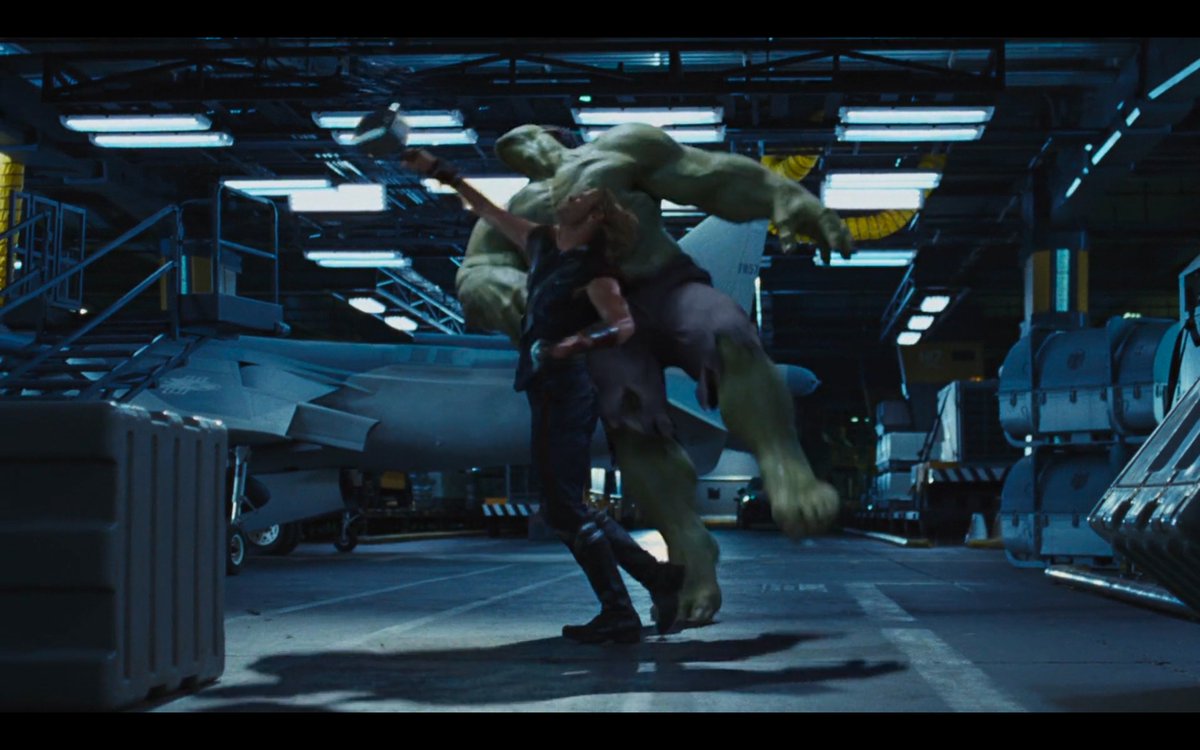
I’m reminded of RW Connell writing about the “hierarchy of masculinities” wherein men compete in a never ending quest for dominance. Thor, Tony, and Steve fight each other to a draw thus proving they are relative equals in raw power. This makes their tenuous allegiance possible. 

Comic book media has long been obsessed with the question of “who would win in a fight” between men meant to be allies or friends. It’s not a coincidence that displays of raw physical power and acts of domination over others are valued above all else in a patriarchal society.
There's also this weird homophobic moment with Tony where he jokes about hoping none of the guys kissed him while he was unconscious. Dude almost died and he’s worried Chris Evans may have saved his life with mouth-to-mouth resuscitation? Get outta here with that bullshit. 
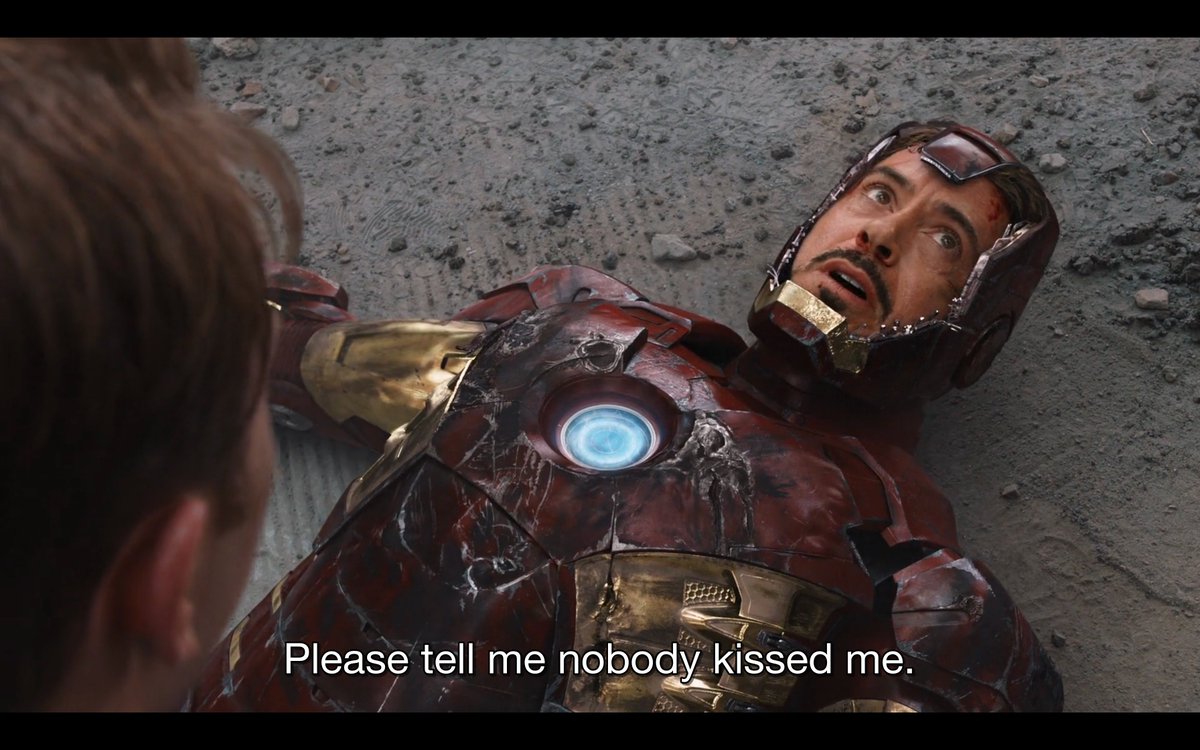
Speaking of Tony Stark, he acts like an arrogant asshole for practically the whole movie (again). He gets into a dick measuring contest with both Thor and Steve. He tries to goad Banner into hulking out for his own amusement, even though he knows it makes Banner feel suicidal. 
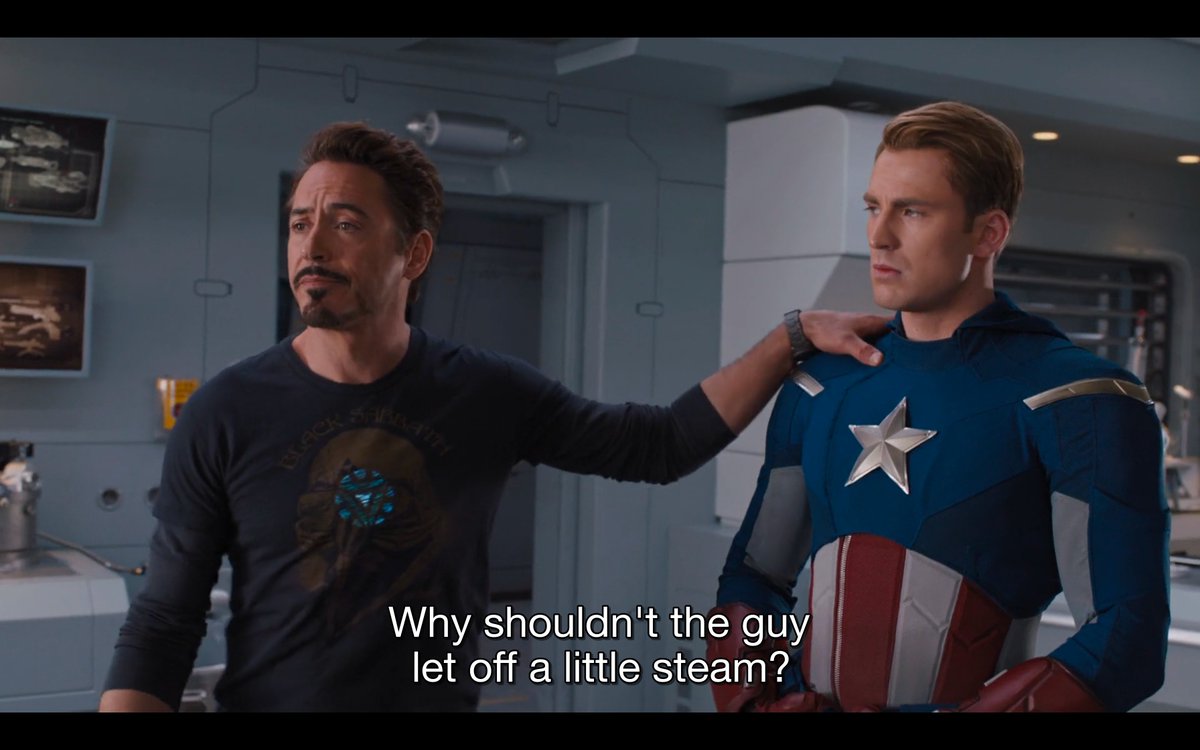
So how does Tony redeem himself for his awful behavior? The heroic sacrifice of course. Remember suicidal violence is the only way to prove you’re a true hero in the MCU (see above). Up until this point Tony was the only one of the four guys who hadn’t made “The sacrifice play.” 

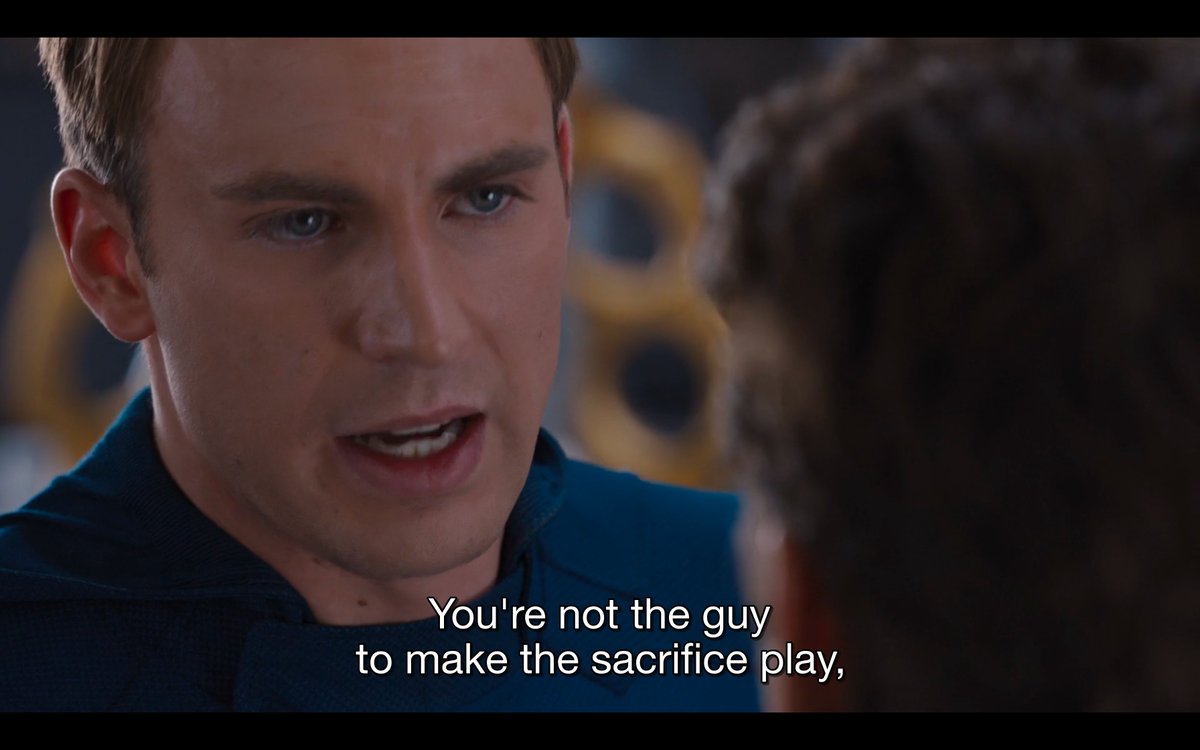
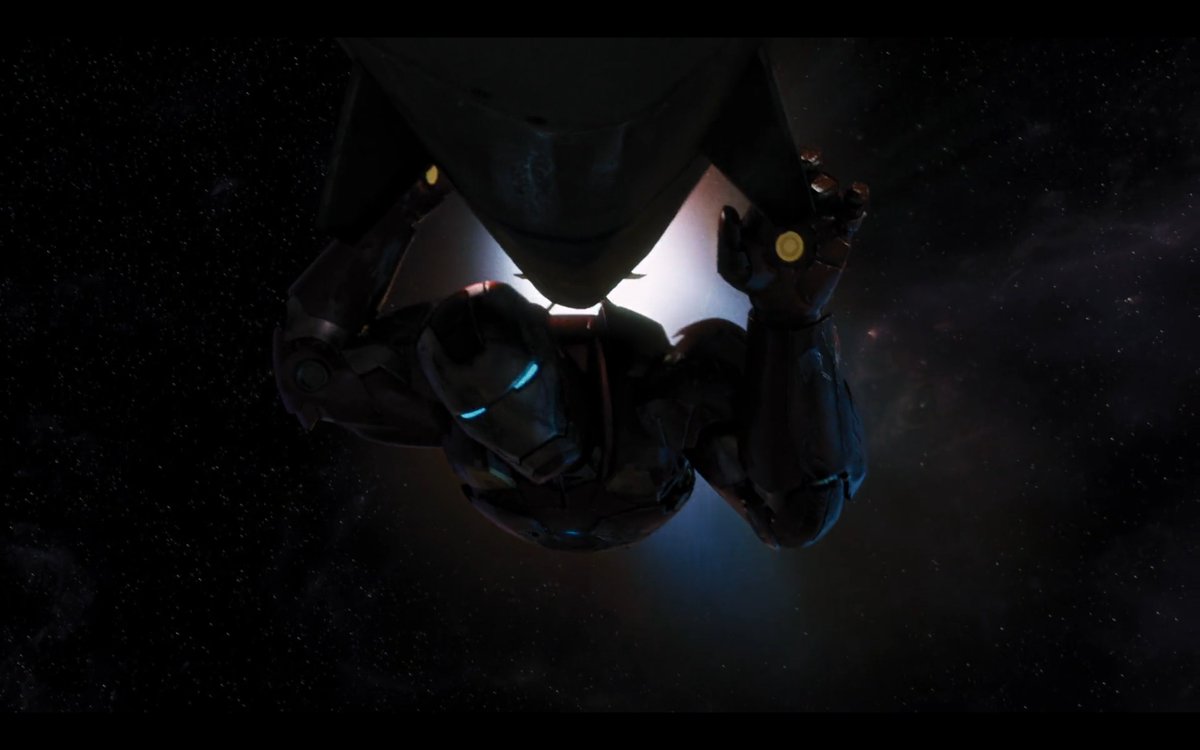
It’s uncomfortable to think about but The Avengers ends with Tony's Big Damn Hero Moment which is basically becoming a suicide bomb. Anyway, I told you I had a lot of notes on this movie. I have even more but I think it’s time to move on to Thor: The Dark World (2013)
I hope you're all finding these tweets insightful or at least interesting. Normally I don’t share my notes publicly. Also I’ve been taking a little break in between movies because making my notes presentable turns out to be a bit of work :P
Finally getting back to this thread. My MCU re-watch is going slowly because I've been writing and recording a new video essay about depictions of men crying in media. It should be published in mid March. Anyway, time for Thor 2.
Remember that whole lesson from the 1st Thor movie about how heroes shouldn't enjoy going to war? Well, never mind all that! We’re 100% supposed to enjoy the hell out of Thor beating the crap out of a bunch of "savages" under the pretext of "restoring order" to the 9 realms. 
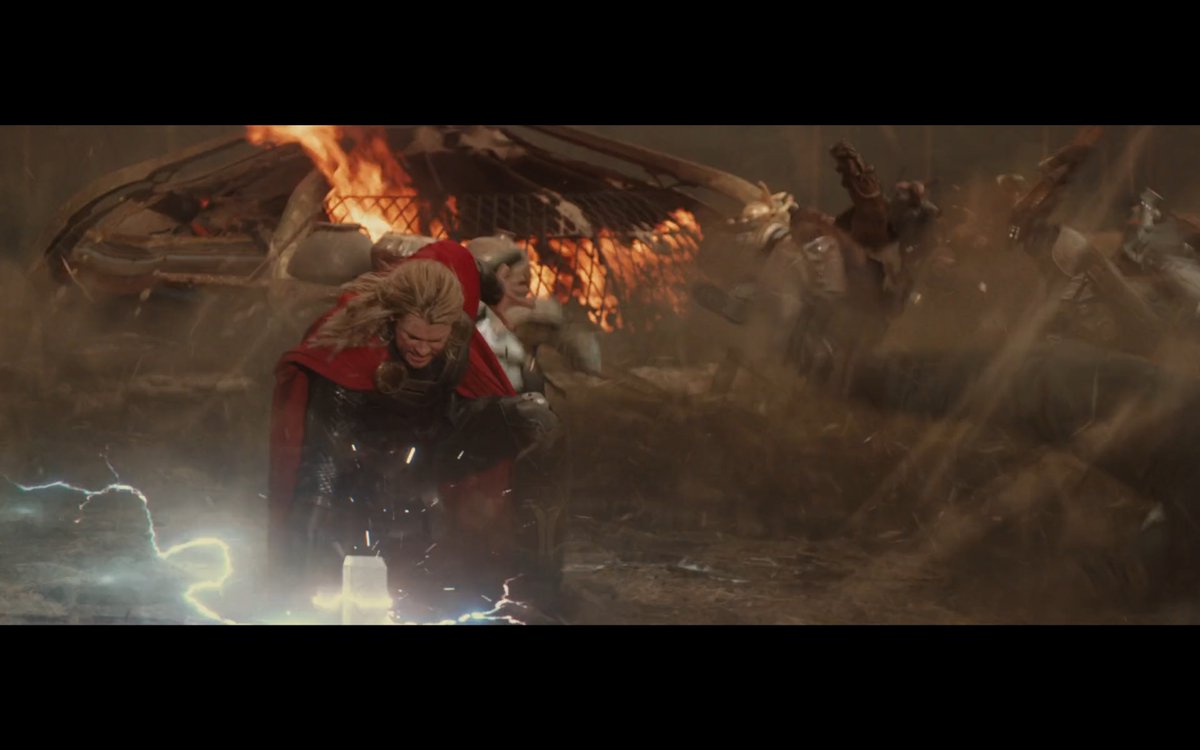
The enlightened futuristic Asgardians still solve conflicts with war, still have a monarchy, and still operate prisons? But we're not supposed to think of their (mostly white) culture as backwards or authoritarian. It’s the damn dark ages, just covered in tech-infused gold leaf. 


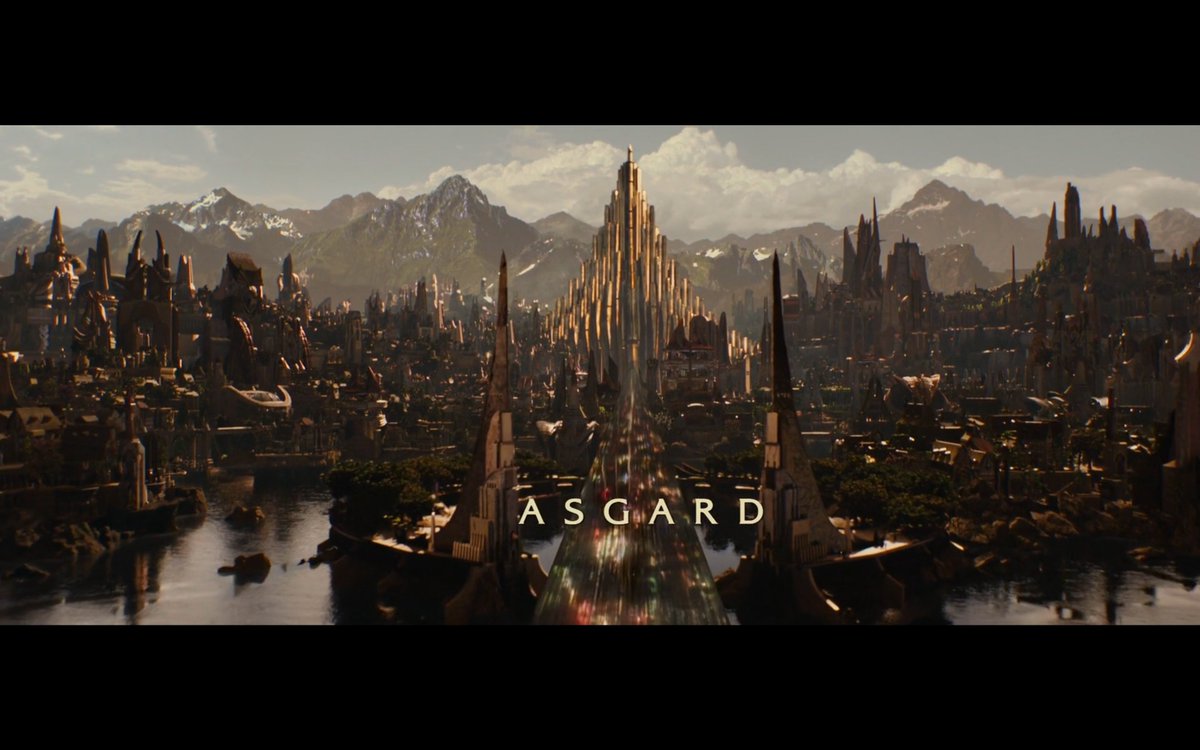

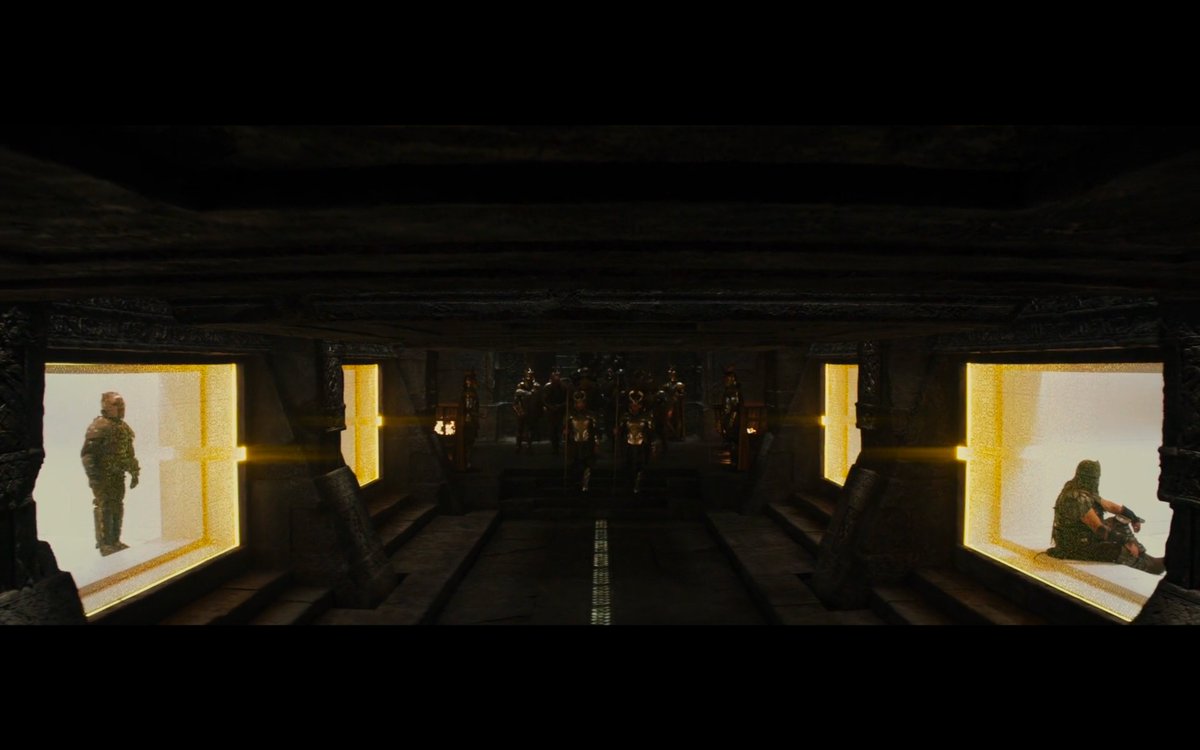
THOR: “We need the king to appear strong and unchallenged.” Authoritarian ideology at its finest. I loathe fantasy stories that lionize monarchy. It's fundamentally anti-democratic and a particular pet peeve of mine. 
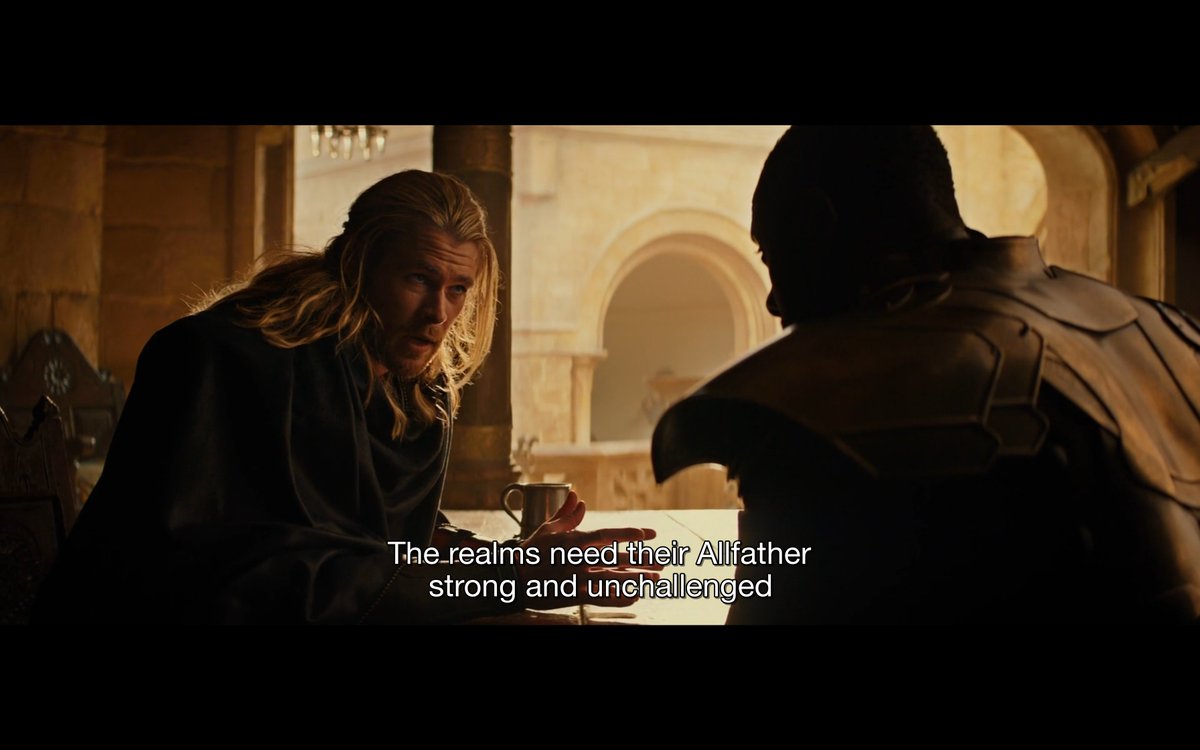
I’ve pointed out before how the MCU worships raw physical power above all else (especially in men) but Dark World turns it up to 11. When Thor reduces a huge warrior to a pile of rubble, the rest of the rabble instantly give up and literally bow down before him. 



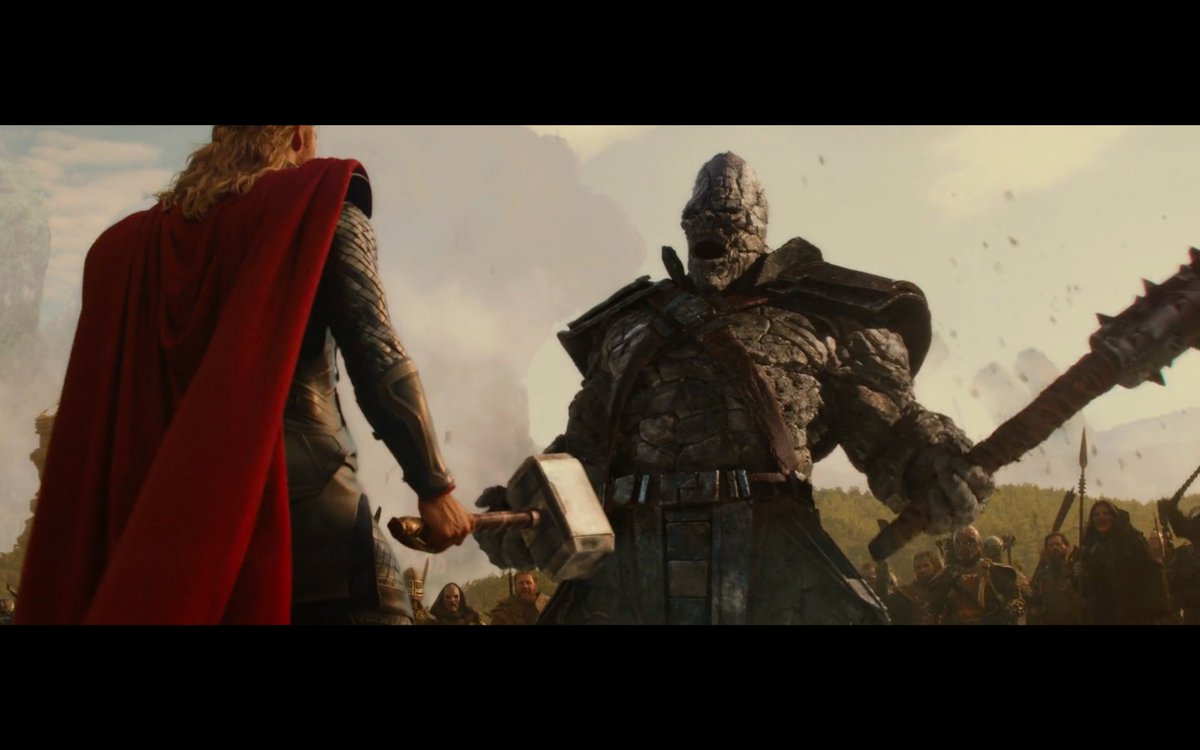

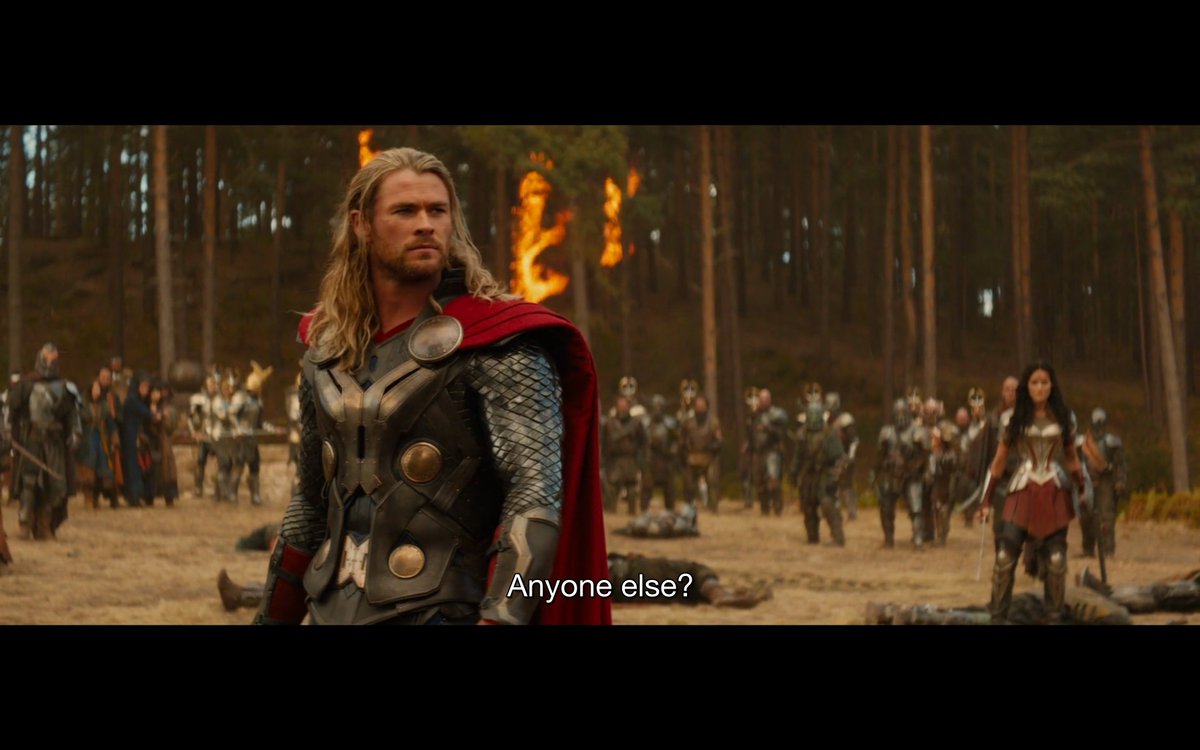
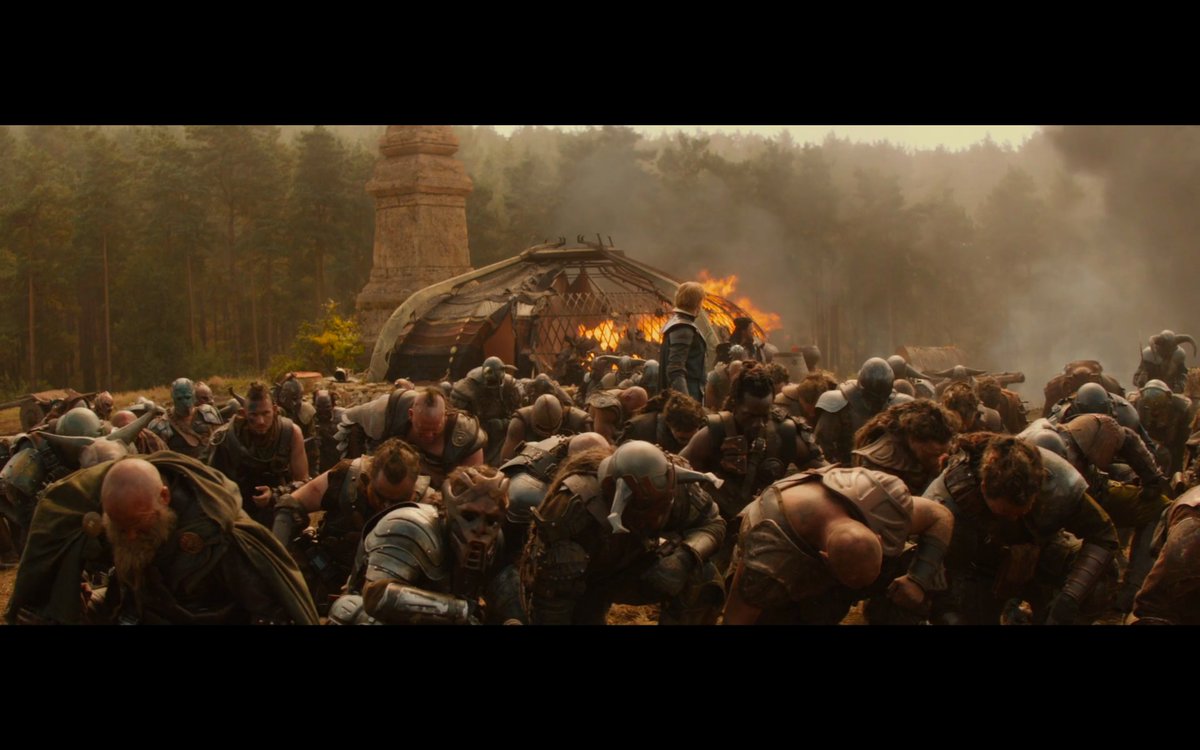
So Thor and friends spend the first part of Dark World waging war, which is framed as unambiguously good. Later Odin wants to wage war on the Elves who invaded Asgard but now suddenly war is bad. Are the writers unaware of this contradiction? I don’t know but…
It’s another example of the MCU’s "Great Men" theory. Thor’s war has only himself + an elite strike team putting their lives on the line. That's good. Odin’s war would have normal citizens risking their lives. That's bad. Only elites have the right and obligation to do violence.
Revenge acts as a replacement for men's grief in too many movies. Vulnerable feelings are transmuted into rage and violence. Thor and Loki don't bond over shared grief after their mother's death, they bond over a shared desire for vengeance. Obviously this is extremely unhealthy. 




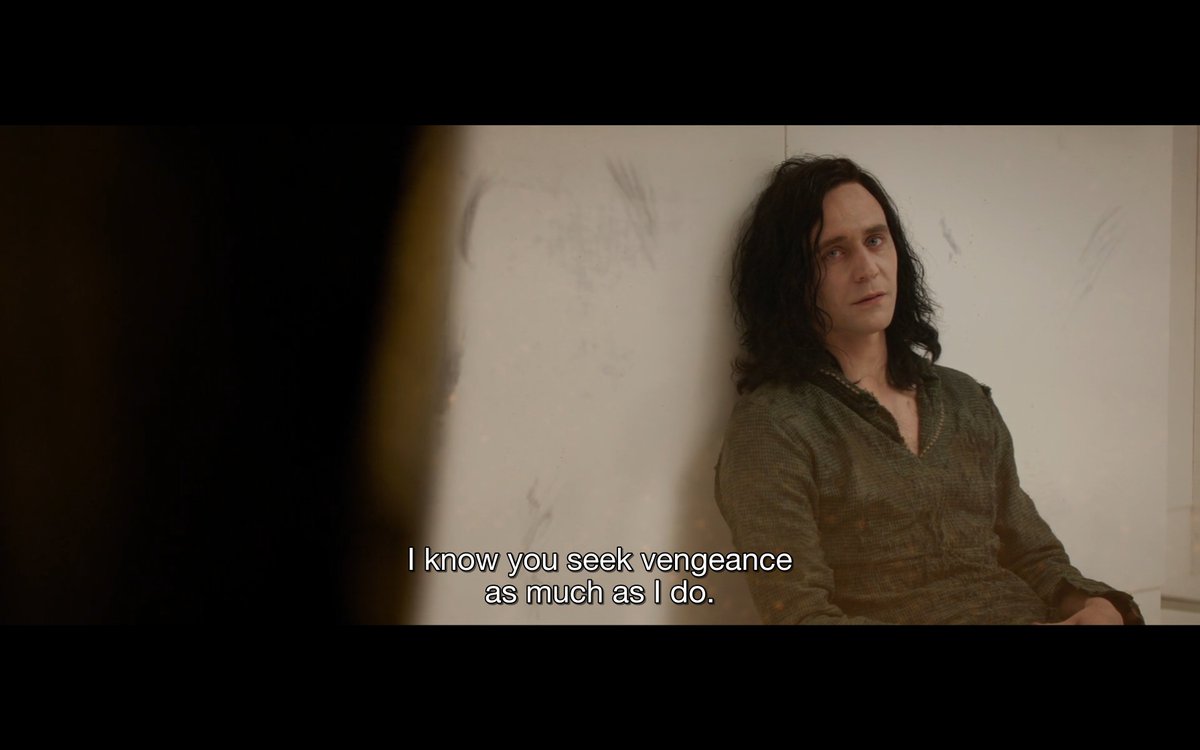
When Loki appears to die, Thor's eyes get damp. There might be a tear? I even zoomed in on the still and it's hard to say. I’m watching in 1080p, maybe it’s clearer in 4k? We shouldn't have to do forensic analysis to see if a man is crying or not. His anger is crystal clear tho. 

There’s a running joke where Darcy treats her dorky “intern” with disdain throughout the movie, but when (due to magic nonsense) he saves her life by throwing a car - she’s suddenly attracted to him. Again, hypermasculine displays of raw strength are valued above all in the MCU. 


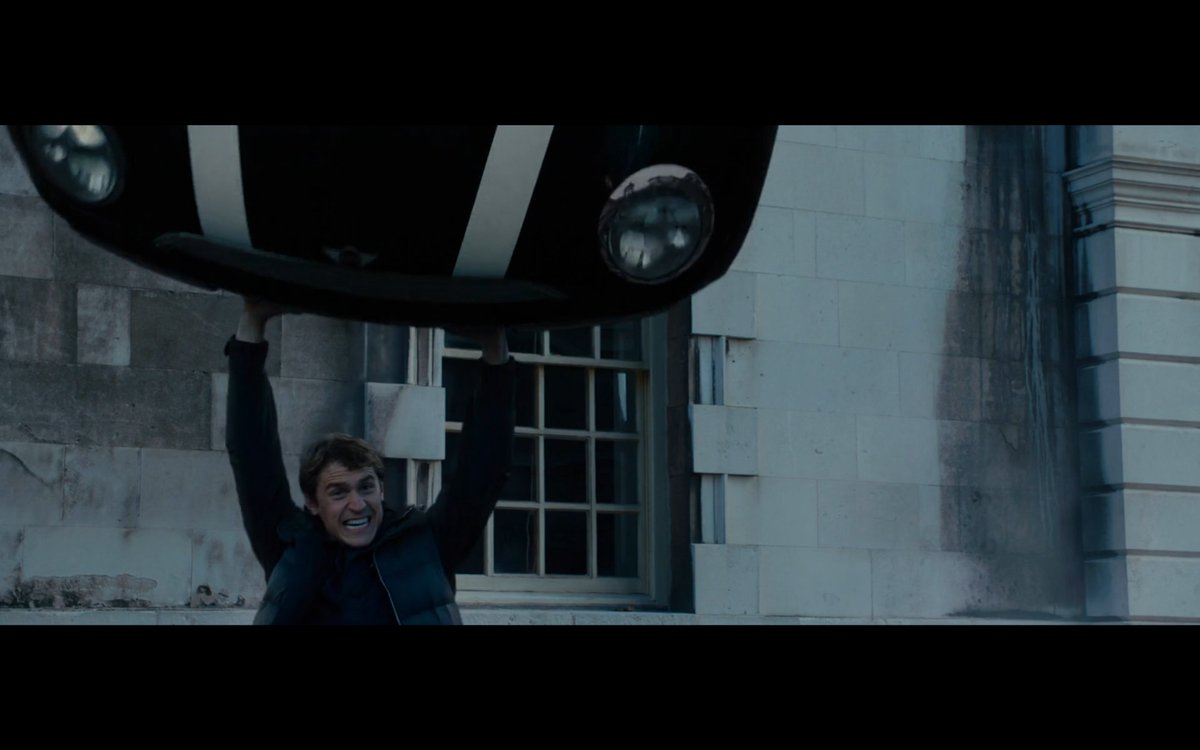
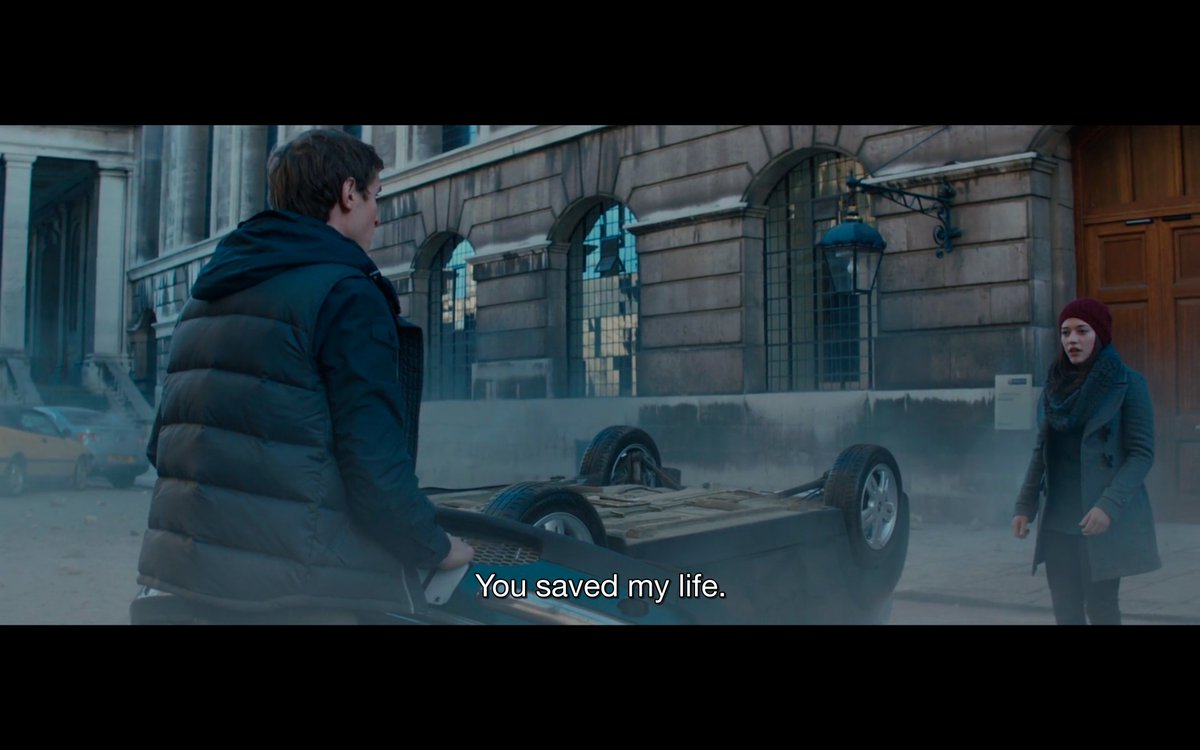

Last small thing. Thor is depicted as being irresistibly hot, which is mostly fine. But twice women intentionally touch his chest without permission. Thor always holds power and both moments are brief and meant to be funny. Still, non-consensual touching shouldn't be a joke. 


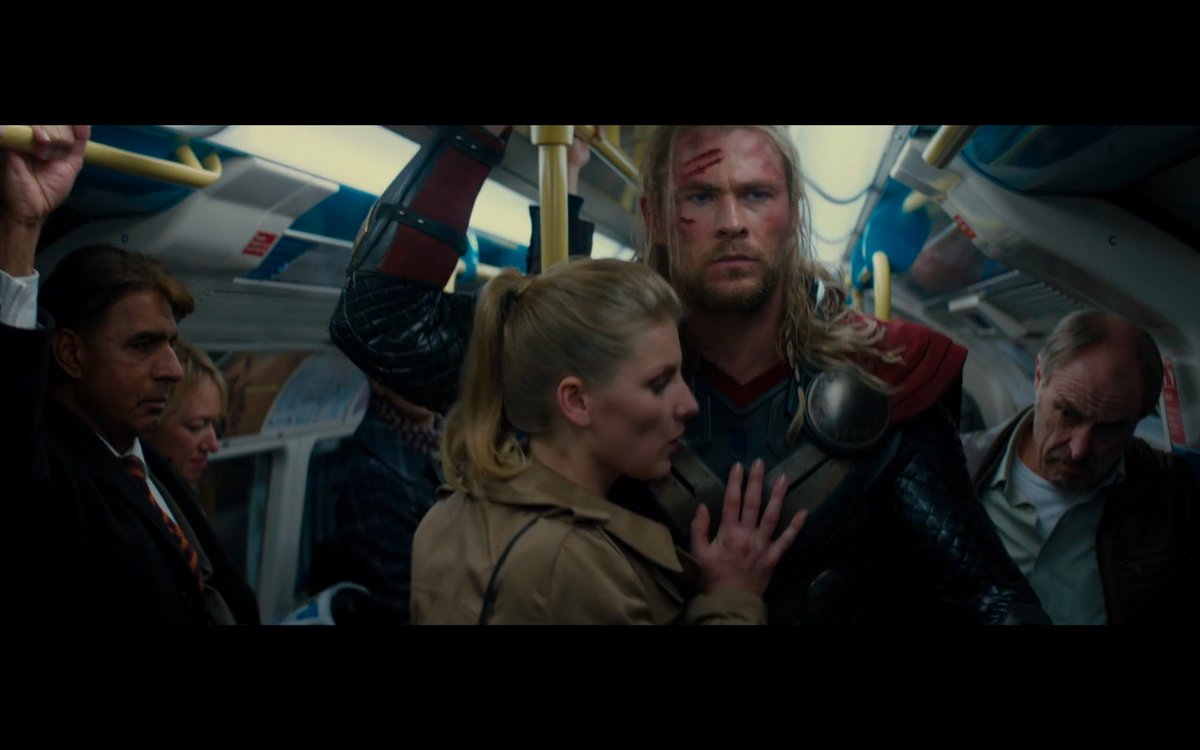
Next up will be Iron Man 3. I'll try to add my notes about it sooner this time. Stay Tuned.
I‘ve been putting off tweeting out my notes on Iron Man 3 because the movie is a minefield of interesting ideas that are executed so poorly it'd have been better if the writers hadn’t tried at all (especially in relation to PTSD and issues of physical ability.)
Let’s check on Tony’s character progression. Still recklessly putting himself and others in danger? Yep. Not listening to anyone but himself? Yep. Still being kinda of a dick to Pepper? Yep. This is the 4th film starring Iron Man and he has yet to learn very much.
Happy is written to be a "normal working class guy." The way the writers communicate this fact to us is by making him a little bit sexist and a little bit homophobic. I’m so very tired of casual bigotry being used as THE marker of “working class” in media. 

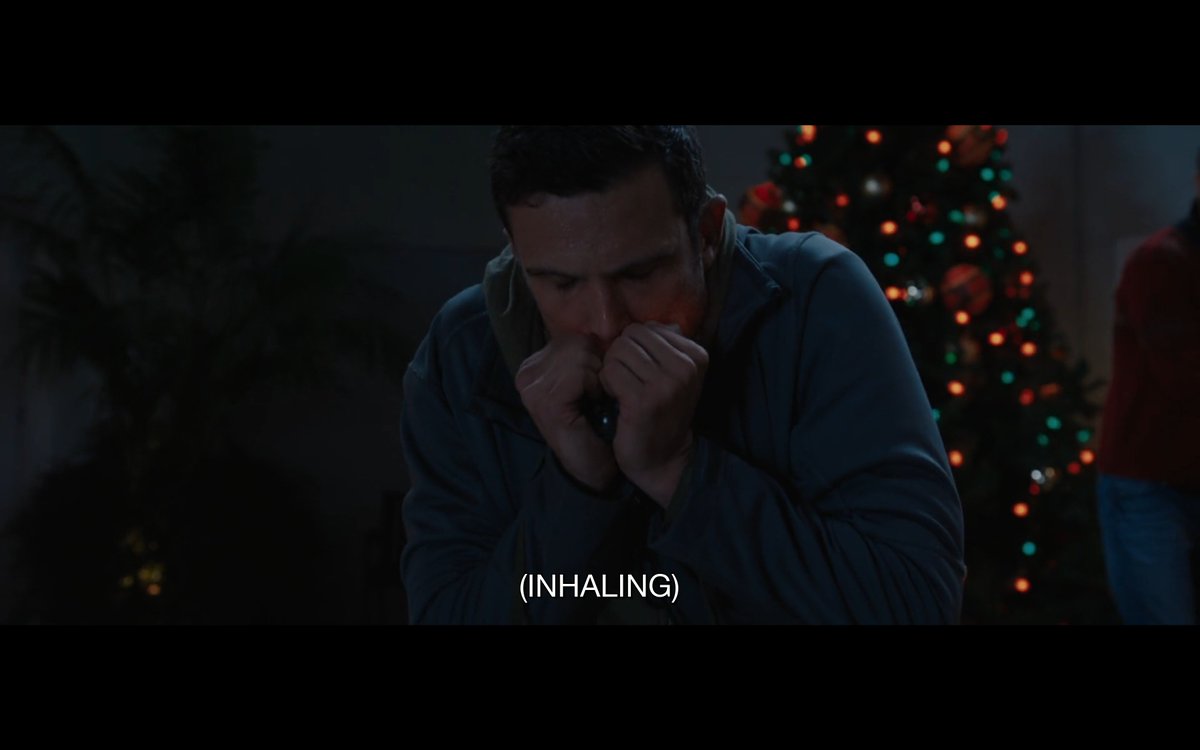

Hollywood writers constantly use casual sexism and homophobia as the preferred way to indicate a guy is working class. I'm not a psychologist but considering the absurd number of bigoted assholes working within the Hollywood elite, it seems like a bit of distancing or projection.
I grew up working class and sure there’s some sexism and bigotry but no more than you find among the rich and powerful. Difference is the rich and powerful can turn their bigotry into policy and institutional discrimination. Anyway, I hate the way Happy’s character is written.
Throughout the Iron Man films Happy acts as an enabler for Tony's sexism and womanizing. He's the bro who goes along with it. This means, among other things, that women are the only ones who ever question Tony's behavior. We need depictions of men holding other men to account. 
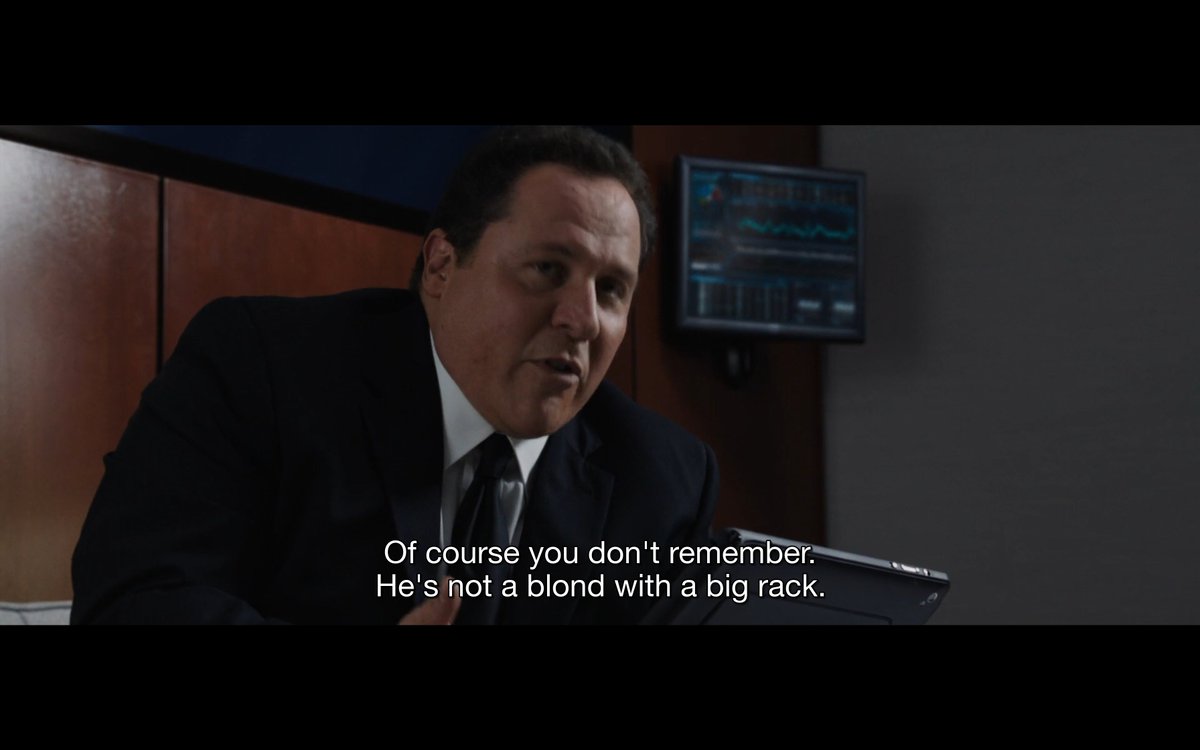
Last note on Happy. Another way he’s marked as a normal working class guy is he’s quick to brawl. He tries to use fisticuffs to prove his worth and his manhood. But since he’s not one of the MCU's “great men” like Tony, Happy is comically bad at fighting most of the time. 
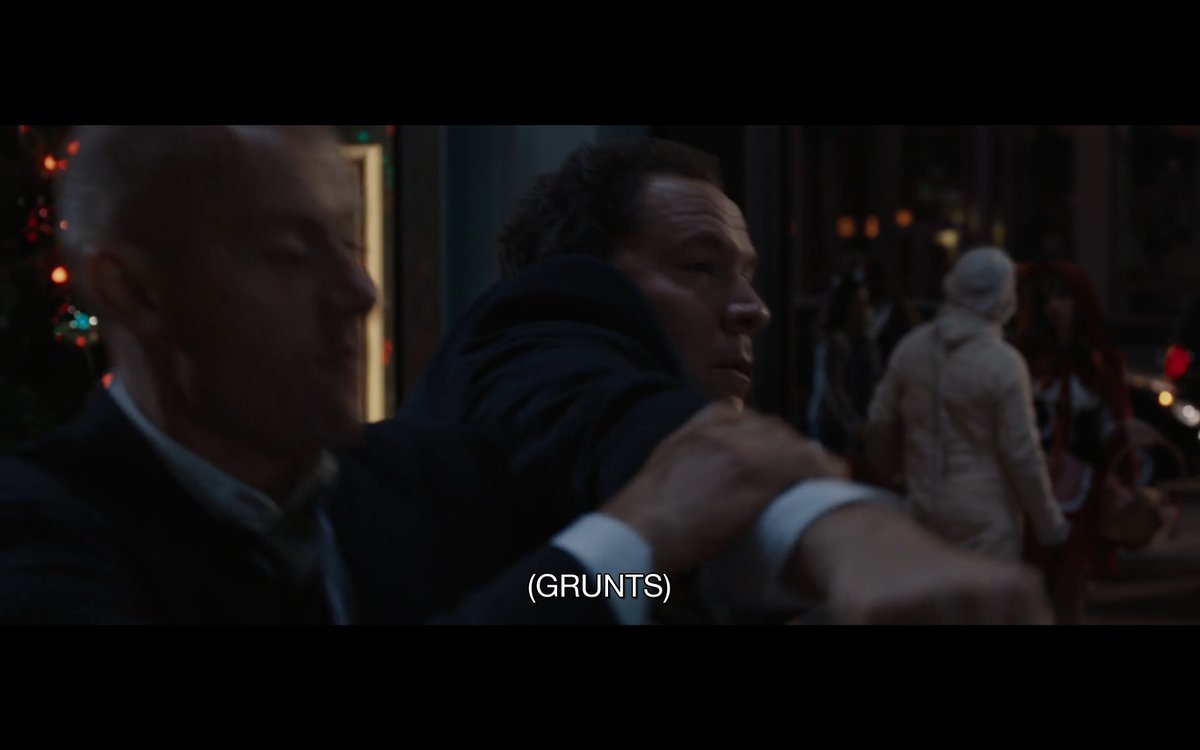
Marvel’s decision to cast Ben Kingsley as a character pretending to be The Mandarin (rather than The Mandarin himself) attempts to sidestep accusations of orientalism attached to that supervillain (for now). Still there are issues... 
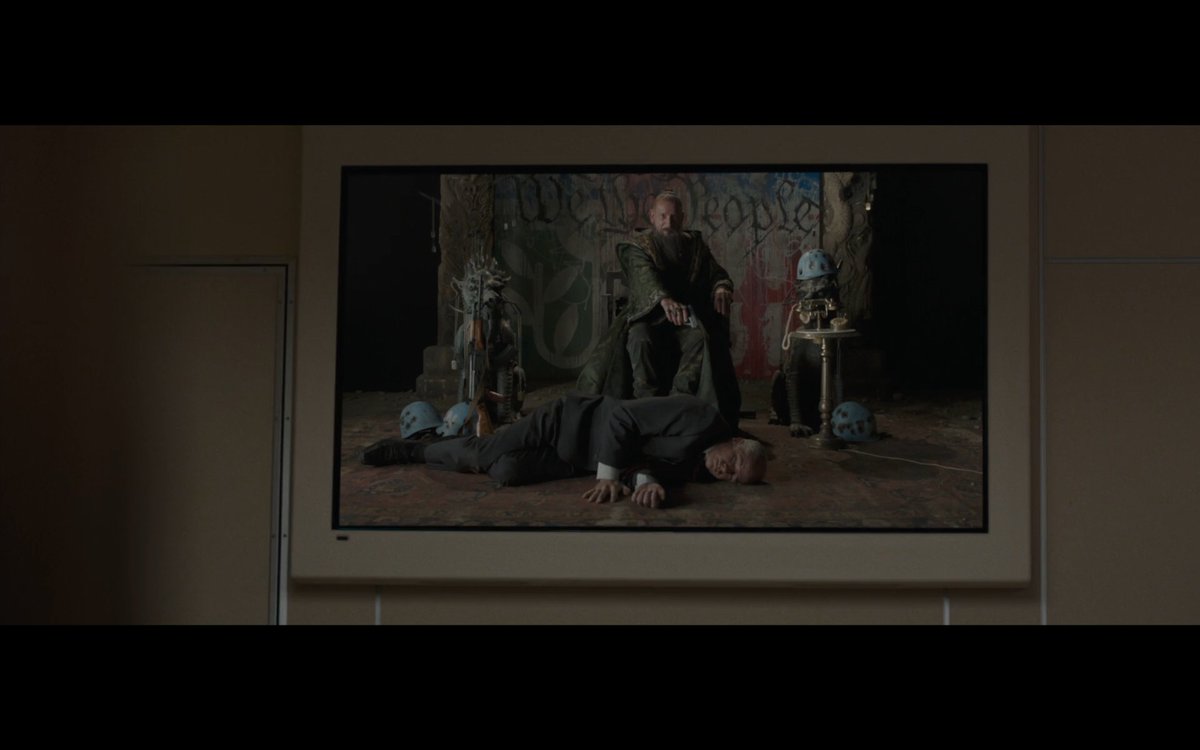
As will become a pattern in the MCU, the villain’s stated goals reference real-life injustices or social issues. In this case it's atrocities committed by the US government and US corporations. This is the MCU’s first "pseudo-social justice villain" but it won’t be its last. 

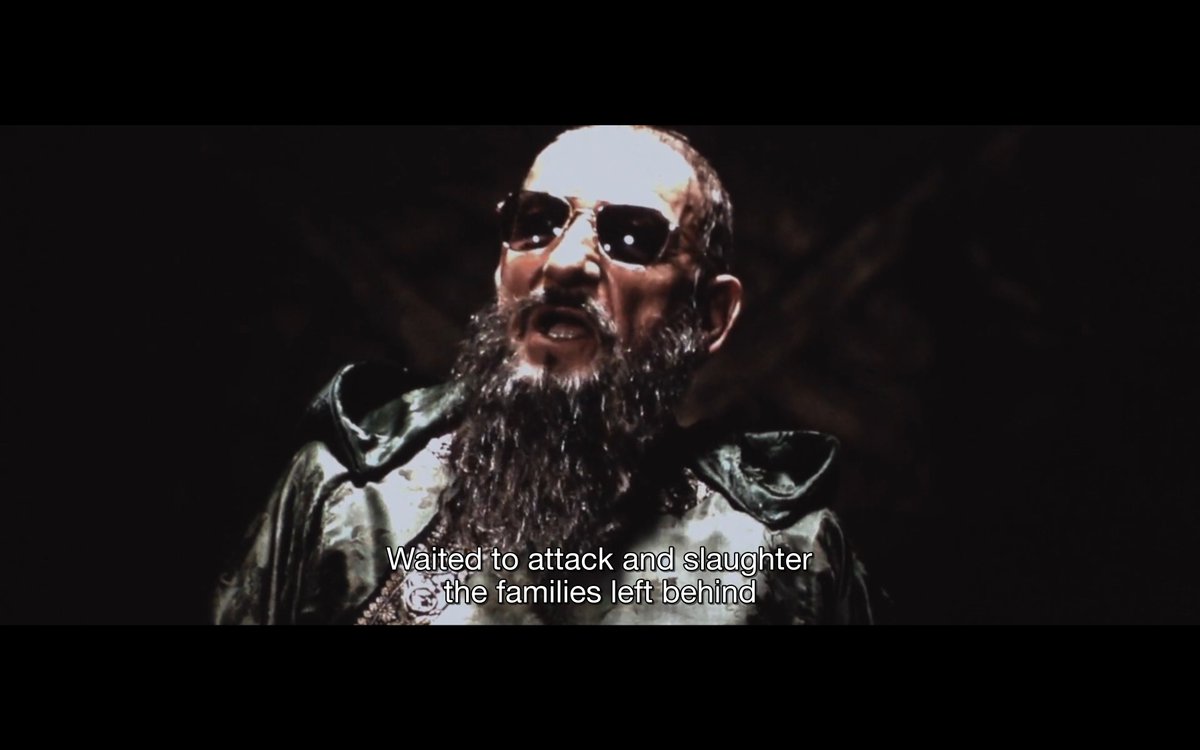
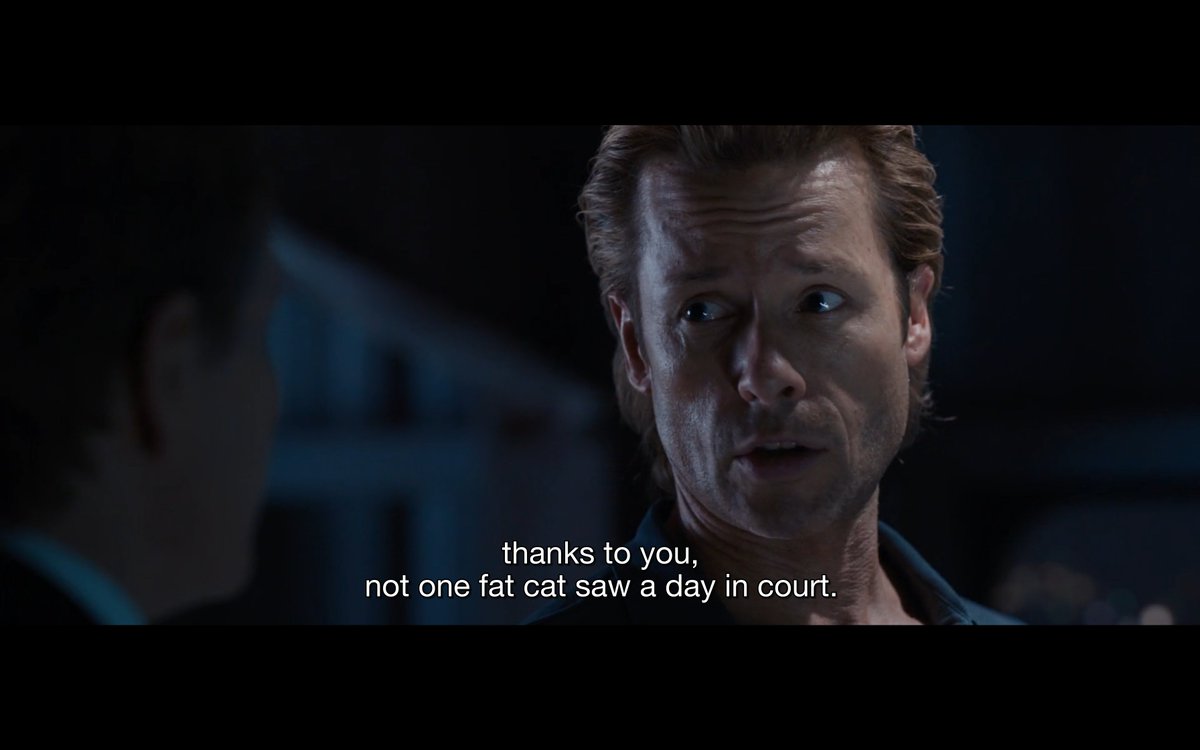
The Fake Mandarin references the 1864 Sand Creek Massacre which is a real massacre of Cheyenne and Arapaho people by the US Army. It’s a horrific historical atrocity but of course the Iron Man 3 writers don't care about that event, it’s just used as pretext and misdirection. 
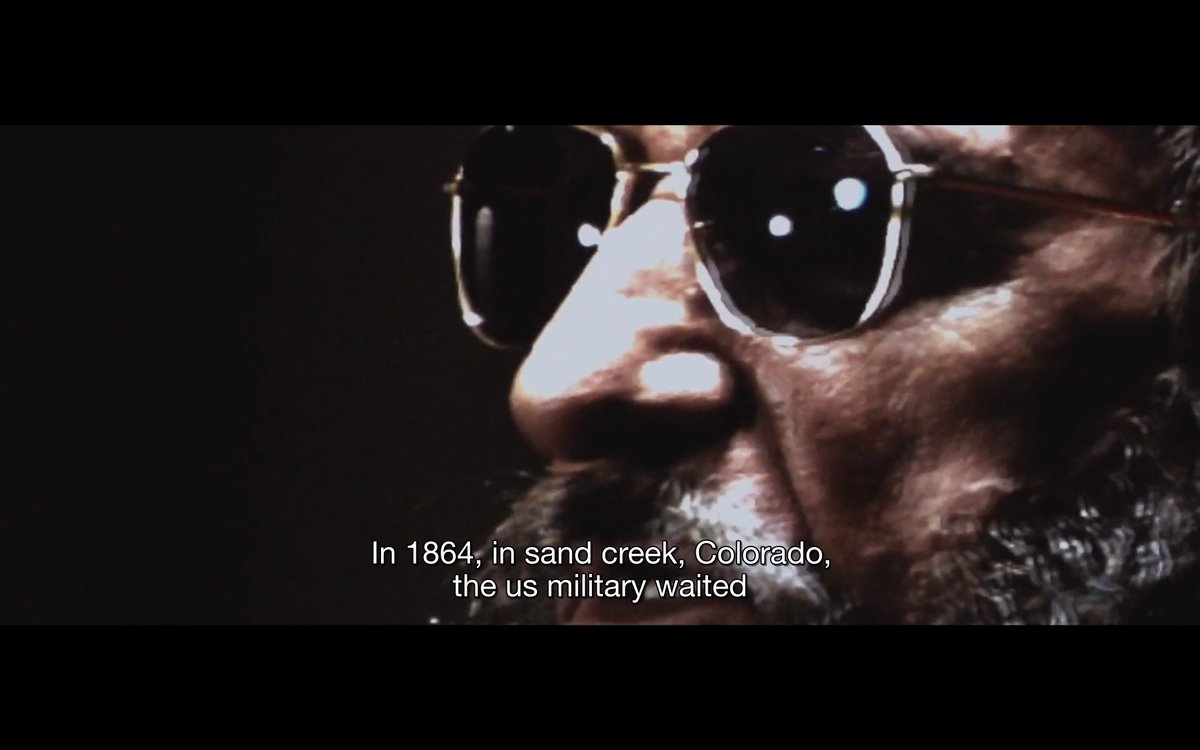
So in Iron Man 3 we have a real critique of US foreign policy based in history but it’s voiced by the villain and it's ultimately just a manipulative trick used as a pretext for terrorism (which is in turn just misdirection for some guy’s elaborate personal quest for power.) 
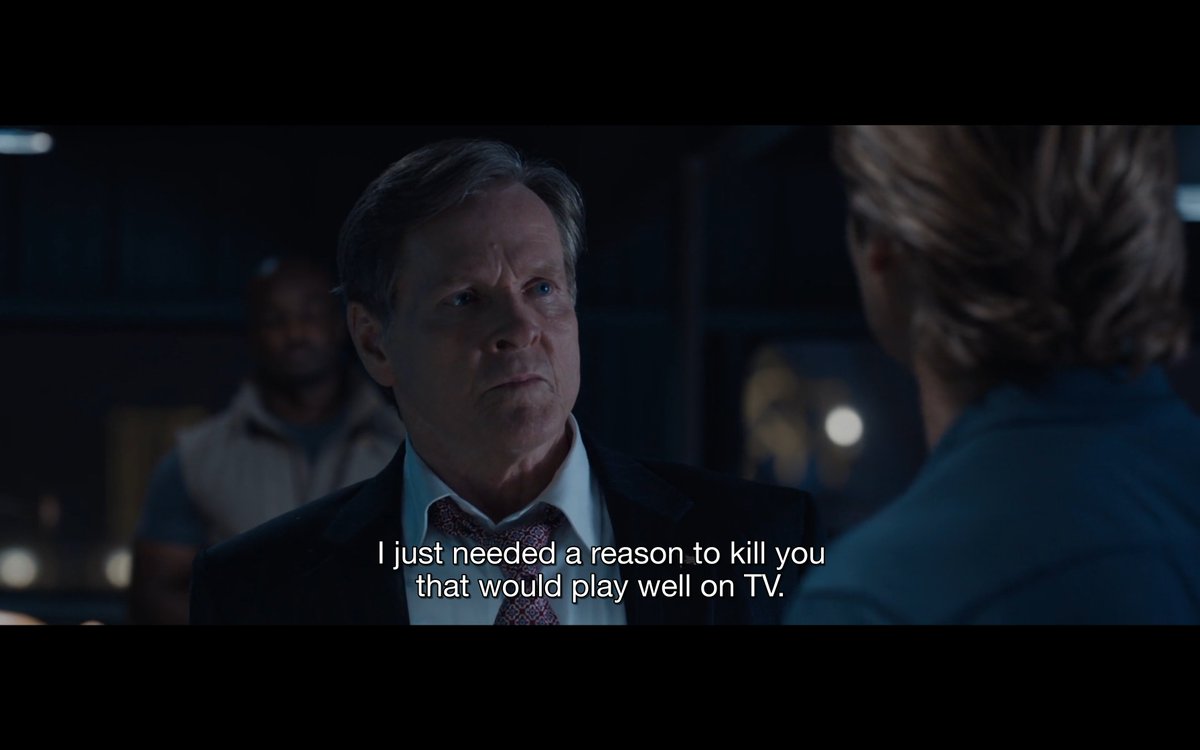
The atrocities mentioned (both real and fictional) are never addressed. The US human rights abuses are ignored. The oil company isn’t held accountable. The US president who protected oil executives isn’t held accountable. In short our heroes successfully protect the status quo. 

MCU villains are often transformative. Their stated goals identify systemic issues, which they try to do something about (of course that something is always mass murder). The heroes stop them and in so doing protect institutional power structures and preserve the status quo.
MCU superheroes are reactive. They don’t use their powers to enact systemic social change. They use their powers to prevent others from enacting destructive change. In this way systemic social transformation in the MCU is nearly always framed as something villainous.
There's a weird offhand common from Trevor Slattery that reads as homophobic. This is the second homophobic quip in the Iron Man 3 movie. The "joke" seems to be that due to his drug addiction he had to resort to prostitution on the street. 
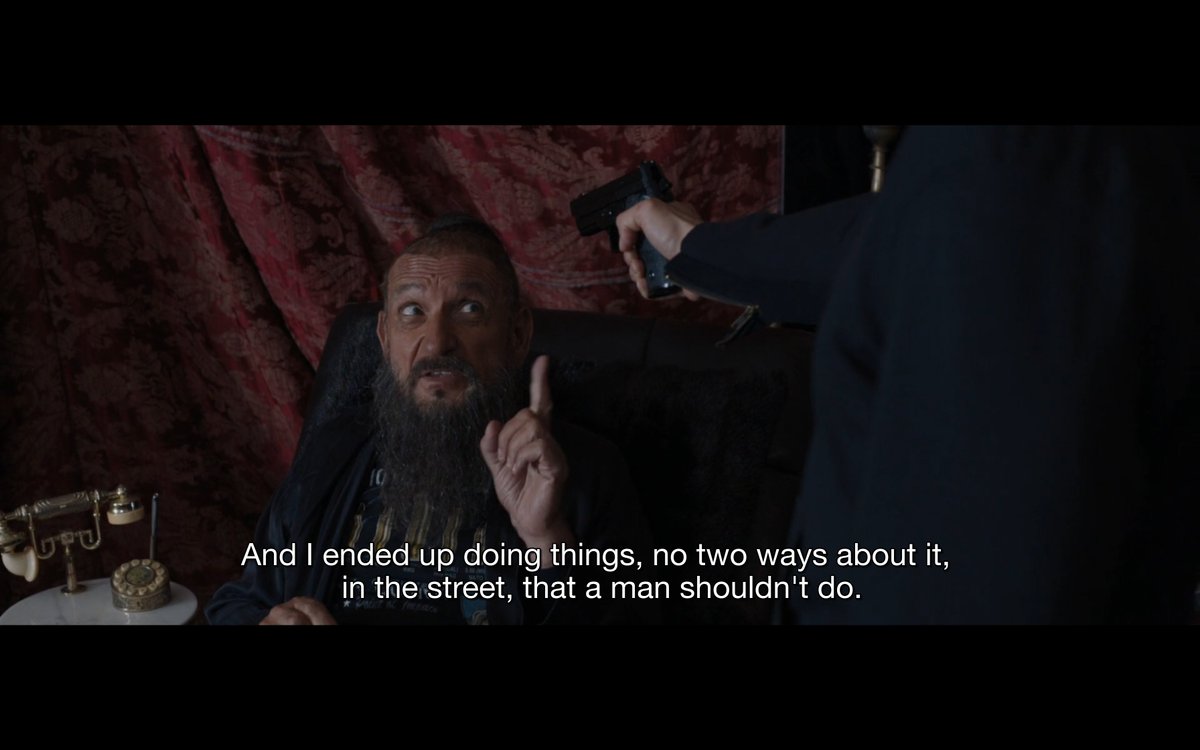
The MCU One-Shot "All Hail The King" doubles down on casual homophobia when Trevor quips about gay sex in prison, adding an exaggerated wink. This is meant to be funny because it implies he secretly likes it? Not a great look for a franchise with no LGBT characters to this point. 
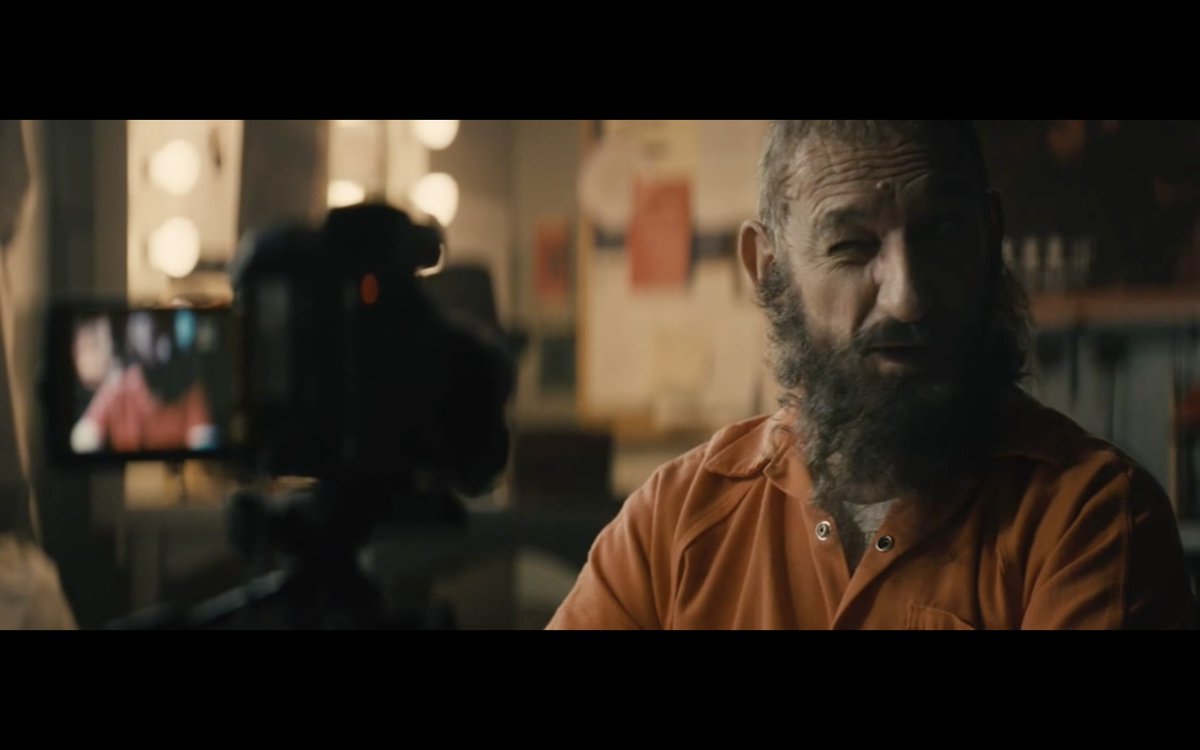
Iron Man 3 starts with an intriguing premise: What if a superhero struggled with PTSD and associated symptoms like anxiety or panic attacks? There's a lot of potential in that setup, unfortunately the movie fails spectacularly in how it represents PTSD (and other ability issues). 
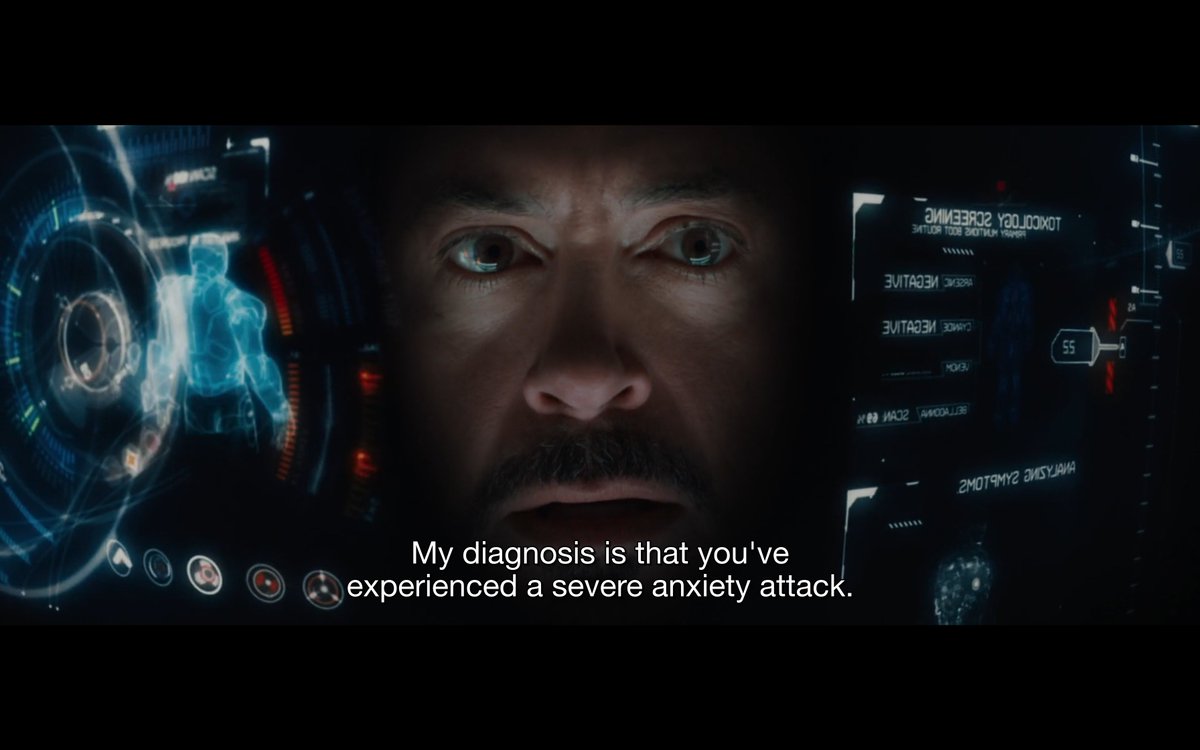
On the one hand, it's refreshing to see a male action hero displaying vulnerability both physical and emotional. On the other hand, the way Tony deals with, and ultimately overcomes, his anxiety is through even more unhealthy and self-destructive behaviors. 
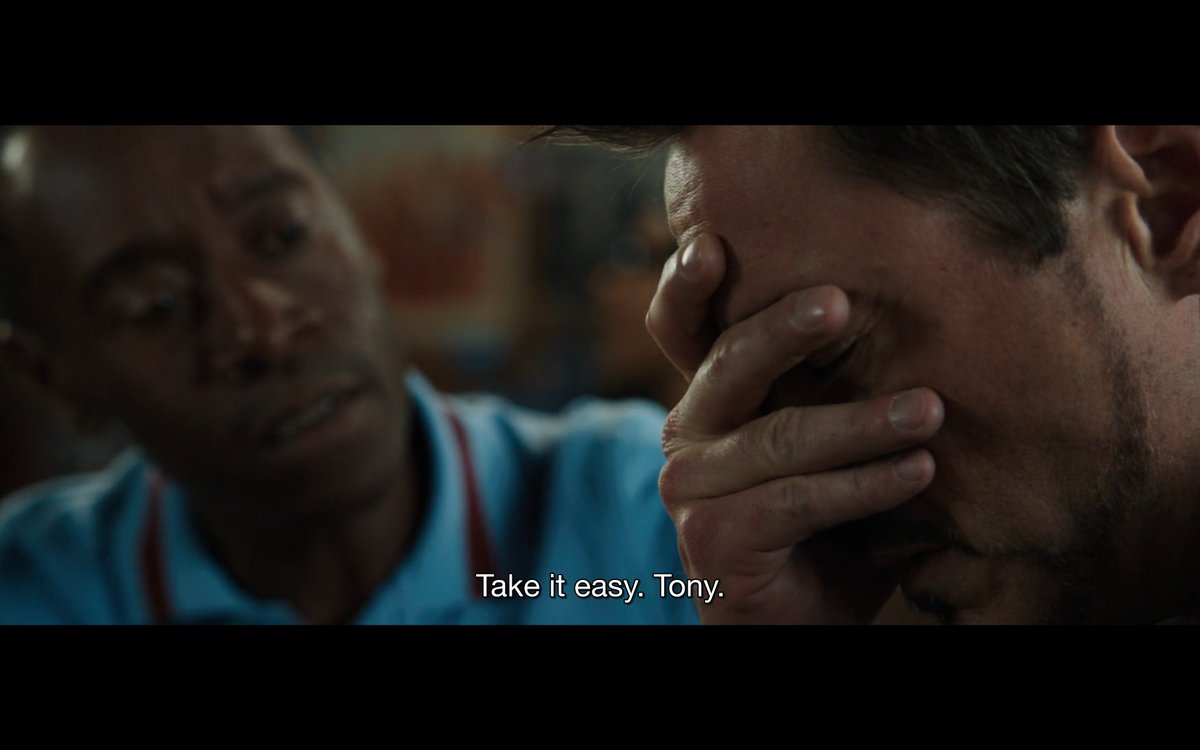
Jarvis and Rhodes both try to help Tony but he ignores them. He finally tells Pepper he's not doing well but then decides he must go off and "fix" the problem on his own. Tony admits to the kid he should probably be on medication but he doesn't actually seek out help from anyone. 
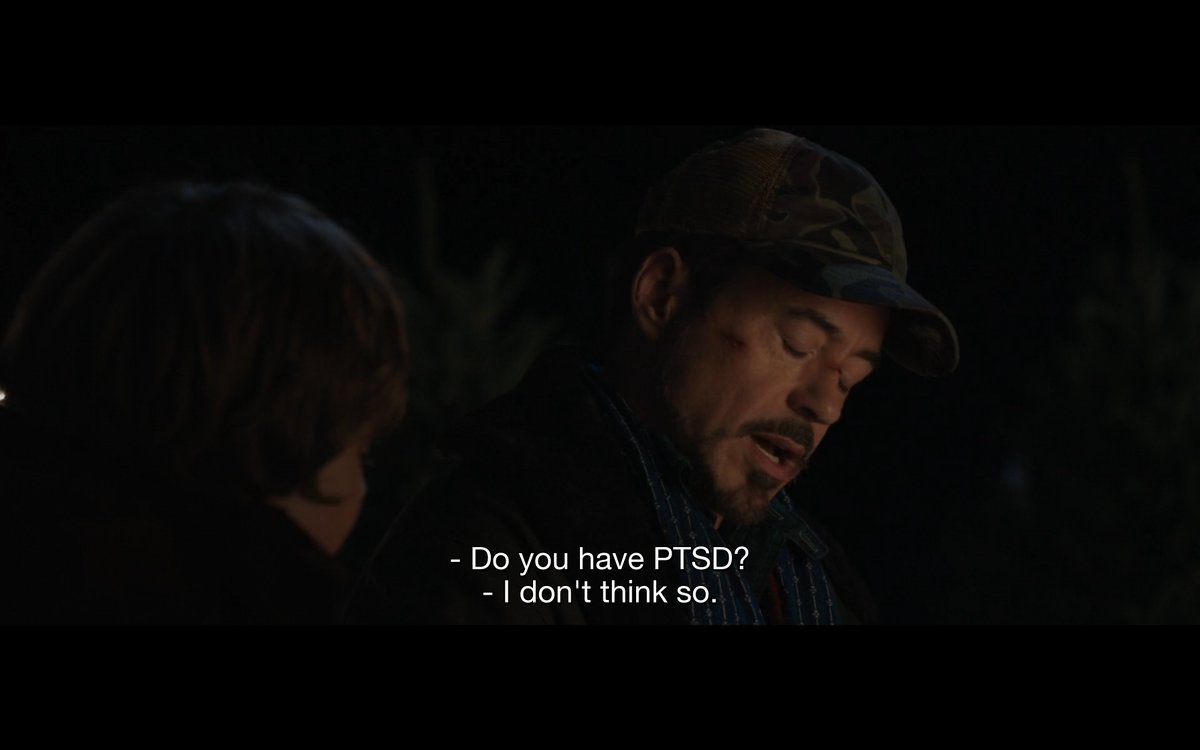
So how is Tony able to "cure" his severe PTSD and anxiety attacks in this movie? Through therapy? Nope. Through medication? Nope. With the support of friends and family. Nope. All of the above? Definitely not. 
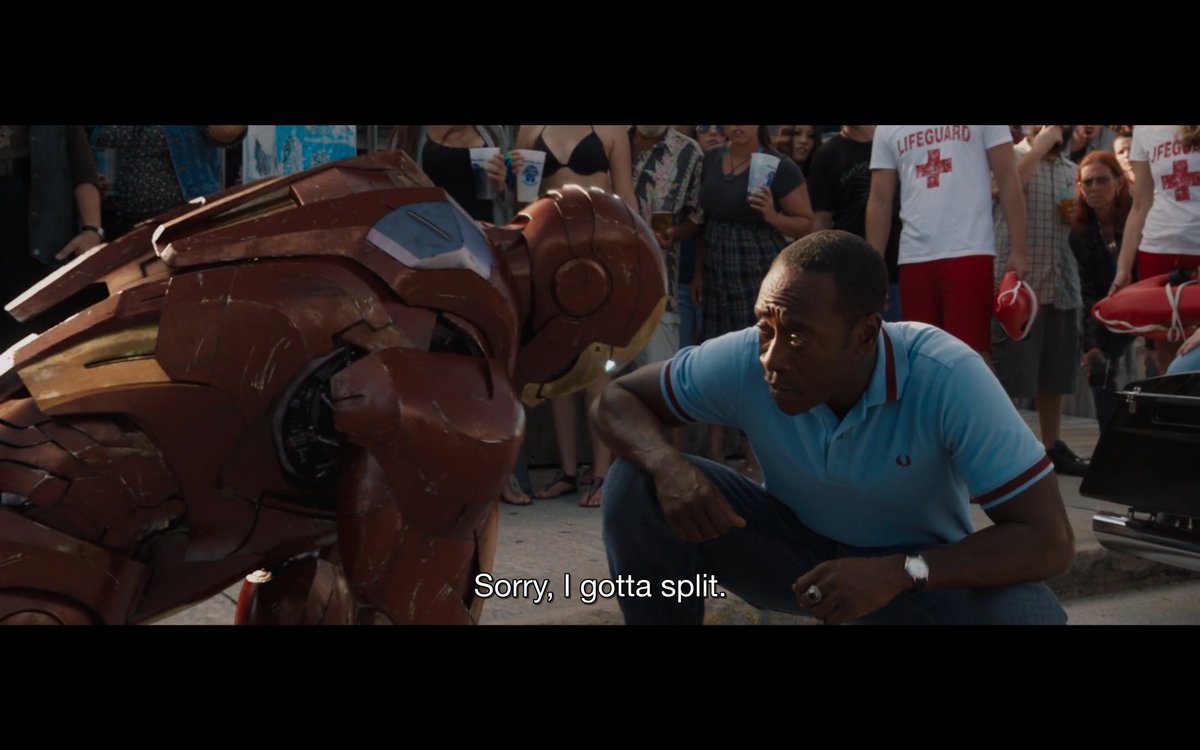
After the kid reminds Tony he's a mechanic, Iron Man 3 tells us that Tony "cures" himself of PTSD and severe anxiety attacks by (drumroll please) building a DIY combat suit from stuff at Home Depot and then using it to single handedly storm the bad guy's compound! All better! 



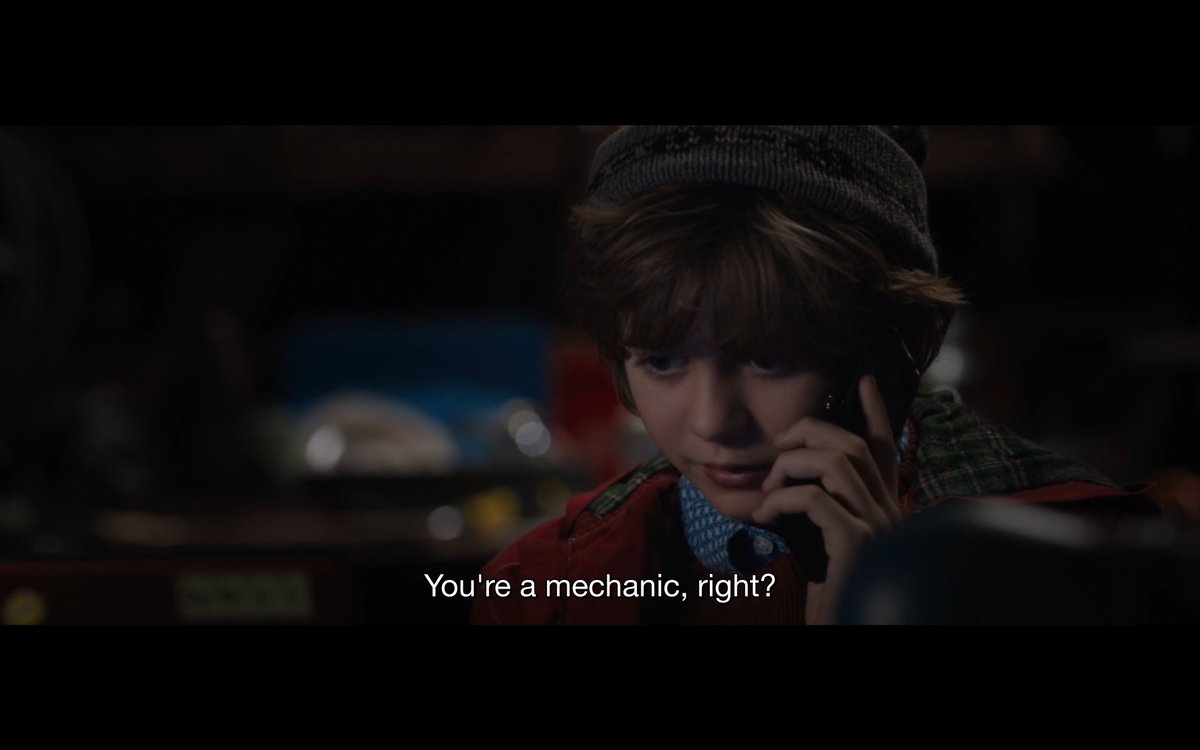
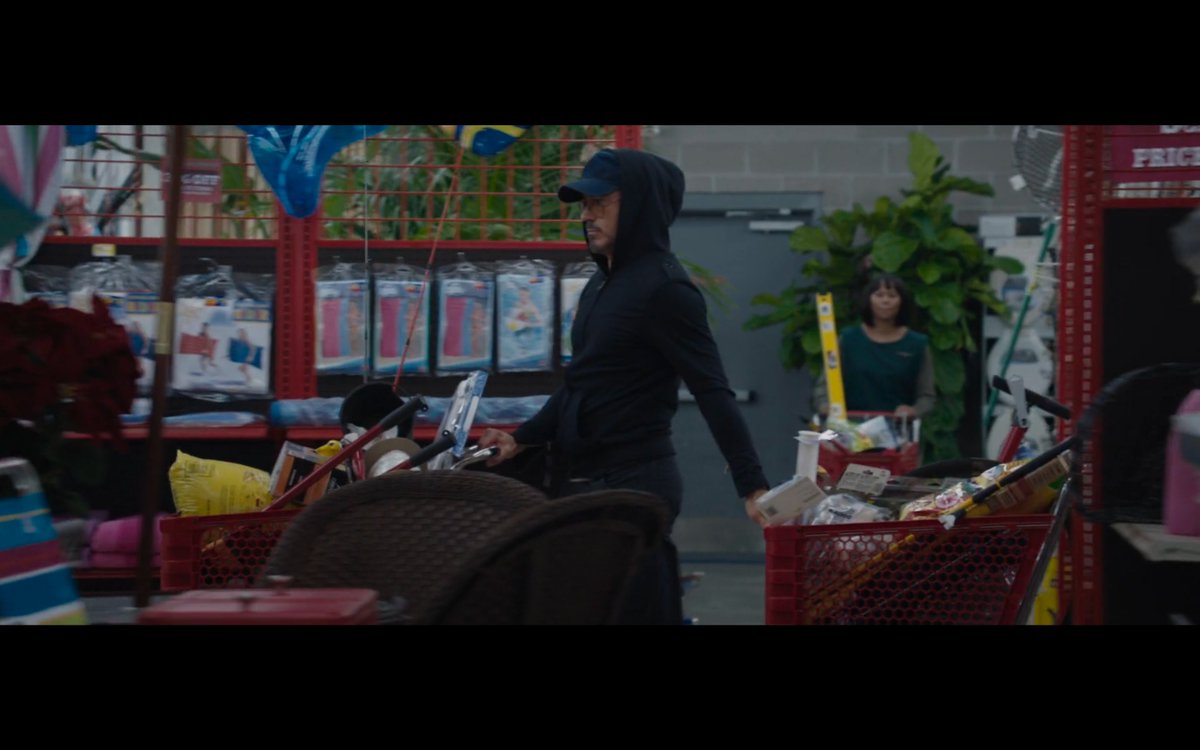


Let me say that again. The Iron Man 3 writers decided to have Tony "cure" himself of PTSD by killing a bunch of guys with homemade guns and explosives, thus proving he's a real superhero even without his suit. I can't think of a worse way to address serious mental health issues.
Acts of violent domination are again framed as restorative for men in the MCU. Violence (properly directed) is depicted as being synonymous with justice but also something that provides "great men" with status, absolution, and restoration. It can even cure mental health issues. 
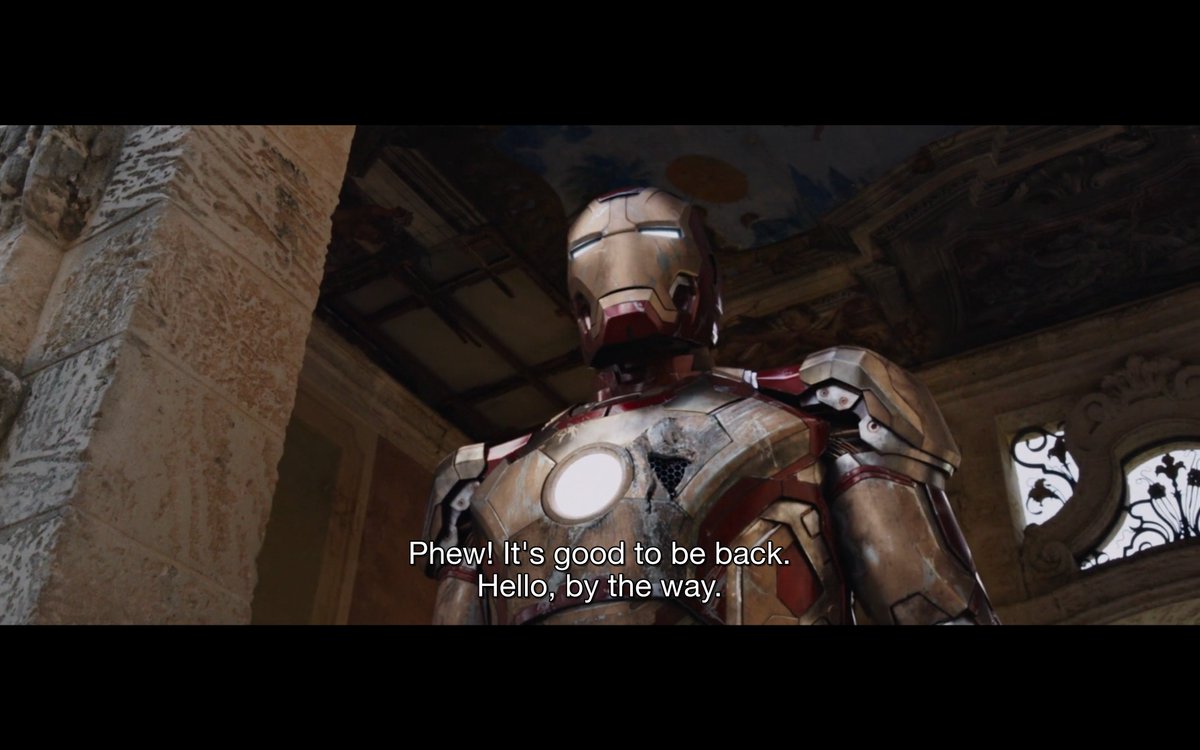
All this is followed by my least favorite MCU post-credits scene. At first it seems like Tony is finally getting the therapy he clearly needs. But no, he's actually talking to Banner (who isn't even listening). So Iron Man 3 ends on an extended joke about men going to therapy. 



Tony isn’t the only one in Iron Man 3 struggling with ability issues. In fact “disability” is a theme running throughout the movie. Physical disability is the core reason why the main villain Aldrich Killian, his army of veterans, and the traitorous vice president all turn evil. 



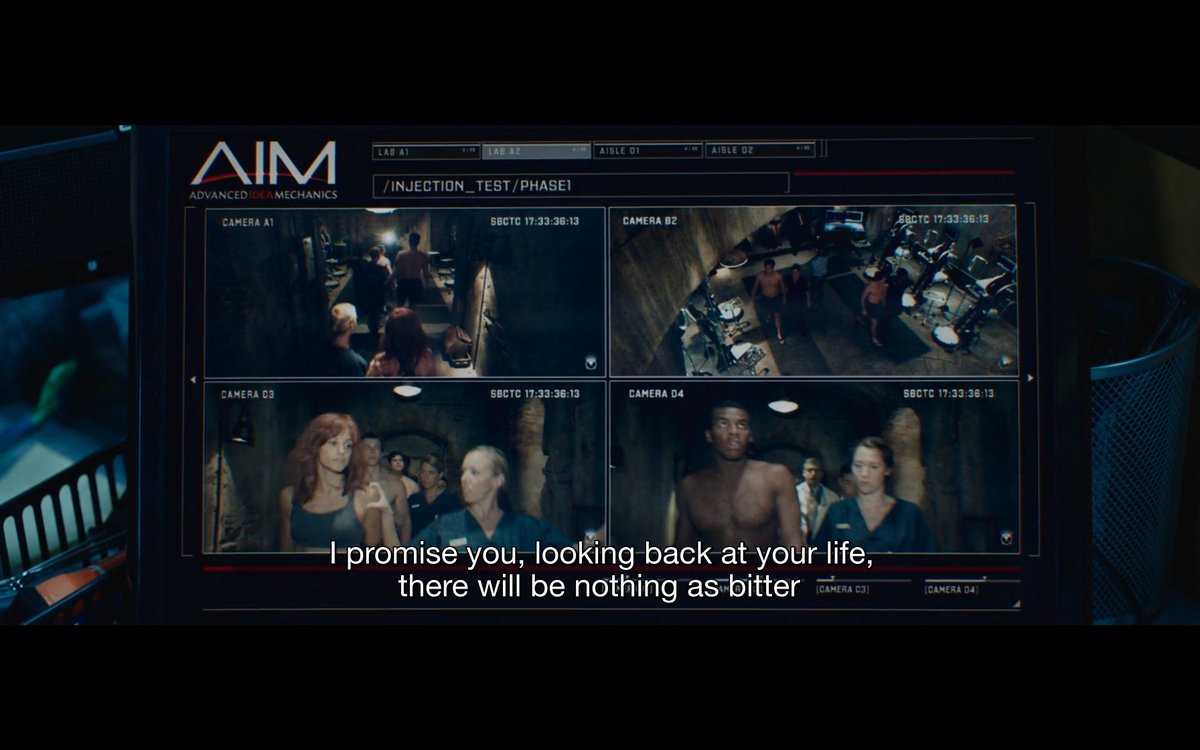
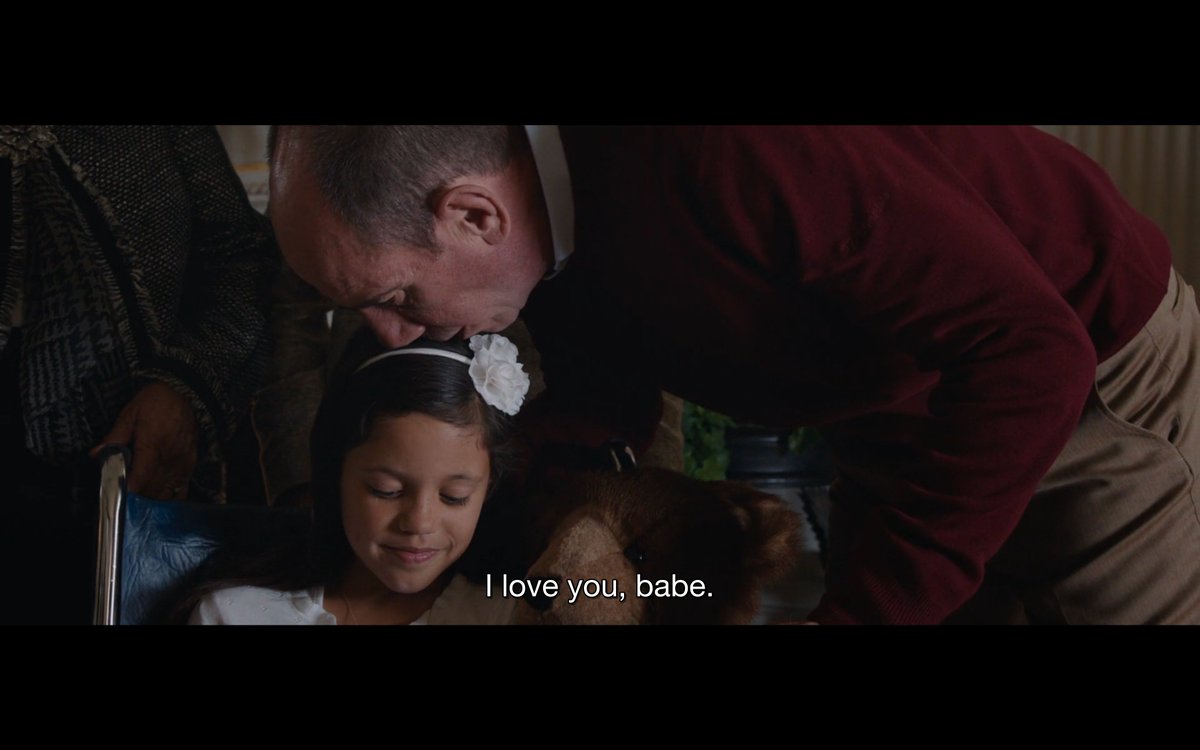
Remember that physical strength and physical prowess are valued above absolutely all else in the MCU. It’s what makes a hero a hero. In that context, being a person with a disability must then be the worst possible thing imaginable.
The Iron Man 3 writers frame disability as so terrible that we are meant to believe veterans would turn to terrorism to get their limbs restored. It's supposed to make sense that the Vice President would orchestrate a coup against his own country just so his daughter could walk. 



There’s no moral at the end of the story here. This is not a “disability doesn't stop you from being a hero” movie message. The idea that "disability turns people evil" is played straight. The exception is Tony, who alone is able to "fix" himself through sheer force of will. 

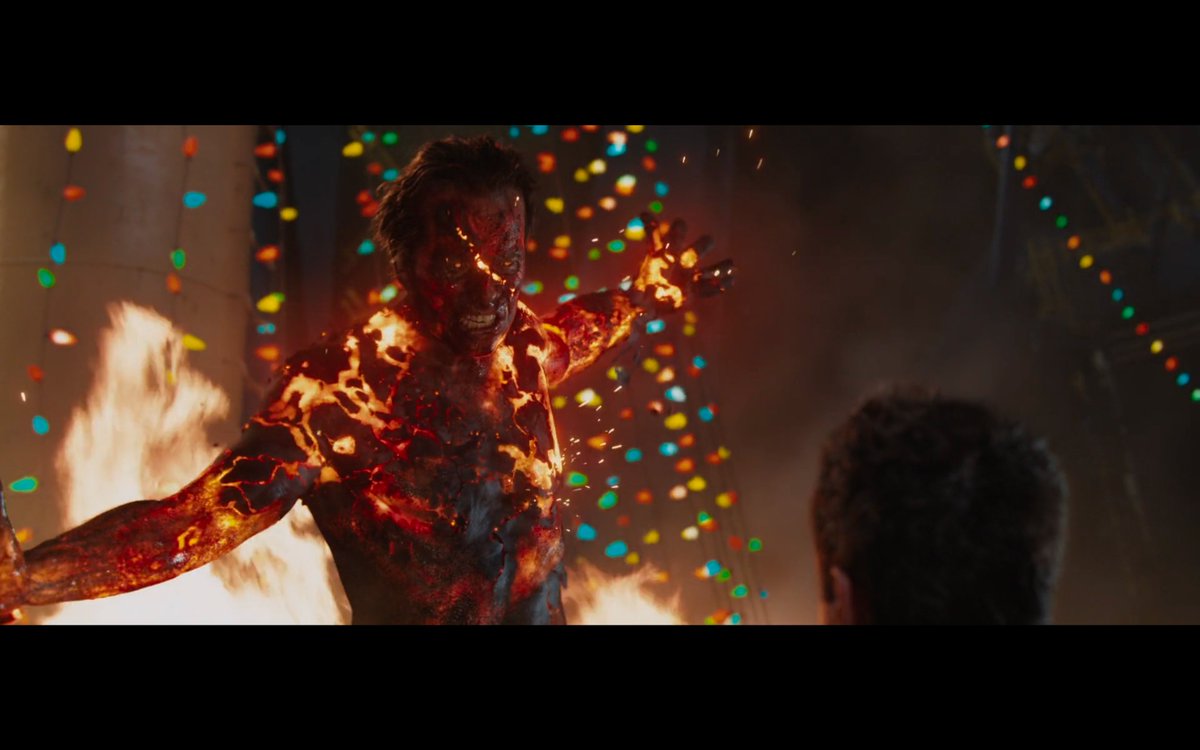

I've got more notes on Iron Man 3 but since we've already spent way too much time on this movie, I'll just leave you with a few more stray observations.
Aside from Pepper (and Maya Hansen) women continue to be used as little more then objectified props just like we saw in the first two Iron Man movies. 





Guns continued to be celebrated as the best way to try to match power with super beings in the MCU. We are also treated to a scene where Tony (sans suit) kills a bunch of goons with an uzi. 

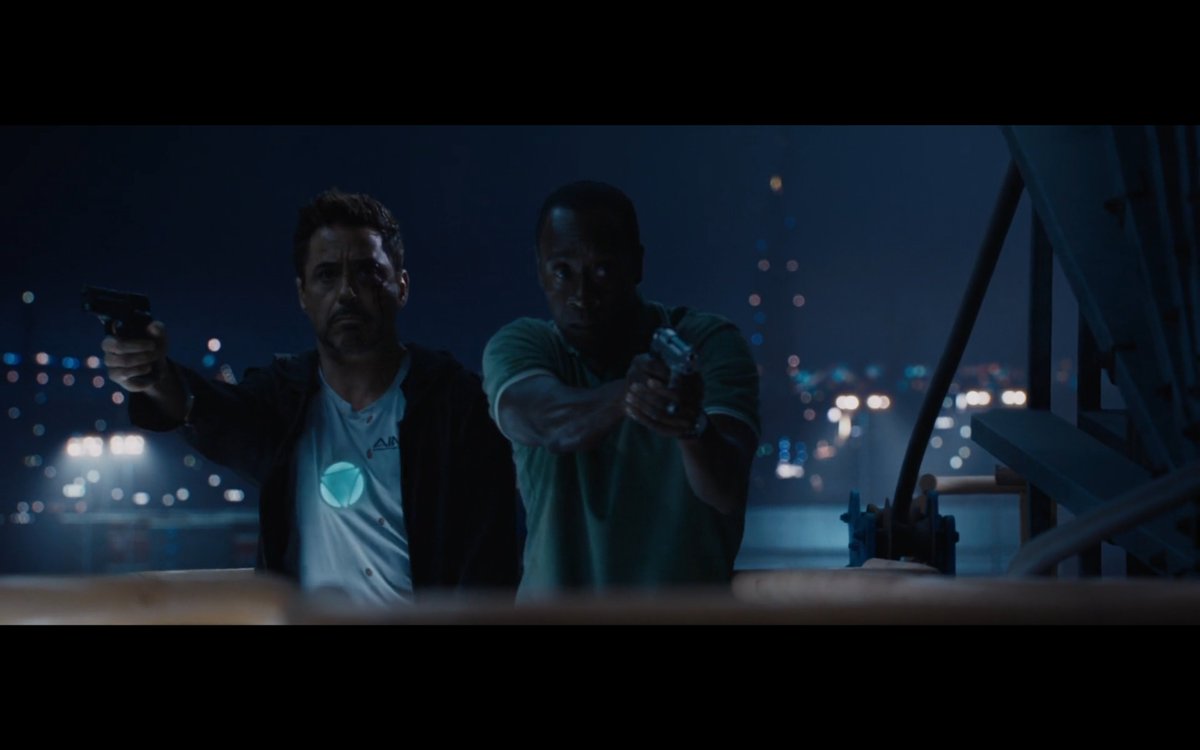
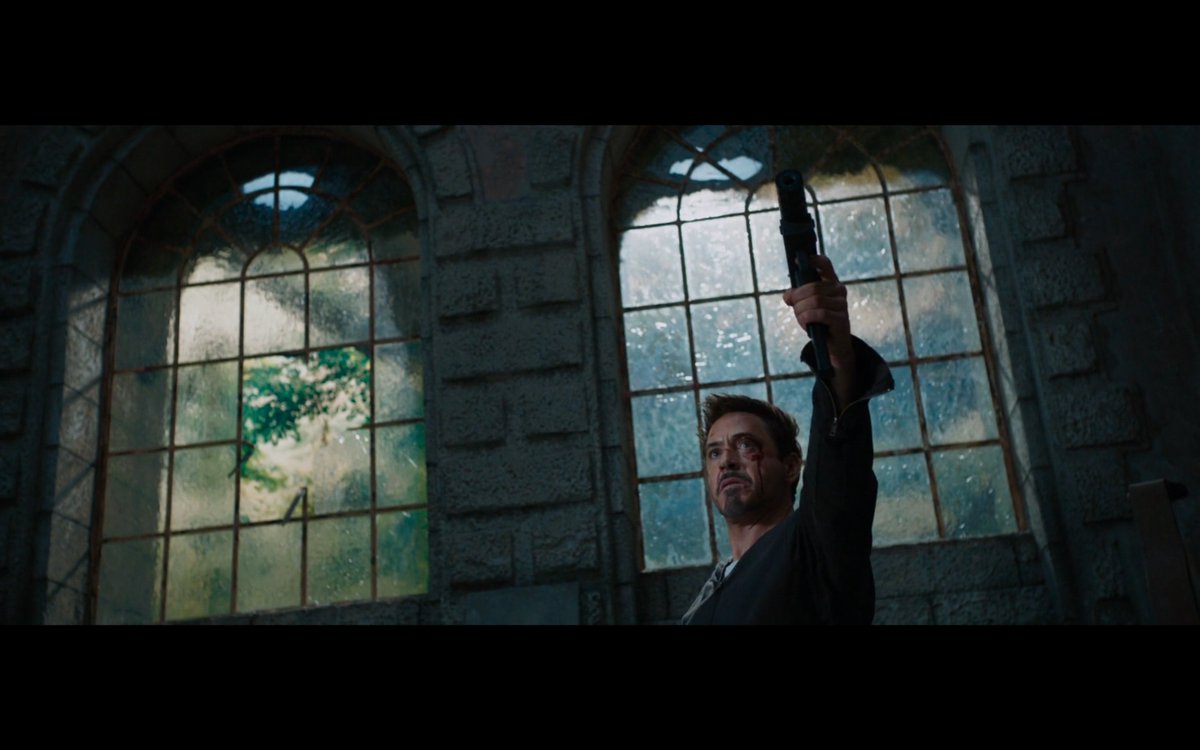
Tony meets a kid without a dad and proceeds to treat him badly for most of the movie. It's meant to mirror how Tony's own father behaved. Except Tony is supposed to be better because he sends the kid gifts at the end. But gifts don't excuse abuse, they're often part of the cycle. 

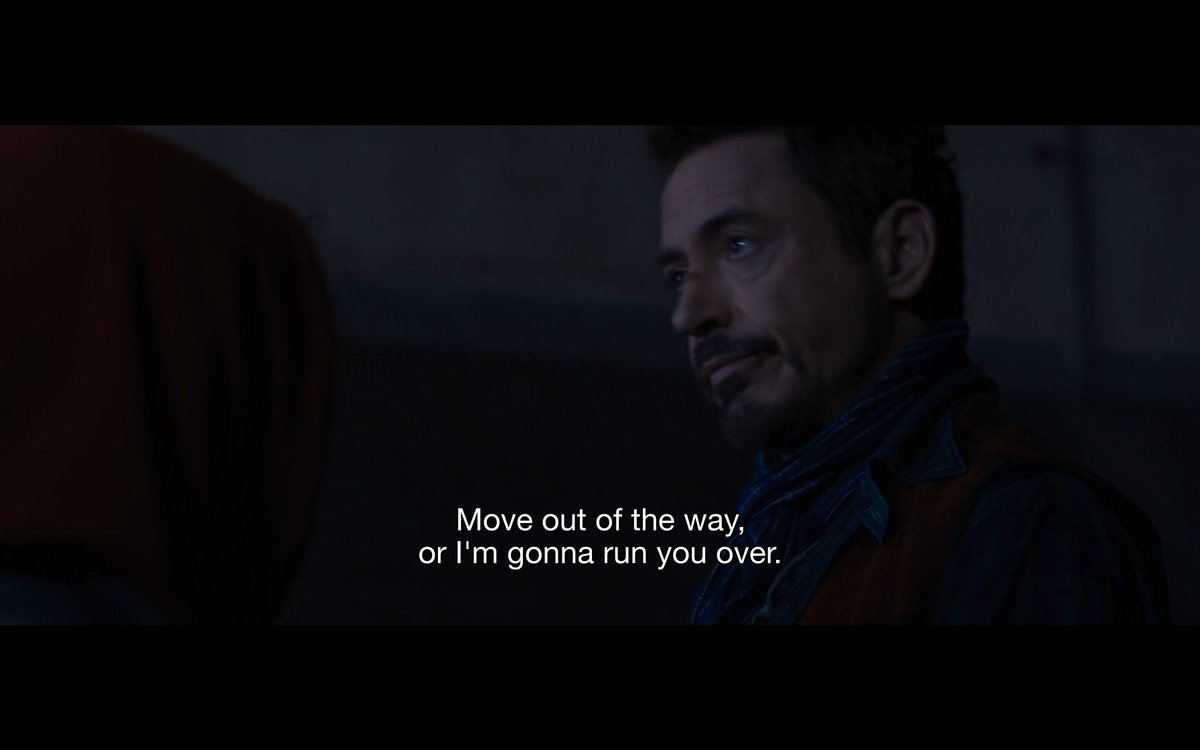
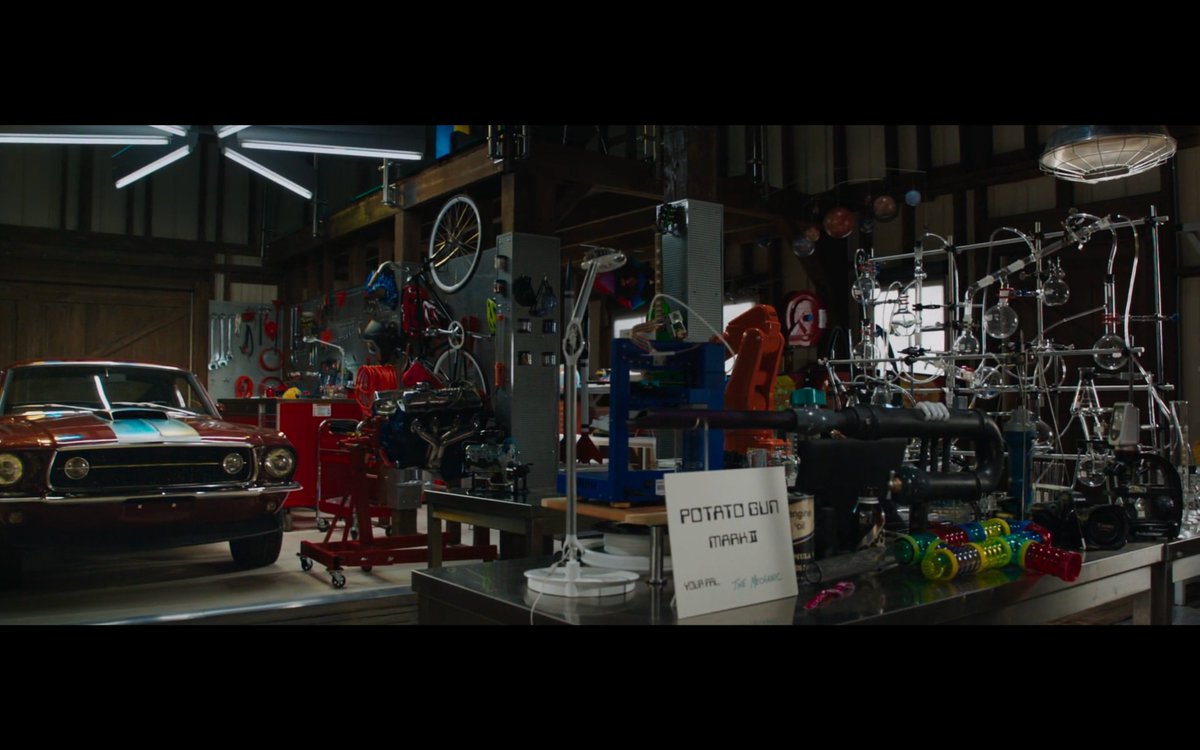
Tony continues to use his resources and technology to spy on the whole world. This disregard for privacy is framed as good and necessary to stop really really bad guys. Again, this is the same justification the US government uses to spy on its citizens. 
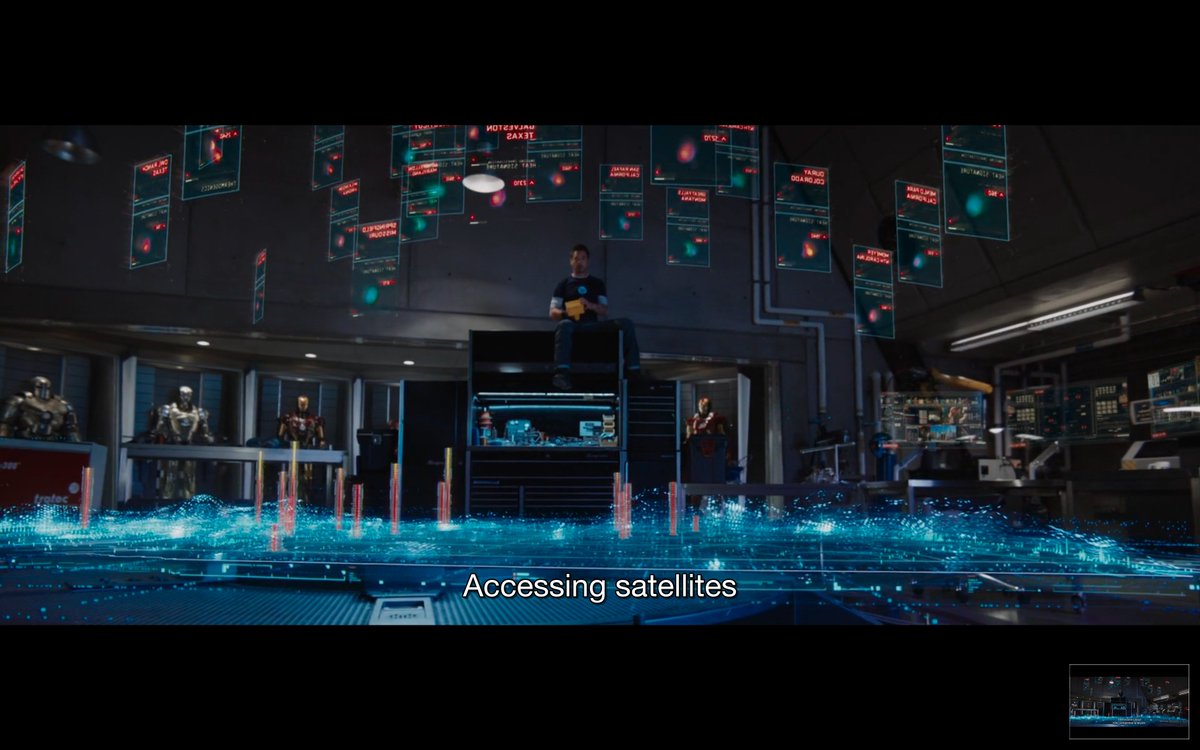
Tony also continues to use his resources and technology to build weapons of mass destruction but this is again framed as noble because the weapons are only for his own personal use. Don’t worry, he’s a tech bro billionaire with a heart of gold! 

Next up we have Captain America: The Winter Soldier (2014) in which everything bad the US government has done since WW2 was actually not really their fault because of a vast conspiracy of secret nazis. Stay tuned.
I haven't forgotten about this MCU analysis thread BTW, I've just been extra busy with other projects. I finished a new mini-video essay about my larger @PopDetective project:
I finished a new long-form video essay about where and when men are typically allowed to cry in movies and tv shows (including in the MCU):
And I'm currently putting together a Pop Culture Detective podcast for more deep dives into the messages embedded in media (both positive and negative). We'll almost certainly be doing a few episodes on manhood, politics, and ideology in the MCU. This thread will also continue.
So the @PopDetective podcast is finally up and running! patreon.com/posts/introduc… (It took a LOT longer than I thought it would). This means I finally at long last have time to return to this thread on the ideological underpinning of the MCU.
I've been putting off sharing my notes on Captain America: The Winter Soldier because it’s a deeply frustrating movie. The plot is built around a number of pseudo-critiques of US institutions but the writers are careful to defang each one as they go.
I'll try to explain how...
I'll try to explain how...
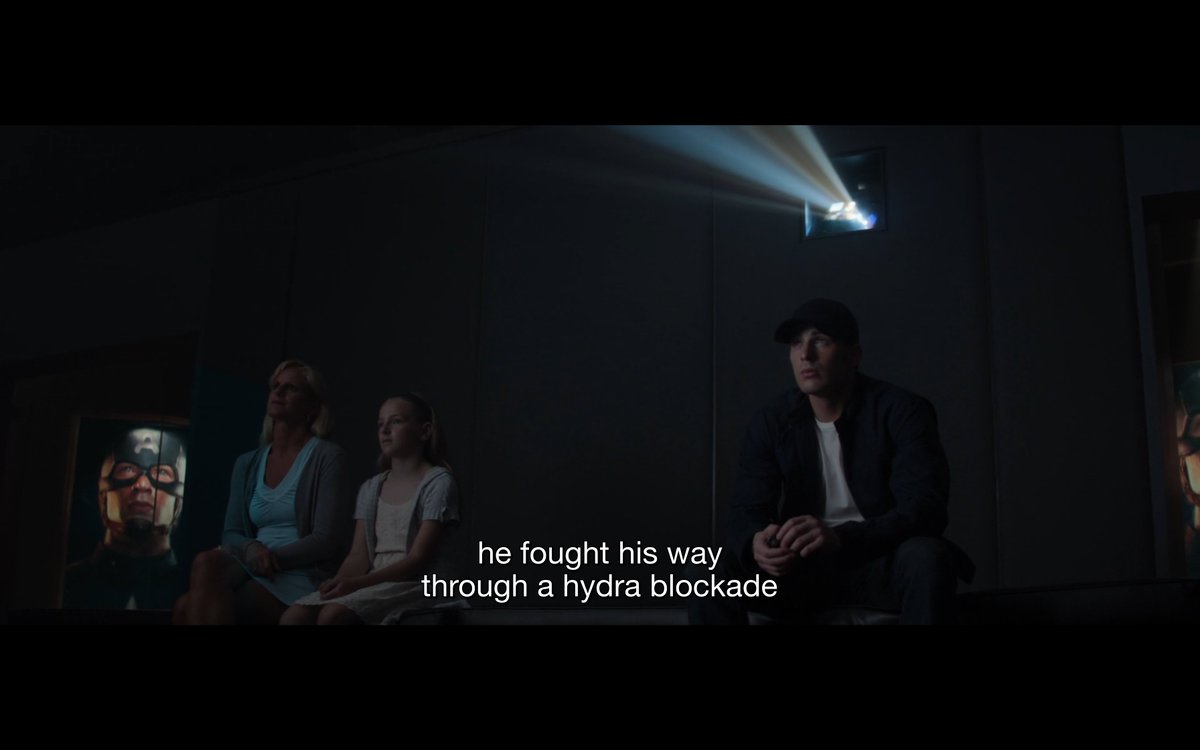
The Winter Soldier initially seems like it has something critical to say about militarism, the surveillance state, police profiling etc. but not only does it fail to follow through on those critiques, it ends up exonerating real US agencies of wrongdoing (both past and present.) 
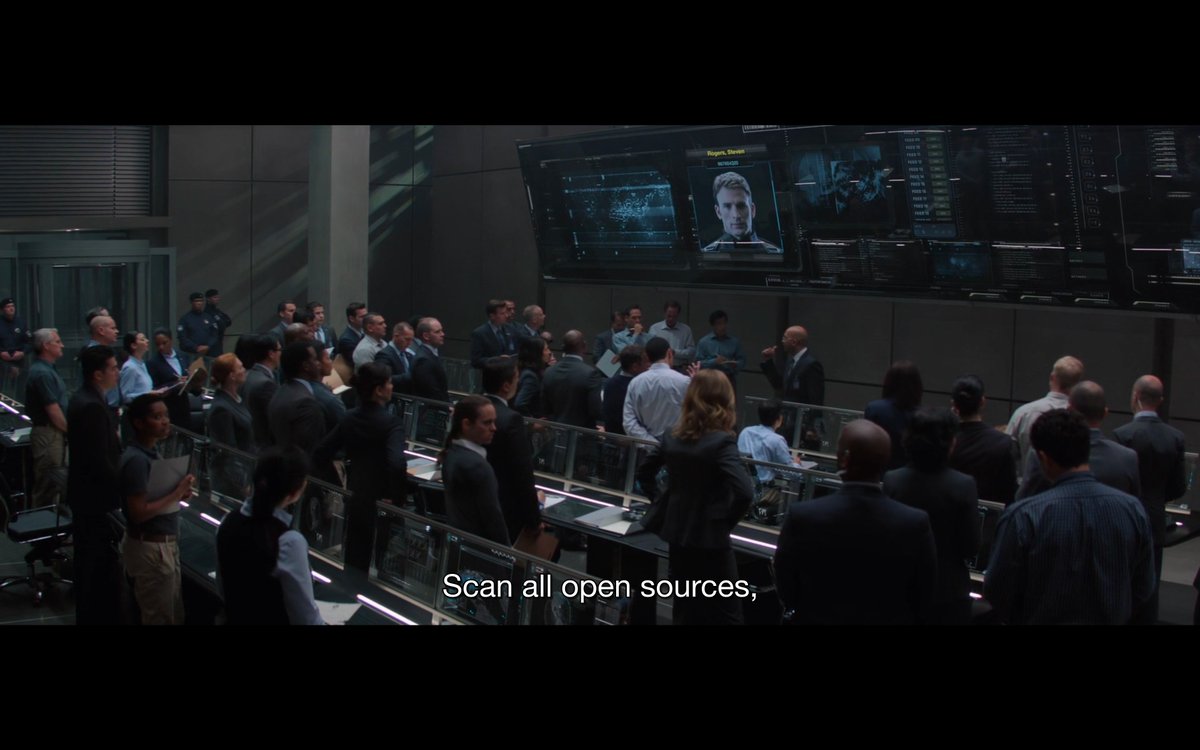
The Winter Soldier is a Marvel movie made by the Walt Disney corporation so the writers aren't allowed to criticize real US institutions like the police, FBI, CIA, or military. There can be rogue individual “bad apples” within those organizations but no real systemic critique.
It really is fascinating just how far The Winter Soldier takes the “bad apples” framing. The movie is a masterclass in what, for lack of a better term, I'll call pseudo-critique.
This scene is setup as a direct reference to police profiling of Black men in the United States. So is it a critique of police racism or brutality? Well, no because (as the script is careful to point out) these are not real police. These are HYDRA agents pretending to be police. 



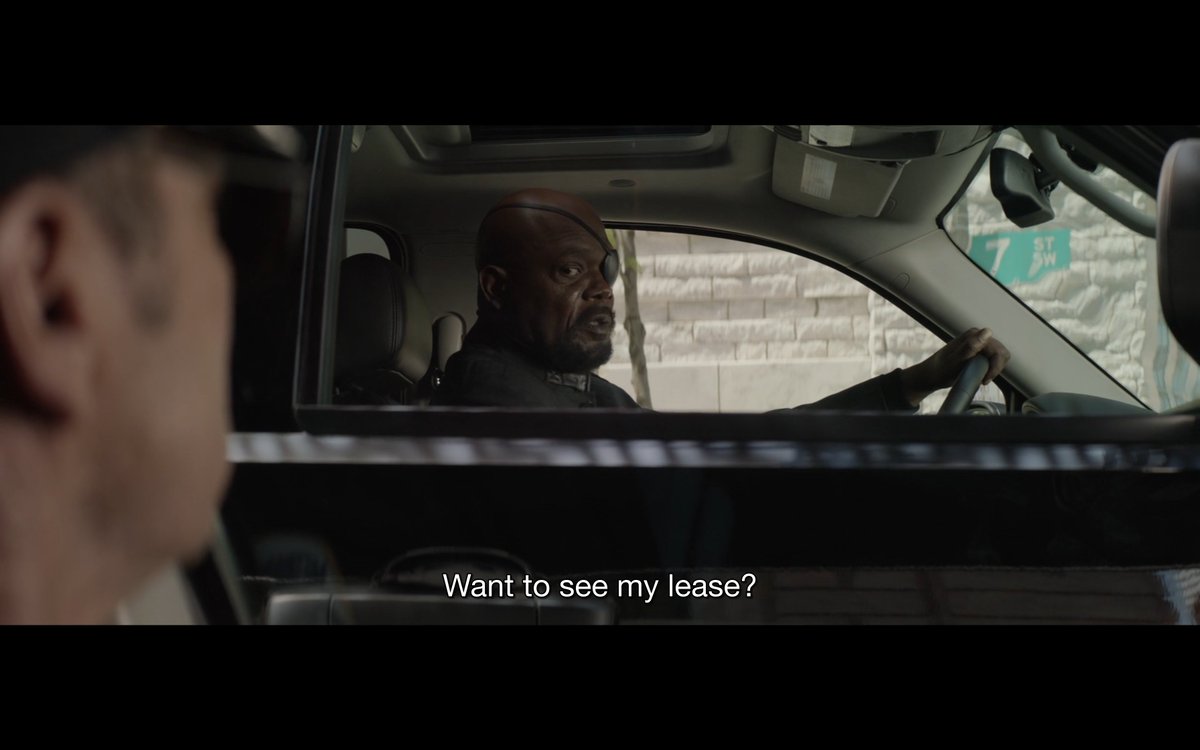

Let's unpack this scene a bit. Notice it's not even a "bad apples" framing. They coulda been rogue cops sympathetic to HYDRA within the police. That woulda at least fit the real-world problem of some cops being sympathetic to white nationalism. But nope, they're just fake cops. 

This "fake cops" framing implies "real cops" wouldn't participate in an attack on a black man or anyone in the MCU. In fact the police are nearly always portrayed as allies to the heroes. But allies who don't have enough funding, guns, or autonomy to effectively take on bad guys. 
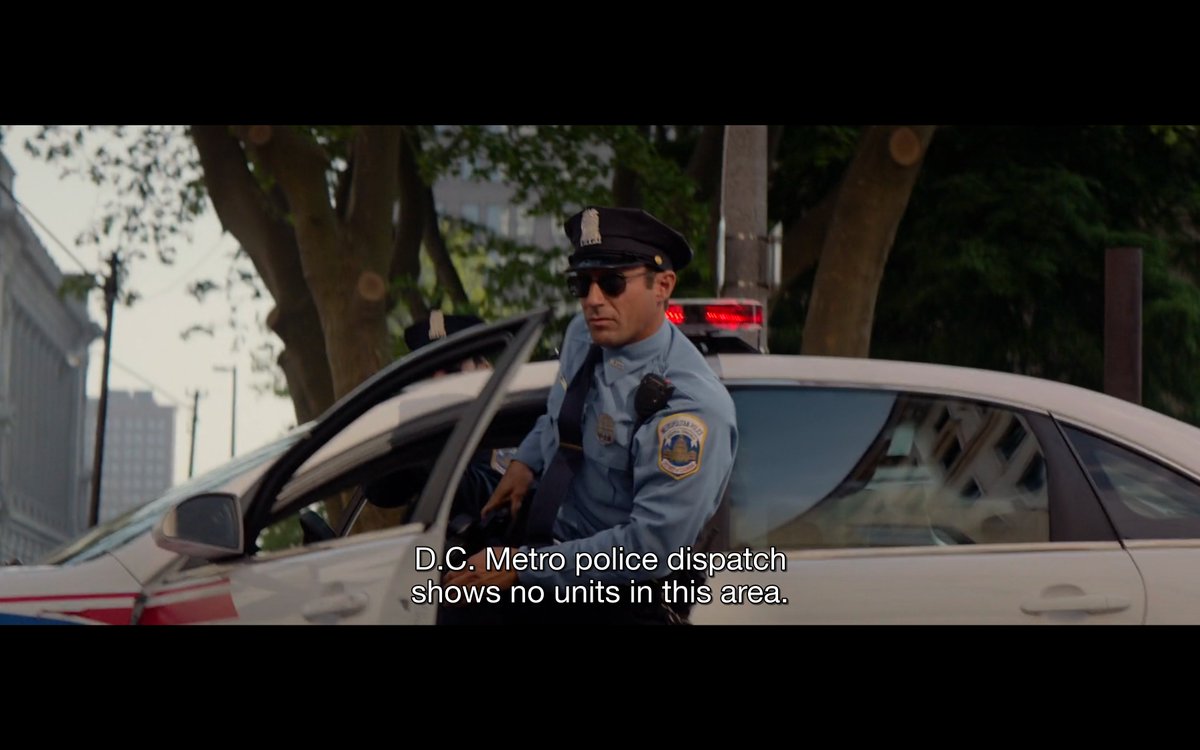
To be clear it is absolutely possible to write critiques of real institutions using fictional proxies but that's not what's happening in The Winter Soldier. For one thing, real US agencies are also present in these MCU stories and they're consistently presented as the good guys.
In this scene we learn that the fictional spy agency SHIELD has apparently been overthrowing governments, backing dictators, funding terrorists, and committing war crimes for decades. All things real US spy agencies do. So is it a critique of US foreign policy? Short answer: No. 


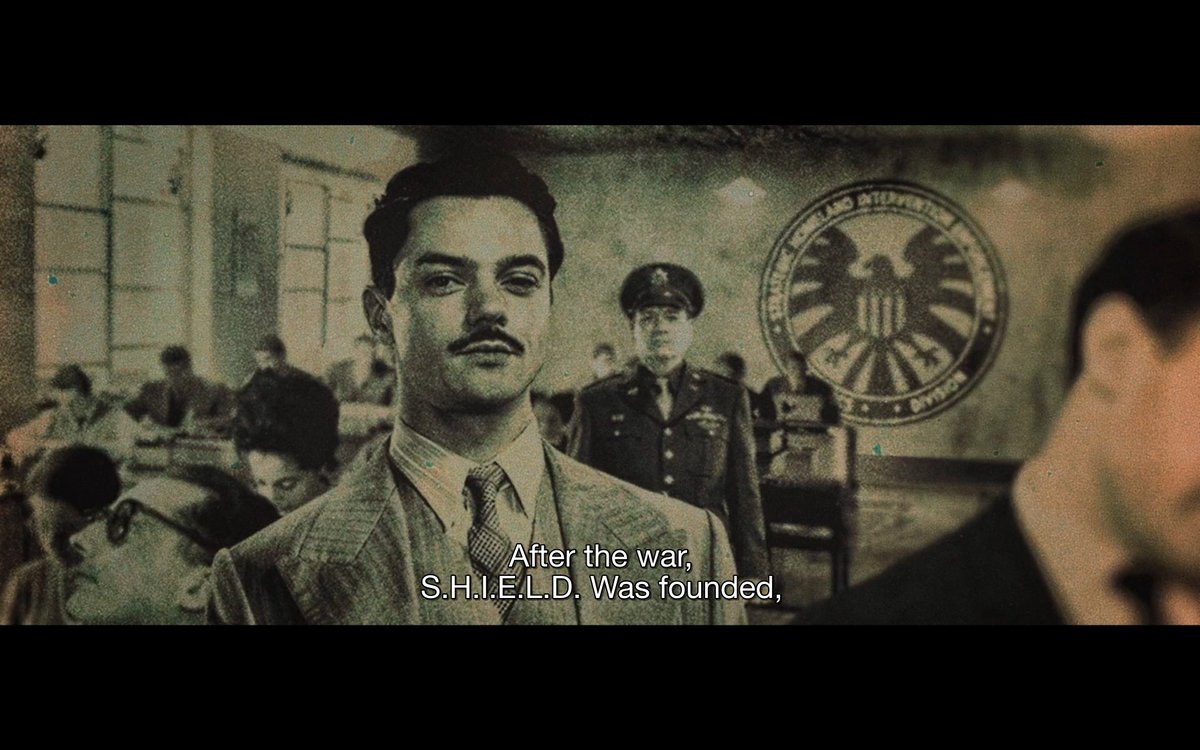
Long answer: It's not a critique of US foreign policy since we also learn the reason SHIELD has been destabilizing the world is because it's been secretly infiltrated by secret HYDRA agents who are secretly behind most of the bad things the US government has done since WWII! 



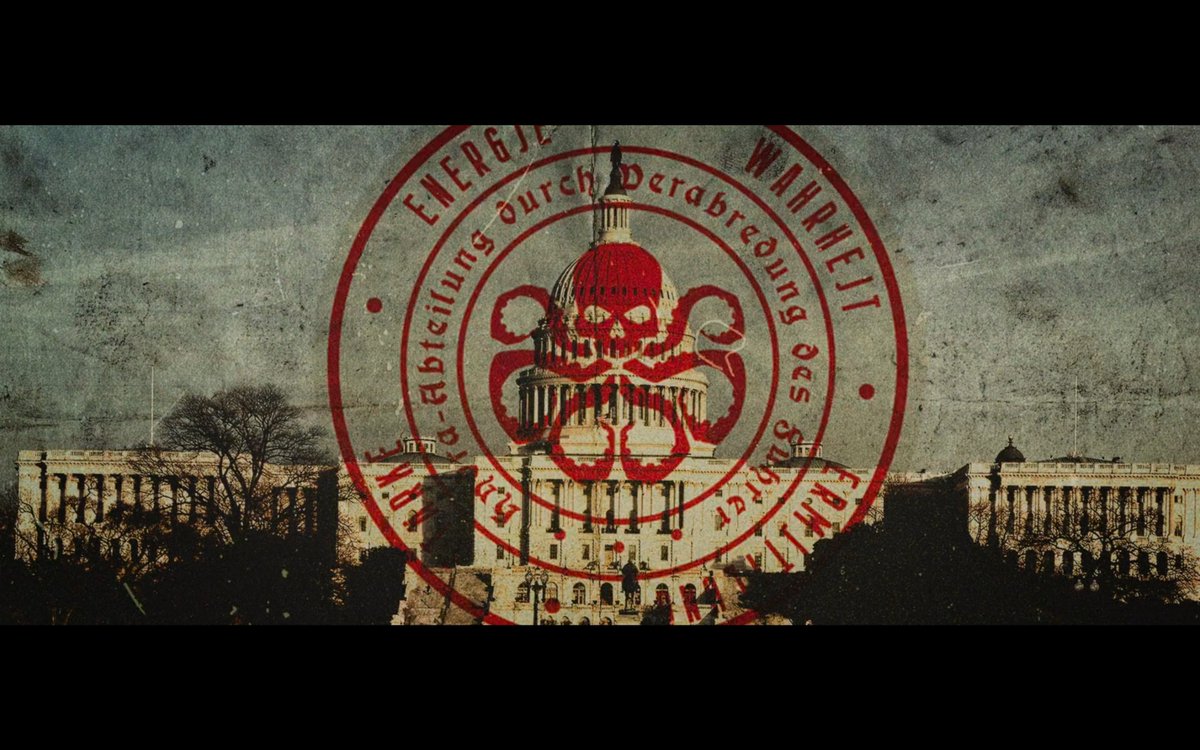

This MCU plot point re-writes real moments in history to absolve the US government of their involvement with real crimes and atrocities. You see, it was all done by secret HYDRA nazis! How convenient. You can watch the montage for yourself here:
Here are some of the many historical moments included in Marvel's revisionist history. According to the MCU, HYDRA was responsible for the 1st Palestinian Intifada, the Iranian revolution, the 1991 US invasion of Iraq, and (what looks like) the rise of Ortega and the Sandinistas. 







If you know your history of US interventionism, you'll understand why re-writing these real events to blame the fictional HYDRA instead of the US government (and their clandestine spy agencies) starts to feel like straight up propaganda.
The images of historical events flash on the screen so fast that, on casual viewing, it's hard to place them. Still, the overall impression audiences are meant to take away is that In the MCU the US government, military, CIA etc. are the good guys and don't commit atrocities.
This image is also included, which implies Julian Assange is a HYDRA agent. Winter Soldier was released in 2014, well before his foray into Trumpism. (And I doubt it's referencing the rape allegations.) Meaning he's identified as HYDRA for publishing evidence of US war crimes. 
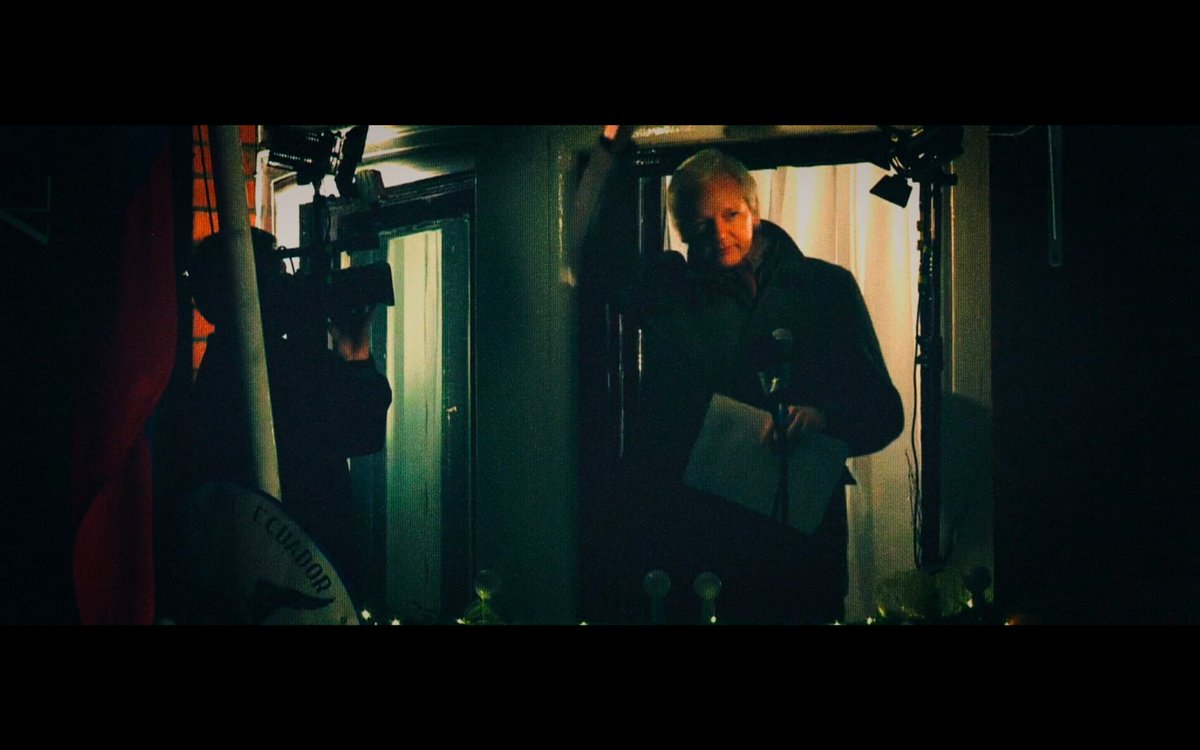
I'm very critical of Julian Assange for many many many reasons but publishing evidence of US military war crimes is not one of them. Anyway, the MCU framing of Assange as a HYDRA agent will be important later on in this movie so keep that point in mind.
Before we move on it's important to talk about why HYDRA is not a great allegory for fascism and, more specifically, an absolute failure of an allegory for naziism.
(I'm mostly talking about the MCU here as I'm less familiar with the whole history of HYDRA in the comic books.)
(I'm mostly talking about the MCU here as I'm less familiar with the whole history of HYDRA in the comic books.)

HYDRA is very explicitly an allegory for nazis in the MCU. (More than that, since they were a nazi devision during WWII in the first Captain America movie.) But while HYDRA has all the aesthetic trappings of nazism, Marvel completely depoliticizes that horrific ideology. 
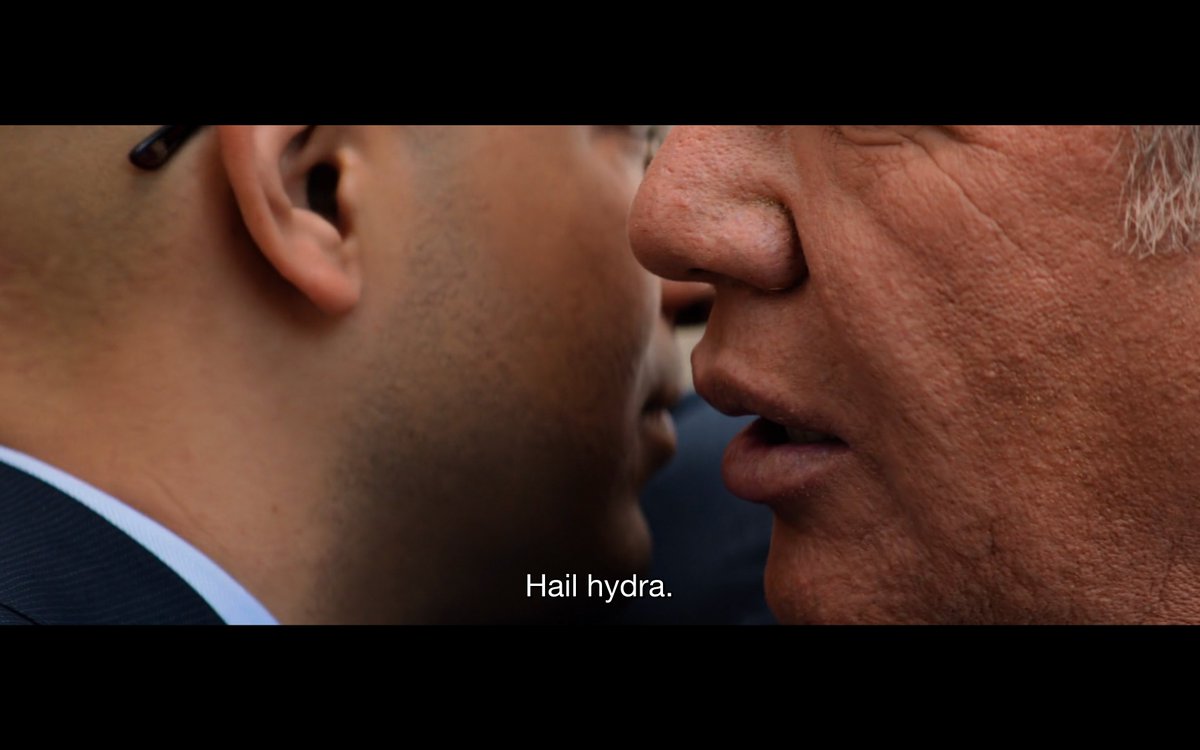
HYDRA is the Disneyfied version of nazis. The poisonous ideology of racism and white supremacy has been erased and replaced with some vague cartoony nonsense about "hating freedom." It's hard to sell action figures and other merchandise featuring overt racists, I guess. 



Even within the messy confused politics of Harry Potter, the Death Eaters are a better allegory for the danger of nazism. It really pains me to say that since JK Rowling's politics are a total trash fire, but at least her wizard-nazis used terms like "pure-blood" or "half-breed." 

So why does it matter if Marvel sanitizes the racism out of their nazi allegory? Well, on one level it fails as an allegory and makes the story less impactful. On another level it's especially harmful to lean on the nazi aesthetic while stripping away its white supremacist roots. 


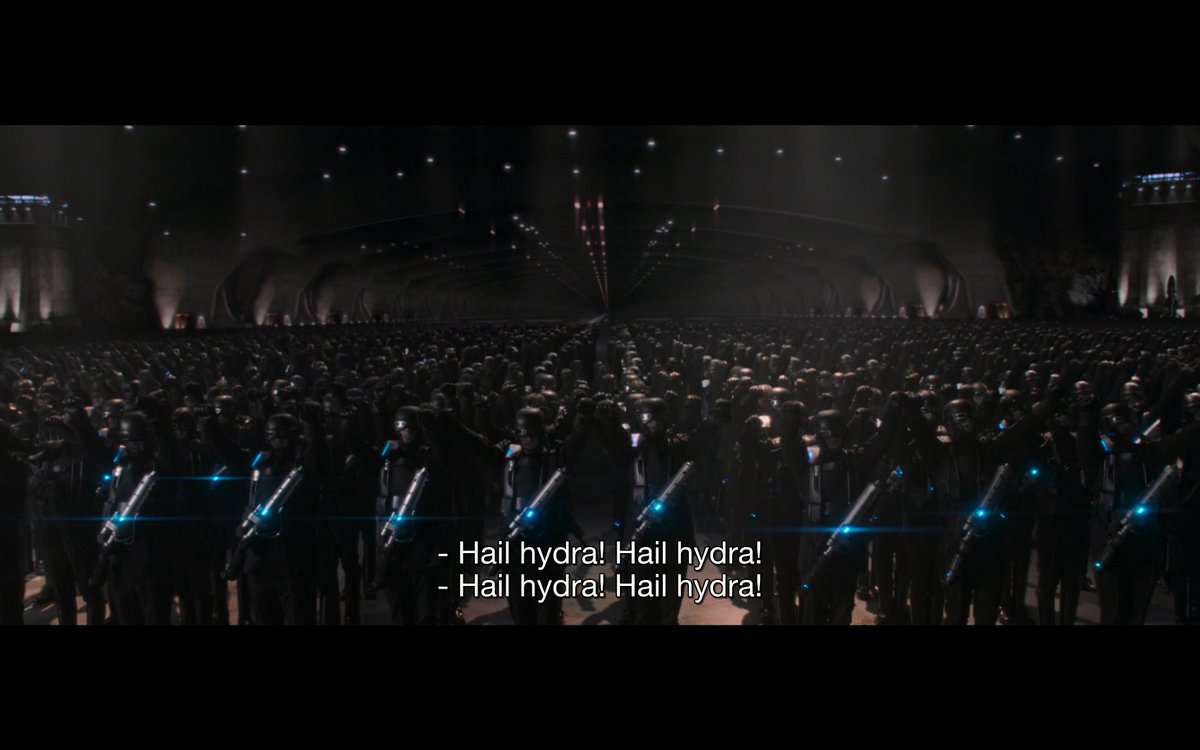
Also, as others have pointed out, HYDRA is supposed to be worse than "normal" run-of-the-mill third reich nazis somehow, except again they express no racist ideology or any ideology at all beyond "freedom bad." You can see how that's a problem.
Again, it's not necessarily an issue when sci-fi stories use nazi allegories (lots of them do) but for heaven's sake don't depoliticize fascism or sanitize away the racism. We need more people to understand the true horror of nazism and that can't happen when it's Disneyfied.
The movie also seems like it might have something to say about the modern surveillance state but in the end it's a pseudo-critique. Turns out this is yet another sci-fi story about how “pre-crime” law enforcement is bad. Super challenging stuff that zero viewers will object to. 

I love Minority Report too but come on Hollywood, "pre-crime" isn't really the reason mass surveillance and data collection is dangerous. It’s a privacy violation that hands enormous power to corporations or governments who can exploit our data, often in small but corrosive ways.
Ultimately we learn that the problem isn’t really data collection or mass surveillance or even killer military tech (Stark continues to build and use all that stuff), the real problem is HYDRA's pre-crime algorithm being used for mass murder. In the MCU, it’s always mass murder. 



Mass surveillance is a theme in a bunch of these movies but no lesson is ever learned beyond "bad in the wrong hands." Remember that Tony Stark (post mortem) is still using mass surveillance tech attached to automated killer drones in Spider-Man: Far From Home (2019).
Black Widow pulls a wikileaks and dumps SHIELD files onto the internet. Odd since Assange is framed as a HYDRA agent for doing the same thing IRL. Although this is a little different because while SHIELD files embarrass the US government, HYDRA was responsible for the war crimes. 
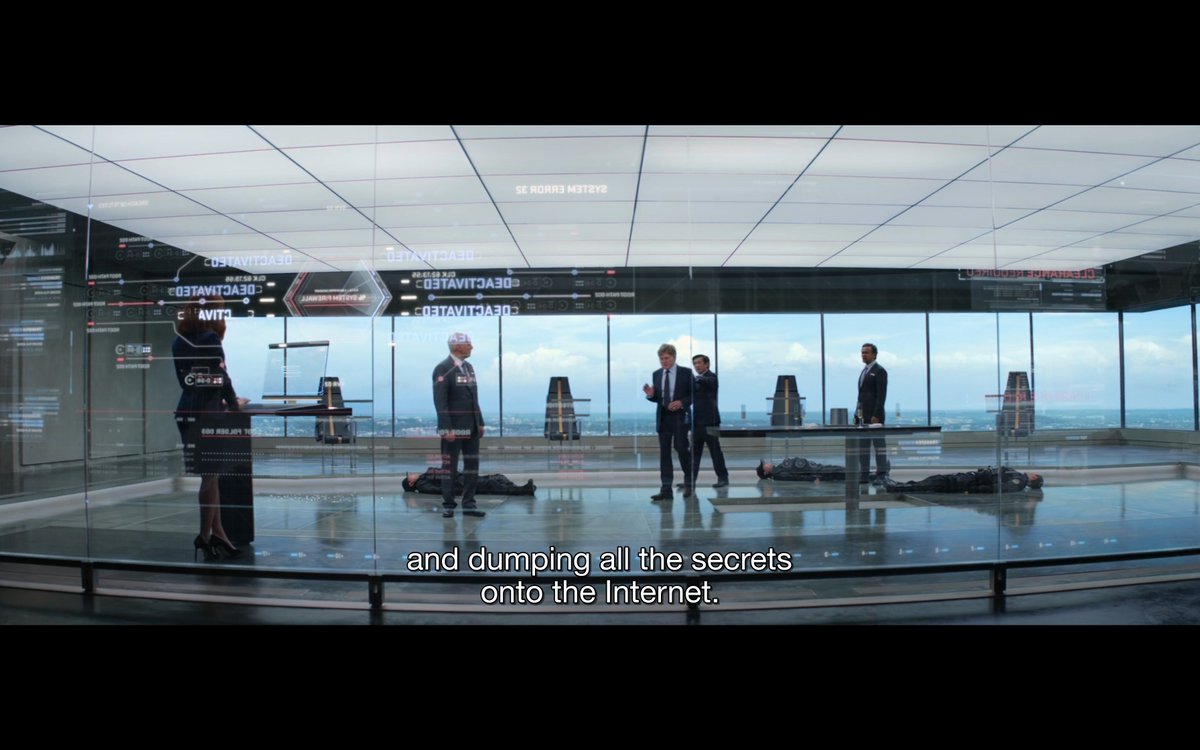
In the end SHIELD is dismantled (and HYDRA along with it) but does this outcome mean it's a critique of the military-industrial complex? Well, not really because we also see the "good" SHIELD agents continuing their missions from other places like the CIA and private contractors. 

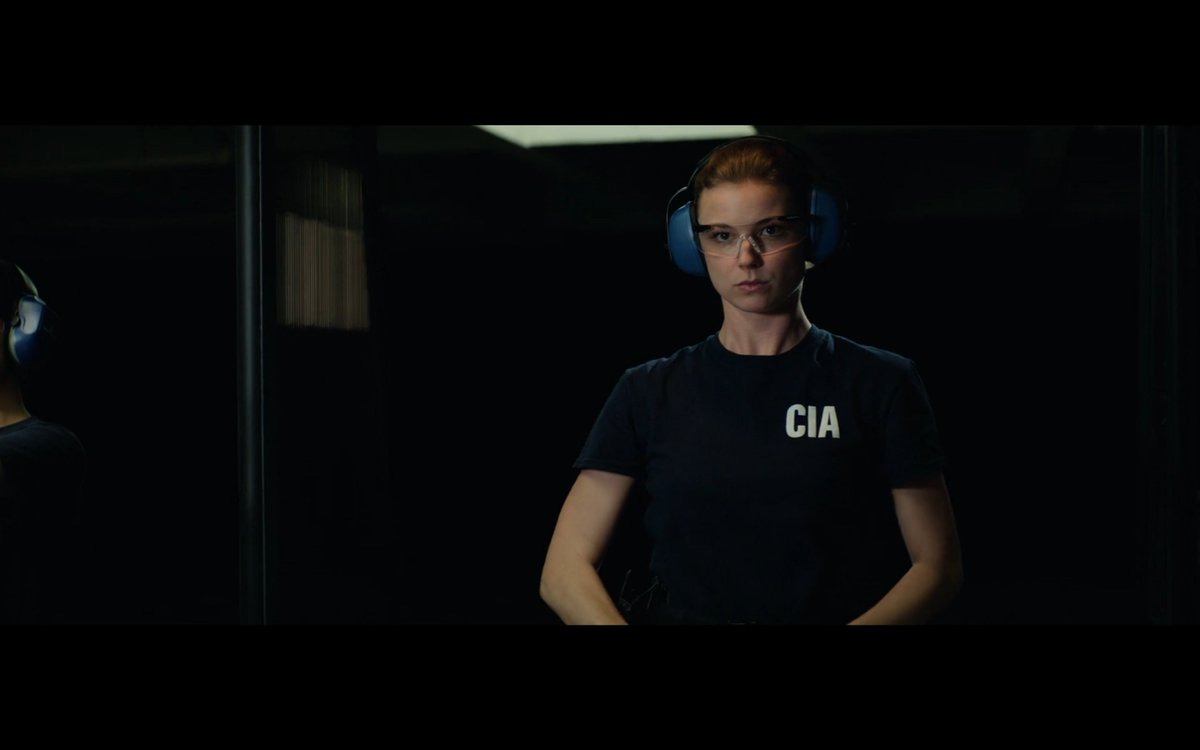

What’s the message of this film then? Again we're left with the idea that public accountability or oversight for super-vigilantes is bad because we need them to protect us from future threats. That's eerily similar to what The Pentagon says to duck oversight and accountability. 

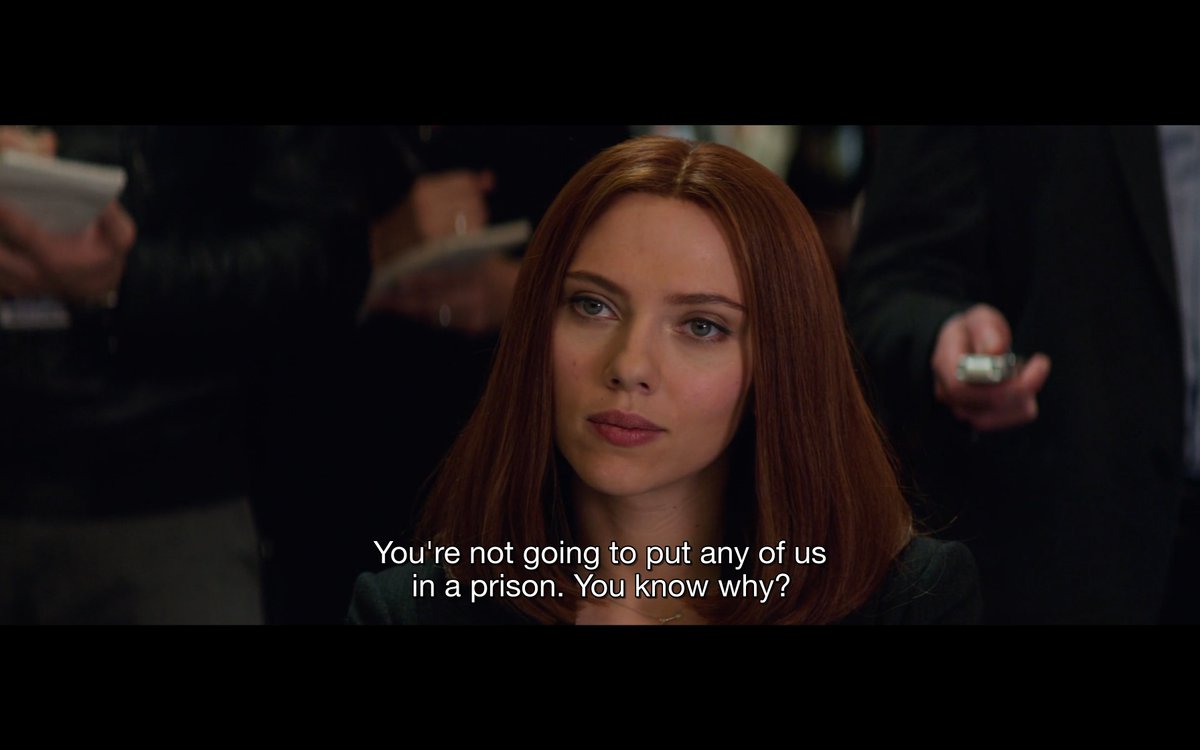
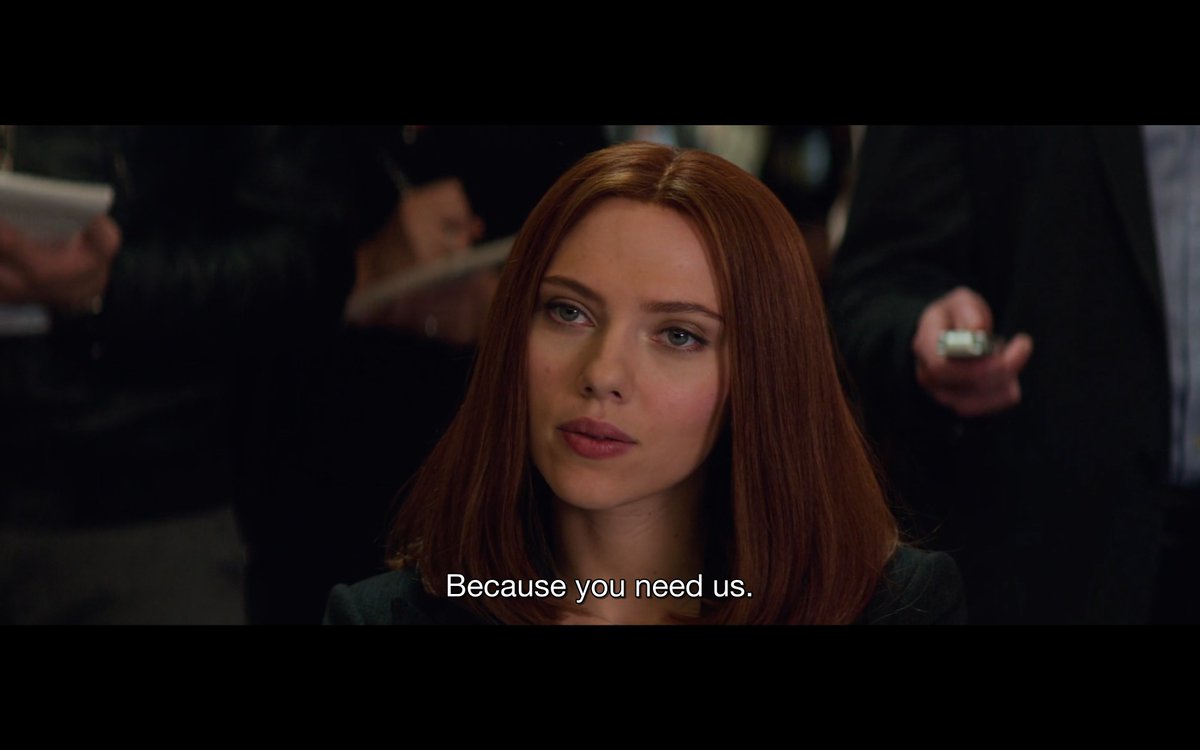
Further reading: This essay by the late David Graeber on the problem of superheroes, public accountability, and constituent power is one of the best deconstructions of the genre I've read. thenewinquiry.com/super-position/ (A longer version also appears in his book "The Utopia of Rules") 

I have a handful of other stray notes before we are done with Captain America 2.
Even though this statement just kinda hangs there in the air before Captain America quickly changes the subject, it’s still a nice little moment. 

At first I was impressed that Sam is shown leading a support meeting for PTSD, even though his work with them is never mentioned again. On re-watch though I notice his advice to the survivors is kinda terrible. It basically amounts to “learn to live with it, it's your choice." 

As expected the MCU continues to glorify firearms (even in movies where the main superhero doesn't carry one.) The filmmaking here is absolutely in LOVE with guns. 





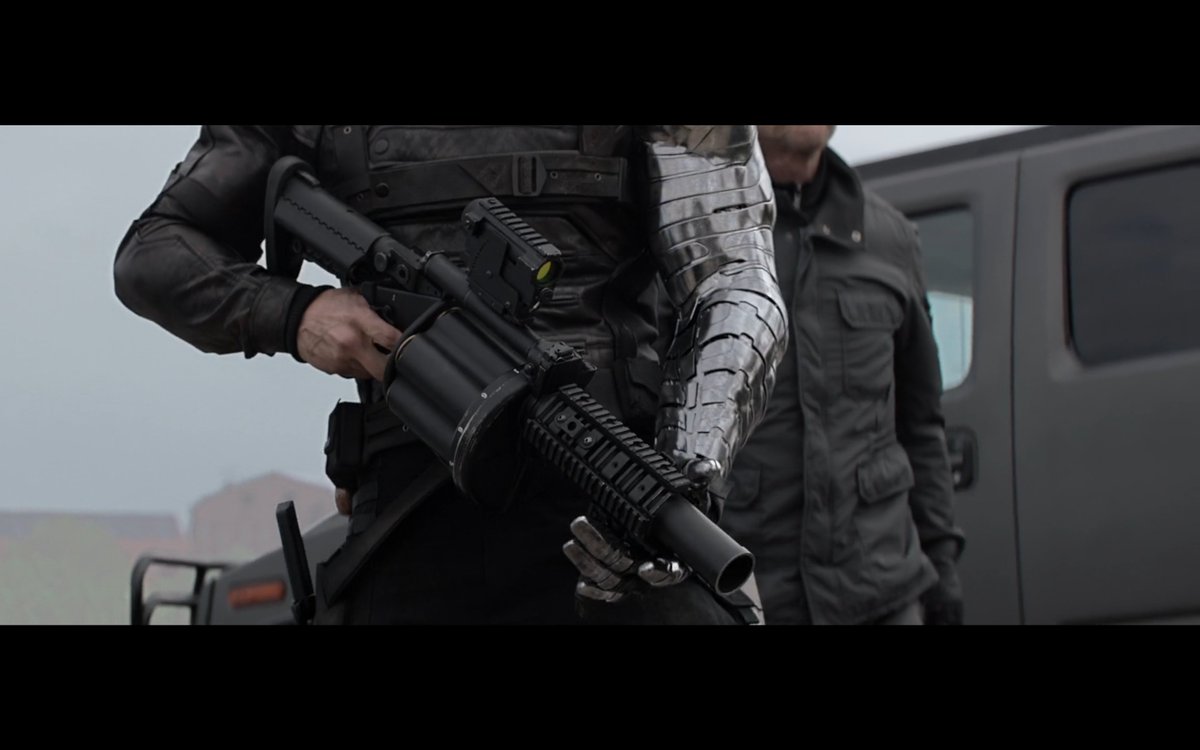

I feel like Fury gets off way too easy in this movie, he basically admits to a career of committing atrocities for SHIELD/HYDRA, but it’s okay because he did it to “protect people?" Sounds a lot like the same BS excuse the CIA gives. 
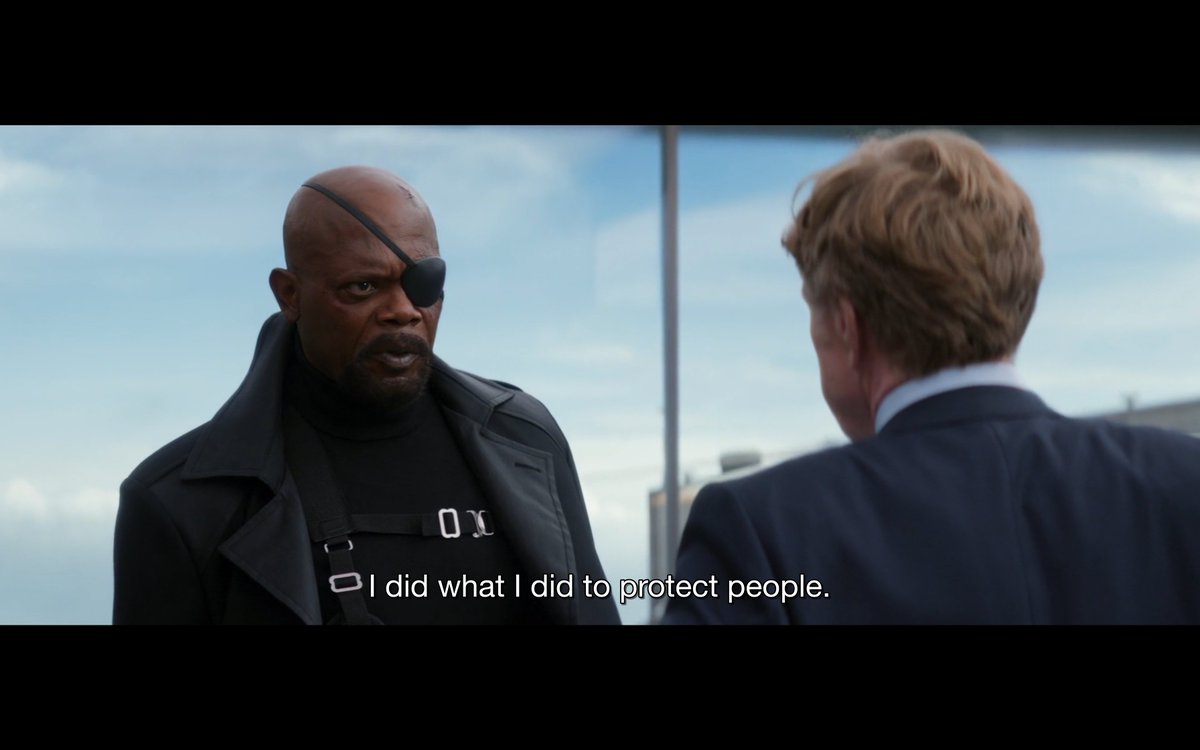
“I’m not gonna fight you.” I’m sorry, I laughed out loud. You've been fighting him for like an hour already! Fighting is the PRIMARY way men (and some women) solve everything in the MCU. Physical fights are how conflicts are resolved, friendships forged, and emotions expressed. 

This is one of the few scenes where a male Marvel hero “wins” by allowing himself to be hurt, instead of doing the hurting. The other major example is Dr. Strange but we’ll get to him soon. Just keep in mind these conflicts are also solved with violence, it’s just self-inflicted. 



So Steve and Bucky beat each other to a pulp but the violence leads to a bonding moment between the two men and ultimately paves the way for them to rekindle their friendship. Classic MCU masculinity. *sigh* 

I’ll say this for Captain America: The Winter Soldier, there's a hell of a lot to discuss. But I'm gonna stop here. Next up will be Avengers: Age of Ultron (2015). Chronologically it should probably be Guardians but I think putting Ultron first makes more sense for this thread.
It’s been a while but I’m still slowly working through posting my extensive notes on all the Marvel movies. Since my last entry in this thread, I made a long-form video essay about the “Harmless” Peeping Tom trope:
For those interested, here’s a handy-dandy compilation of this whole MCU thread so far: threadreaderapp.com/thread/1440582…
Okay, now it’s time for Avengers: Age of Ultron (2015) directed by now disgraced geek darling Joss Whedon. 

A lot of dialogue in Age of Ultron turns MCU subtext into text. In so doing the script ends up reaffirming many of the points I’ve been making in this thread. Although, in classic Joss Whedon style, the self-referential humor is used to seem "clever" rather than for criticism.
Here’s an early example of how the script jokes about the fact that diplomacy in the MCU is framed as utterly ridiculous. Tony quips that he and the Hydra goons should talk it out. The Iron Man suit then takes them all down in 2 seconds. He flies away saying “good talk.” 





Later in the film, Ultron observes (correctly) that The Avengers never work for transformational change. They instead work to protect the status quo. Like other MCU villains Ultron wants fundamental change but because this is Marvel, fundamental change always means mass murder. 

I briefly mentioned ironic lampshading (above) when discussing The Avengers (2012) but because the writing technique is a Joss Whedon staple it becomes a defining feature in this film. Here’s a 60 second clip explaining the term from one of my video essays youtube.com/clip/UgkxduJOn…
Lampshading can be fun or benign like when Wolverine makes fun of the yellow outfits in the X-Men movies. But Lampshading can also be used as a way to preemptively deflect criticism and keep getting away with including regressive tropes. This is how it’s used in Age of Ultron.
For example, Thor and Tony praise their respective girlfriends but it quickly turns into a dick measuring contest. Their macho behavior is then lampshaded when Maria Hill coughs the word “testosterone.” Thor and Tony then continue their competitive behavior. Nothing is learned. 







The next scene turns the macho behavior up to 11 when all the male Avengers take turns trying to lift Thor’s hammer. This extended dick measuring sequence is then lampshaded when Natasha opts out and gently mocks them for it. 







Referring to this scene as a "dick measuring contest" isn't subtext or me editorializing, remember this is Joss Whedon, so it's actually written into the dialogue itself. 

Tony also makes a straight up rape joke here. “Prima Nocta” refers to the old practice of monarchs claiming the “legal right” to rape any woman in their kingdom on her wedding night. Gross. 

You can see how lampshading regressive behavior is appealing to big media companies. It allows them to include bits for conservatives to enjoy while distancing the movie from those ideas by making jokes about it. This then makes progressives feel seen. For Disney it's a win-win.
Ultron was made before Whedon’s fall from grace but there were warning signs. Like when Bruce randomly faceplants into Natasha's cleavage. It mirrors Justice League (2017) where Flash lands on Wonder Woman’s chest. Gadot refused to do the scene, forcing Joss to use a body double. 



As many others have pointed out, making the traumatic backstory of your one female superhero in your 20+ film series revolve around “infertility” - isn’t a great look to say the least. 

So let me get this straight, Bruce is a monster because he turns into a giant green literal monster but Natasha is also a monster because she can’t have babies? How on earth did this script get all the way through production without anyone flagging that retrograde nonsense? 



The essentialist implication of this line about how it's "easier for women to kill if they can't have babies" is also pretty messed up. It implies that "fertile" women have some kind of special biological instinct that makes them natural caregivers but non-baby-havers don't. 



Just like we saw in Incredible Hulk (2008) the only way to de-hulkify Bruce is for a “special woman” to talk him down. The idea that it's women’s job to calm men's rage is an especially dangerous myth. In real life it doesn't work, women bear the brunt of men’s domestic violence. 

This scene is so fucked up on so many levels. Bruce refuses to hulk out because he doesn't want to hurt people. Natasha pretends to support his decision, kisses him, then pushes him to his death - forcing The Hulk to take over. She says “I adore you…but I need the other guy.” 







We're left with the unmistakable messages that men’s anger is a necessary evil to protect civilization. That the capacity for righteous violence is what makes men useful valued members of society. And that therefore men who choose not to use physical force are useless cowards. 

Natasha disregarding Bruce's explicit wishes and forcing him to become a violent brute is framed as the right thing to do because the fate of humanity is on the line. But the fate of humanity is always on the line in the MCU and that setup can be used to justify almost anything. 

I’ve heard it argued The Hulk is a good metaphor for men's struggle with anger. But that falls apart when you considered that although we’re told Bruce is the smartest scientist on earth, his violent rage is what makes him a hero in the MCU. He wouldn’t be an Avenger without it. 

After the battle, Hulk feels betrayed and refuses to change back. He flies off alone, mirroring the end of Incredible Hulk (2008). Men severing their connections to "protect people" is one of my least favorite tropes. It’s why I didn’t like the end of Spider-Man No Way Home. 

As expected, we see a bunch of scenes where interpersonal issues or disagreements between male friends instantly devolve into violence or threats. The producers use any excuse for superheroes to fight each other but it's also an inevitable outgrowth of the MCU’s larger ideology. 



The ultimate lesson of Age of Ultron is The Avengers shouldn’t be proactive. Proactive in this story means military technology but working for “peace in our time” itself is framed as the height of hubris. The Avengers learn to remain forever reactive but reactive “together.”
The Avengers will forget about the "together" part of this lesson by their next movie and have a full blown internal civil war. But we're not there yet.
There’s an almost sincere moment near the end where Steve expresses that he’ll miss Tony. I say almost because the line is bookended by a pair of jokes about them being too intimate. God forbid two straight guys have a nice caring moment, gotta undercut it with jokes. *sigh* 





There's more to say but I’ll leave it there for now. We’ll return to many of these same themes again very soon. The next entry on the list is Ant-Man (2015), a movie I ended up liking more than I thought I would.
As a quick reminder, these tweets are just rough notes and stray observations. They are not meant to be taken as a complete analysis or final word on the movies or characters being discussed.
What makes Scott Lang (AKA Ant-Man) noteworthy in the MCU is less what he is, and more what he isn't. Scott isn’t a billionaire. He isn’t a genius. He isn’t a god. He isn't a mutant. He isn't a super spy or super soldier. Scott is just a normal guy who's down on his luck. 

Scott’s backstory is also interesting because he’s an ex-con. Though the writers bend over backwards to explain that he’s a Robin Hood type. While I generally love Robin Hood stories, I do feel like they try a little too hard to distance his past from "real criminals." 

When we first meet Scott he appears to be involved in a prison yard fight, but those expectations are subverted when it turns out he’s in the midst of a goodbye ritual. Still, the scene reinforces the notion that men forge friendships and cement bonds through acts of violence. 





The plot point where Scott can’t get a job because of his criminal record is unexpectedly refreshing. It's a serious problem in the real world that makes it difficult for folks to start over after being released from prison. I did a lot of activism on this issue back in Boston. 







Here's a nice character beat. Scott says he abhors violence while making the distinction between burglary and robbery. Coulda been a fascinating perspective to explore. How do you write a superhero who not only refuses to kill but won't use violence? Sadly it's quickly forgotten. 



At the end of the day Ant-Man is a Marvel movie, which means fighting is a prerequisite for being a real hero. So Scott must embrace violence, specifically he must learn how to throw a super-powered punch. Having a woman be the one who teaches him doesn’t really make it better. 



Initially the movie seems to be playing-up the expected father vs stepfather masculine rivalry. Ultimately though that conflict is resolved in an all too rare respectful co-parenting dynamic between the two men. 



Likewise, the conflict between Scott and his ex-wife over visitation rights initially seems to be headed in the direction of aggrieved resentment. Happily the movie resist the Hollywood pattern of vilifying ex-wives; instead they make her child-support request seem reasonable. 

Like Scott, I do still wish the stepfather wasn’t yet another “good cop” character in popular media. 

It’s nice to see a good old-fashioned war profiteer as the villain in the MCU again. Darren Cross doesn't have some grand scheme to transform all of society through an act of mass murder like so many others. He is just the greedy CEO of a military contractor company. 

Cross's Yellowjacket PR presentation works well because it uses the same exact type of corporate doublespeak that the US military and defense contractors lean on to sell weapons of war in the real world. It’s very 1984. 





There are a bunch of moments in Ant-Man (2015) that come as a refreshing change of pace. However, as I said, it is still a Marvel movie and as such does still end up following many of the MCU conventions outlined earlier in this thread.
Predictably for the MCU, this movie lets the US government off the hook by making it clear it’s not the US military buying weaponized shrinking tech. It's actually Hydra (yet again). In reality, it'd 100% be the DoD. 



The scene with The Falcon feels awkward, like it was just shoehorned in to connect Ant-Man to the larger MCU. Because it was. It’s unnecessary and gives us yet another tiresome fight scene between superdudes who then become friends. 



Ant-Man starts with Hank Pym pulling a Will Smith. You could make a 10 hour montage of clips from popular media where a “good man” hits another guy for saying something about his wife or girlfriend. Violence in defense of "a woman's honor" is almost always framed as a man's duty. 



Hank articulates the larger MCU ideology: Since superheroes are described as weapons of mass destruction personified, that power must therefore be placed in the hands of "good guys." To put it in geeky LOTR terms, MCU ideology is basically Boromir at The Council of Elrond. 





Ant-Man also includes the obligatory heroic sacrifice that's required for all MCU heroes. Scott sacrifices himself to kill the villain and save the day. Of course, he miraculously survives. They always do. Until they don’t. This act is also what gains him the stepdad’s respect. 

Lastly, I just gotta say the whole Thomas the Tank Engine sequence is inspired. You can really feel Edgar Wright's lingering influence there. Okay, next up will be Captain America: Civil War (2016). 

I had been trying to keep my notes for each movie shorter. But the more I think about it, the more I feel like I should add a few extra points about Ant-Man (2015), especially because it'll set up a sharp contrast with Captain America: Civil War (2016).
It's remarkable how Ant-Man (2015) positions itself in opposition to the Military Industrial Complex, and not just because the villain is a military tech CEO. The Ant-Man suit itself isn't militarized; it has no offensive weaponry. The Yellowjacket suit though is heavily armed. 



Hank Pym is determined to keep the Ant-Man tech not only away from the military and defense companies but also out of the hands of Tony Stark. This highlights the fact that the Iron Man suit, like the Yellowjacket suit, is heavily militarized and augmented with weapons of war. 

So while the superheroes as weapons of mass destruction metaphor still holds true in Ant-Man, it's noteworthy that the script is explicitly arguing against literal weapons of war, even when used by superheroes like The Avengers.
The core conflict in Ant-Man (2015) is still solved through violence, and there’s a lot of face punching, but it’s also noteworthy that our rag-tag group of good guy sidekicks don't use guns, unlike what we’ve seen in other MCU movies.
It probably won't come as a surprise that I'm not a fan of the next movie - Captain America: Civil War (2016). The interpersonal conflicts feel especially flimsy and contrived. It's really just an elaborate excuse to have the good guys punch each other in the face for two hours.
We start off with yet more scenes glorifying real-life guns. As we've seen this is a pattern in the MCU. Falcon isn't an "enhanced individual" and therefore relies on militarized tech and handheld firearms to make him into a superhero. 

Men will literally spend hundreds of millions of dollars on augmented reality technology to relive their childhood trauma instead of just going to therapy. 

This myth that you can just clear or purge traumatic memories by reliving them (sometimes called abreaction) is a debunked Freudian idea. It’s also a core part of the cult of scientology. It’s nonsense. What Tony actually needs is to go to counseling. Something he never does. 

Civil War's central plot revolves around collateral damage caused by our heroes. On one hand it shows there's no such thing as a "clean war." On the other hand it's very jarring because this is the 13th MCU film and collateral casualties have just not been an issue up until now. 

The problem with these collateral damage plotlines is they are written in a cowardly way. The heroes are placed into situations where they have no real choice. They can let the villains have weapons of mass destruction or they can stop them and risk a few collateral casualties. 



The heroes aren't actually being reckless or disregarding civilians (we constantly see them bend over backwards to save lives). This narrative choice makes calls for accountability or oversight seem like bureaucratic overreach that hinders the heroes ability to take down bad guys 

A much more interesting and gutsy writing choice woulda been to have the heroes actually being reckless, endangering civilians unnecessarily in their zeal to find Rumlow. I'd have dropped the biological weapon from the plot. Then have the Avengers trash Lagos just to capture him. 

This accusation feels even more hollow and contrived. We saw The Avengers save earth from an extinction level event in Age of Ultron, but now Tony feels they need to be "put in check" because one kid died when a building fell on him? It's tragic but they saved six billion others. 



Of course the MCU writers could have framed casualties as a tragic reality from the start and not pushed fun "clean wars" for 13 movies. They could have also just shown heroes being reckless with deadly force in Civl War. Instead they played it safe and made the heroes blameless.
This thread isn't about critiquing sloppy writing, it's about critiquing messages in the MCU. And the "trolly problem" framing not only makes the heroes blameless, it also works to discredit the very notion of democratic or institutional oversight of law enforcement.
Another jarring thing about Civil War is that the perspectives of Tony and Steve are suddenly switched. Tech billionaire Tony is now for oversight while All-American soldier Steve is weirdly opposed to it. It's like they are each reading the other's lines. 





The question of democratic or constituent oversight for law enforcement, in this case "super law enforcement," is an important one. It's core to why mainstream superhero stories can be so troubling ideologically. But Civil War doesn't really engage with the problem in good faith. 

“What would you call a group of US-based, enhanced individuals who routinely ignore sovereign borders and inflict their will wherever they choose and who, frankly, seem unconcerned about what they leave behind?"
I'd call them the US military and intelligence services.
I'd call them the US military and intelligence services.

These lines are delivered by Ross (the US Secretary of State) with sincere indignation. There's no hint of irony in his words. According to the MCU, the US government would never ever violate sovereign international borders or inflict their will on other nations, I guess. 

The whole oversight plotline is frustrating because you *obviously* don't want a bunch of self-appointed vigilante super cops running around doing whatever the hell they feel like with zero accountability. But this movie comes down pretty firmly on Steve's anti-oversight side. 

The argument Steve is making in this scene is explicitly anti-accountability, anti-institutional, and anti-democratic. He rejects all forms of structural accountability in favor of "great men" acting on their own as individuals. It's borderline objectivist. 



Remember that The Avengers are, at this point, essentially a private paramilitary force funded exclusively by a tech billionaire. 

This might all seem a bit silly because The Avengers are fighting aliens and robots but the implications of massively popular stories that reject accountability and democratic institutions can’t be brushed aside. Especially given current political trends towards authoritarianism.
Also worth noting this movie doubles down on the superheroes as weapons of mass destruction metaphor. If superheroes are as dangerous as nuclear bombs, the only moral thing to do would be to get rid of them. Except WMDs are people in the MCU so that idea makes you a supervillain. 



Okay, so we have vigilantes (described as WMDs personified) who don't want to be used by governments and thus reject any kind of accountability at all. That raises some very uncomfortable questions about superheroes. But this movie just uses it all as an excuse for a giant brawl. 

The disagreements between the sides are political, philosophical, and interpersonal. But since physical force is the only way to solve conflict in the MCU, the rest of the movie is just fight scene after fight scene where men (and two women) beat the shit out of their friends. 



I try to limit my use of the term toxic masculinity because it can sound like jargon, but I don't know how else to describe the fight between Tony and Steve. Two men (friends and colleagues) can't talk about their feelings so they almost pummel each other to death in an alleyway. 





Good on T'Challa for coming to his senses but this line does come after nearly two and a half hours of spectacular cinematic fight scenes. And make no mistake the audience is meant to delight in every last punch. So this lesson feels a little insincere from the writers. 

A few other stray observations. There's more lampshading of superhero clichés in the dialog, which is oddly reminiscent of Joss Whedon's writing style. Both of these exchanges are of course immediately follow by prolonged fight scenes. 





The way that Tony manipulates Peter (who's a 16 year old kid) into joining his personal and potentially deadly fight is grossly irresponsible but it's played off as humorous in the movie. 



Tony also makes a handful of class shaming quips at Peter's expense. I noticed it this time around because it's one of the few instances in the MCU where Peter's working class roots are even mentioned. 





I will never not be annoyed that this civil rights trampling CIA asshole is later turned into a hero of Wakanda. Ugh. 







Civil War ends with a letter from Steve basically outlining MCU ideology. As the camera pans over some of the most powerful people on earth, Steve says he believes in “individuals.” The message is clear: Institutional oversight for “great men” is shortsighted, even dangerous. 





Of course all these thorny questions relating to authority and limitations on power will be all but forgotten as soon as the next planet threatening supervillain arrives.
I keep promising myself I'll keep my notes short and sweet for the next movie and then utterly fail to do so. I guess I should just roll with it since this thread is already unreasonably long. Next up will be Doctor Strange (2016)
A bunch of replies are explaining the in-universe reasons why Captain America is opposed to oversight (Hydra's infiltrating SHIELD, Ross's work with Abomination etc) but that's the point. All these storylines are DESIGNED to discredit the idea of accountability for the powerful.
As I've illustrated in this ridiculously long thread, all forms of accountability or oversight in the MCU turn out to be a ruse or deeply misguided. Any institutional rules or limitations on heroic power are framed as hamstringing the good guys, which puts civilization in danger.
It's not a coincidence that police unions in the real world lean on this exact same argument when opposing civilian oversight and when lobbying against any rules or regulations that limit their power or authority to use force.
My critiques of the MCU are less concerned about whether or not the actions of Iron Man or Captain America "make sense" within their fictional universe. I'm much more interested in what ideological messages are being either challenged or reinforced in these films.
Civil War carefully sets up a narrow binary choice between “UN oversight” represented by a villain in Thaddeus Ross and “no accountability whatsoever” represented by wholesome hero Steve Rogers. This is how stories can guide audiences into accepting troubling political ideas.
I keep promising myself I'll keep my notes short and sweet for the next movie and then utterly fail to do so. I guess I should just roll with it since this thread is already unreasonably long. Next up will be Doctor Strange (2016)
Forgot to mention in Civil War we see an example of how men's grief is presented as something men only do in private. After Steve learns of Peggy's death, he hides his feelings from other men. I talk about this pattern in my Boys Don't Cry video essay: 



At first Doctor Strange seems to be going for a classic morality tale: A powerful arrogant guy living in a big house loses everything and learns what’s really important in life. But he just ends up as an immensely MORE powerful slightly less arrogant guy living in a bigger house. 

I will say this, some of these trippy astral projection scenes are really well done and, dare I say it, downright pretty. Much better than anything in the recent sequel. 

Okay but this whole explanation is starting to sound a bit too much like that bullshit "The Secret." It's a positive thinking pyramid scheme Doctor, steer clear! 

What you thought the spiritual teacher in Nepal might be Asian? Don't be silly, this is a multibillion dollar Disney investment. It's gonna be the whitest white person they can find. The Asian character is just a fake-out joke. His name is Master Hamir and he has no lines. 



The whole pattern of white Western characters learning exotic magics from The East, then using that knowledge to become powerful heroes always feels super uncomfortable. And Doctor Strange is just one of many superheroes with that general backstory. 

Wait hang on, I thought building a protective shield around the world was a bad thing. The explicit lesson of Age of Ultron was that the heroes shouldn't be proactive and shouldn't try to create "peace in our time." 

I've already discussed how MCU heroes don't use their powers to change the world, instead they defend the status quo. A mystical powers version of that same principle is stated outright in the "natural law" setup for magic in the franchise. 



It’s admirable that Strange won’t kill people. But there’s a whole lot of room between not killing and “do no harm." The human body can be hurt badly before it's fatal. And Strange is constantly getting into prolonged physical fights, which seems like doing "harm" to me. 



This is a missed opportunity because a superhero who really did follow the principle of "do no harm" could be super interesting. Conflicts would need to be resolved through some form of poetic or restorative justice. Sadly, that kinda thing isn't possible in the MCU as it exists.
Speaking of a lack of imagination on the part of the writers, there's an extended physical brawl that takes place on the astral plane. That's right, even in the MCU's non-corporeal realm we have ghosts punching each other in the face! 

Strange apologizes for being a supremely arrogant asshole and this is meant to be a turning point for him. Still, he just can't help but question, second-guess, and correct professional women on how to do their jobs. He does the same with the Ancient One a few times later on. 





This is a nice little exchange where Strange says Mordo's "kill or be killed" mentality lacks imagination. Though as we'll see in a moment, Strange's solution to Dormammu is still pretty damn violent on a number of levels. 



Damn, it must really suck to be a normal civilian in the MCU. Imagine living in a world where there's effectively no forward sociopolitical progress and you're struck in an infinite loop of narrowly averted disaster after narrowly averted disaster. 



Similar to what we saw with Thor in Dark World, here's another example of how men's grief is only allowed to last a few seconds before their tears (or tear?) give way to a quest for retribution. 



This is one of the rare MCU conflicts that isn't solved by winning a physical fight. Sorta. It's a clever twist but we should also note that violence directed inward is still violence. Even though unintentional, glorifying self-harm as a heroic act for men is a troubling message. 





I don't know, it sure seems like Strange's deal with Dormammu violates his "do no harm" principle even though it doesn't technically kill Kaecilius or his zealots. Delivering a fate worse than death kinda feels like doing harm to me. 





In the end Doctor Strange does violate the "natural law" by reversing time to stop the planet from being absorbed into the Dark Dimension. It's okay though because he only uses his power to restore the status quo. 



Two last things I want to mention about Strange's time loop strategy and what it represents in terms of masculinity. It fits neatly into the MCU criteria for male heroes, like others before him Strange must attempt to sacrifice himself and survive to complete his heroic journey. 

It may seem like Strange’s self-suffering strategy is extra subversive because throwing punches is a core hypermasculine value and he doesn't do that. But don’t forget the ability to take a punch or endure pain is also valued in hypermasculinity. Two sides of a same manhood coin. 

It’s telling that MCU stories are all constructed so there are only two possible options for conflict resolution A) punching someone in the face, or very occasionally B) letting yourself get punched in the face.
Okay, I forgot that in the chronological timeline Black Widow (2021) probably comes before Doctor Strange (2016) so that will be the next MCU movie in this thread.
Black Widow (2021) is the 14th MCU film I’m adding to this thread. At this point my notes may feel like they're getting a little repetitive. And they are, but that's because I’m interested in finding and highlighting patterns and recurring motifs.
These shots we keep seeing where the camera follows Natasha's butt from below are a choice. The filmmakers could decide to frame these scenes in a dozen different ways but somehow keep putting her ass front and center. 

Indoctrinating children using old Duck Tales cartoons? Yeah, that tracks. It's propaganda for kids through and through :P 

Talk it out? In a Marvel movie? Not gonna happen. The only way to know you can really trust another person in the MCU is to get into an extended fight with them. Beating the shit out of each other is a necessary step on the road to real friendship, I guess. 







This movie has some genuinely funny moments. Mostly thanks to the dialogue written for Yelena and Alexei. 



As I've been pointing out, the MCU absolutely loves glorifying real-life firearms. The Black Widow movie is no exception. The only difference is these guns are held by women, which doesn't really make it any better. 







I do appreciate the social commentary relating to "girls and women as disposable objects" that's running through this narrative. 

Yelena's dialogue is hilarious and it's delivered perfectly. But again, the whole "women can’t be mothers because the maternal instinct would make them less effective on the battlefield" thing is really gross as a backstory for female superheroes. 



Marvel movies very rarely use film editing techniques in interesting or humorous ways so this moment was a nice surprise. “Nah, we’ll make it!” CUT TO --> Helicopter falling out of the sky like a rock. 





MCU writers again use HYDRA infiltration to shield the US government from being implicated in (even fictional) wrongdoing. The USSR is still a go-to antagonist in Hollywood media but in reality the US was also engaged in a ton of terrible oppressive shit throughout the Cold War. 



This exchange is interesting because it's a sociological analysis. Most of the antagonists in this film aren't really evil. They're cogs in an evil machine. Yelena, Alexei, Melina, Taskmaster, and the Widows are just products of a larger system. And they all escape that system. 


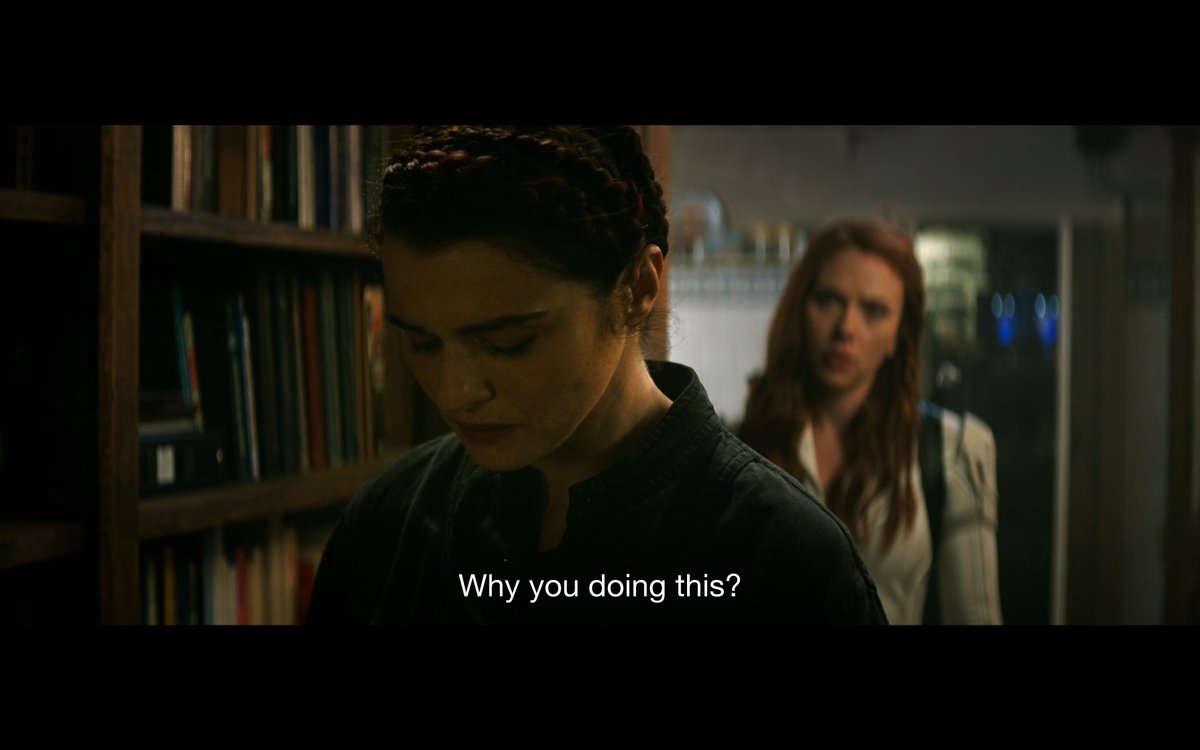


It’s narratively complicated because of Dreykov's brainwashing program but filmmakers need to be more careful with equating disability or disfigurement with villainy. This isn't the first time the MCU leans into that trope nor will it be the last. 

“I don’t wanna hurt you.” But she is 100% going to hurt them (and they her) because once again conflict can only be resolved through violence in the MCU. So we are treated to yet another giant brawl. It’s tedious. 



Next up we'll travel back in time and pick up where we left off with Spider-Man: Homecoming (2017)
Spider-Man: Homecoming (2017) is a story where our hero consistently makes things worse by unnecessarily escalating almost every situation. Most of his actions are framed as "doing the right thing" but honestly this whole movie is a great argument *against* vigilante superheroes. 

Class is used as a theme throughout this movie but in an oddly disparaging mostly apolitical way. Vulture is definitely the most blue-collar main character we've seen so far and the only one who articulates anything close to a class analysis in the MCU. 

Peter's class status is de-emphasized in the MCU. He rarely worries about money. We are shown that he rides the subway, lives in an apartment, eats at bodegas, and has a homemade costume. It's more like Peter is just framed as not rich, as opposed to actually being working class. 



The inciting incident for the villains is an example of pure crony capitalism. Billionaire Tony Stark uses his power and influence to gain a monopoly over clean-up contracts. It's an example of what author Naomi Klein calls "Disaster Capitalism" that's both corrupt and unethical. 



The bad guys are 100% correct here. Corporate capitalism is indeed rigged against the little guys. Villains in the MCU often articulate social critiques like this. But the writers always make sure that whenever they act on those observations, it's in some outrageously evil way. 





This is Tony Stark's 7th appearance in a Marvel movie. You'd think he'd have learned a few life lessons by this point but no – he continues to engage in casual sexism without consequences. There are a bunch of other "Aunt May is hot" jokes written into the dialogue too. 



Another weird working class joke. Tony seems to take pleasure in humiliating Happy for wanting a promotion. Tony's cavalier assholery is gross and reminiscent of Elon Musk. It still kinda blows my mind that he’s supposed to be the big hero of the whole Infinity Saga. 



As I've pointed out before, the MCU loves to make jokes about men hugging or expressing physical affection. Also note that this happens after Tony supposedly learned a lesson about being a supportive father figure in Iron Man 3. 

In case you were thinking the "men don't hug" joke was a setup for later in the movie – it isn't. Tony just gives Peter an awkward pat-on-shoulder side-embrace thing at the end while saying he's been practicing "tough love" in taking away his fancy spider suit etc. 

Spider-man’s bumbling hero attempts are played for laughs but this illustrates the problem with wannabe cop superheroes. He roughs up a dude stealing a bike but has no plan for finding the owner. He beats up a guy for trying to get into his own car. There's no accountability. 



Peter is bored and frustrated there isn't more street crime for him to fight. He doesn't want to help people as much as he wants to feel like a big damn hero and prove himself to The Avengers. Peter's motivations for vigilantism are selfish, which makes him especially dangerous. 

When Peter finally sees armed thieves robbing a bank machine he's overjoyed and immediately makes the situation much more dangerous. Even though no one is in harms way, Peter dramatically escalates the confrontation with violence, which leads to the whole block being blown up. 





Every crime Peter tries to stop is a robbery or other petty infraction and in each case he escalates the situation unnecessarily. He constantly puts himself and others in more danger than they'd be in if he just did nothing. It's a miracle he doesn't get a bunch of people killed. 

The audience isn't supposed to agree with Aunt May here because she doesn't know Peter is Spider-man, but she is still absolutely right. It's not worth risking your life to protect some property, especially when it's just money from a big bank. Peter doesn't listen though. 



Peter escalates another situation unnecessarily. He turns a blackmarket gun deal into a shootout and high-speed chase through a heavily populated residential area. This is exactly the kind of reckless behavior that police are notorious for. It's how people get injured or killed. 

Peter complains about Tony tracking his suit. A "complete violation of privacy" might as well be the Iron Man and Stark Industries tagline in this franchise. But violating people's rights is framed as totally okay because Tony is just such a goodhearted tech-bro billionaire. 



If this kind of face-recognition surveillance tech isn't unconstitutional it damn well should be. Of course the movie frames it as perfectly fine because Peter is using it to identify and track a small time bad guy. This Stark tech gets even more invasive later in Far From Home. 





This is a miniature version of the spy tech used in The Avengers. Notice how privacy violations have been normalized in only a few years. When Batman used mass surveillance in The Dark Knight (2008), the script explicitly called it wrong. There's no such moral dilemma in the MCU. 



Was a Marvel villain's social critique starting to make sense to you, dear viewer? Well, turns out he's a cold-blooded killer so you can safely dismiss everything he says. Remember kids, only murderers and sociopaths criticize the status quo! 



There's an extended joke where Peter freaks out about being mistaken for a girl. This kind of manhood panic isn't that uncommon for male characters in coming-of-age stories and that trope is uncritically reproduced here for a cheap laugh. 



Spider-Man Homecoming is a story about a kid becoming a hero. It's also a story about a boy who desperately wants to become a man. There are dozens of good lessons that Peter could to learn from this setup, but the MCU isn't really interested in exploring most of them... 

...As we've seen before in the MCU, a critical step in becoming a hero (and by extension a man) is being able to manifest incredible physical strength. In this case Peter must bootstraps himself into lifting a building with his bare hands, without aid from friends or technology. 



I can't stress enough just how important feats of raw physical strength are to Marvel ideology. "Might makes right" is a central defining theme in almost every superhero story in the MCU. 

Tony reprimands Peter twice for going after Vulture's operation. But notice how these lectures aren't about how unnecessary escalation puts civilians in danger, instead it's mostly focused on Peter not being ready to take on a major villain because he's only 15 years old. 



That's right, Tony Stark gave a multimillion dollar weaponized super suit with instant kill capabilities to a 15 year old kid. Real genius move there.
Vulture gives his big villainous monologue right before the final battle and every single thing he says is 100% correct. A cogent class analysis is voiced by the bad guy, who must then be brought down by the good guy in the service of protecting a billionaire's property. 







Peter finally proves himself by doing exactly what Tony told him not to and going after Vulture for the 4th time. Peter's actions are so breathtakingly reckless that he causes a cargo plane to crash headlong into Coney Island. The movie wants us to think this makes him a hero. 



In his zeal to stop Vulture from robbing Tony Stark, Peter escalates the situation to the point where he nearly causes a cargo plane to crash into a heavily populated residential area. No one was in immediate danger until Spider-man showed up and put hundreds of lives at risk. 



I'll say it again because Peter never learns this lesson. It's not worth risking your life (let alone the lives of hundreds of bystanders on the ground) to stop a robbery, especially not when it's a billionaire's property. Aunt May would not approve. 

Despite all the reckless endangerment and despite disobeying Tony's explicit and repeated instructions, Peter is congratulated and invited to become a full-time Avenger. 

In the end the only real lessons Peter learns are 1) He doesn't need a fancy suit to be a superhero and 2) Maybe he isn't ready to be a full-time Avenger just yet. For the rest of us though, this movie should teach us that vigilante superheroes are dangerous and shouldn't exist. 

I didn't anticipate being so hyper-critical of a Spider-man movie but I honestly forgot just how unforgivably reckless Peter's actions were from start to finish. Anyway, next up we'll be visiting Wakanda.
• • •
Missing some Tweet in this thread? You can try to
force a refresh

